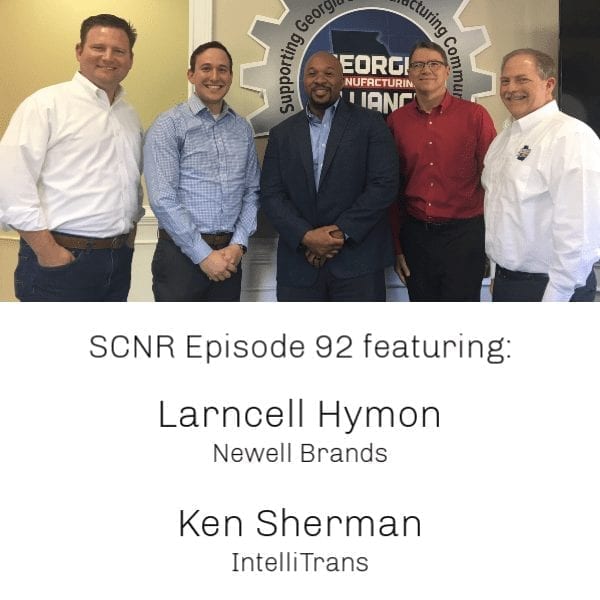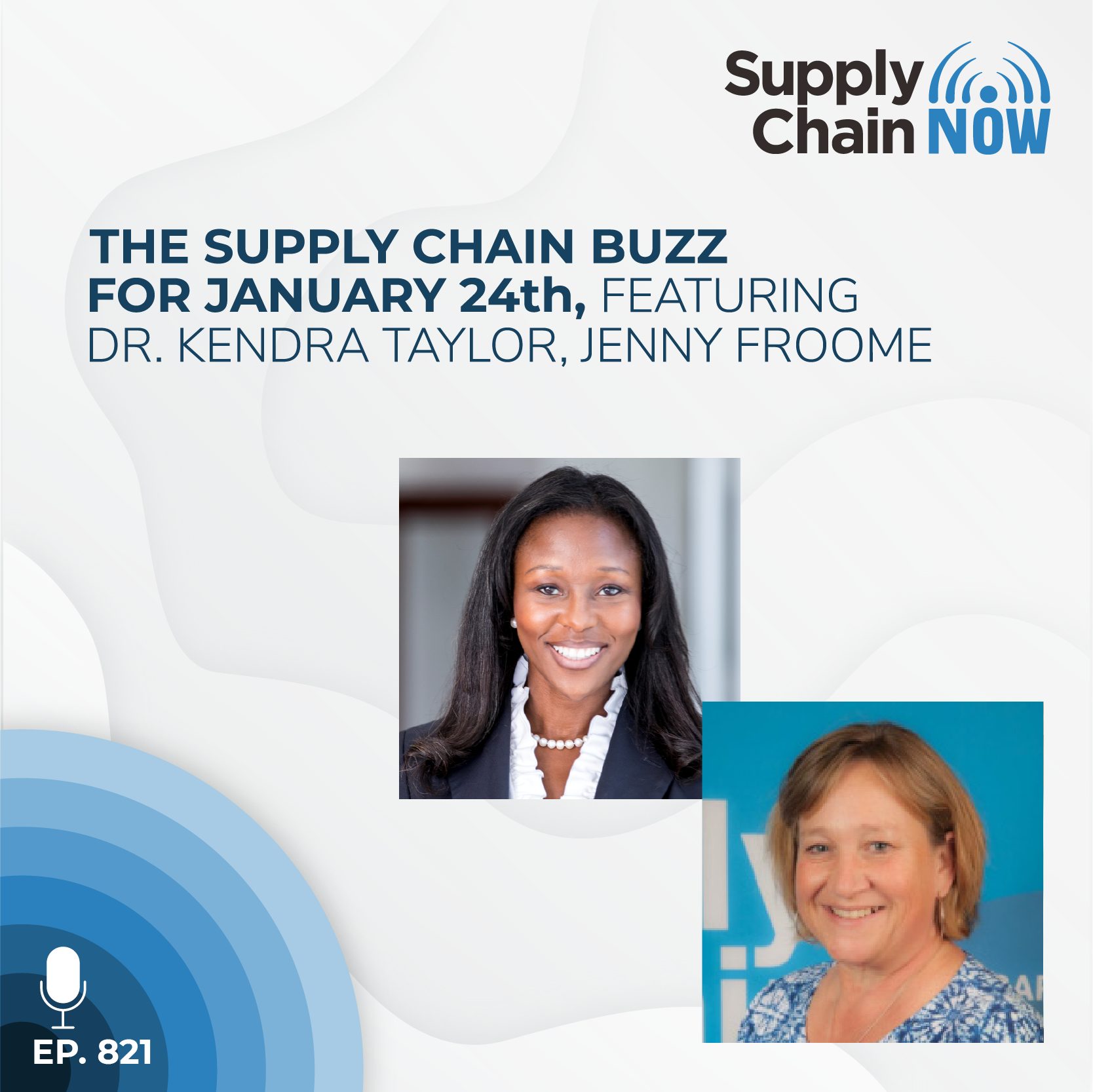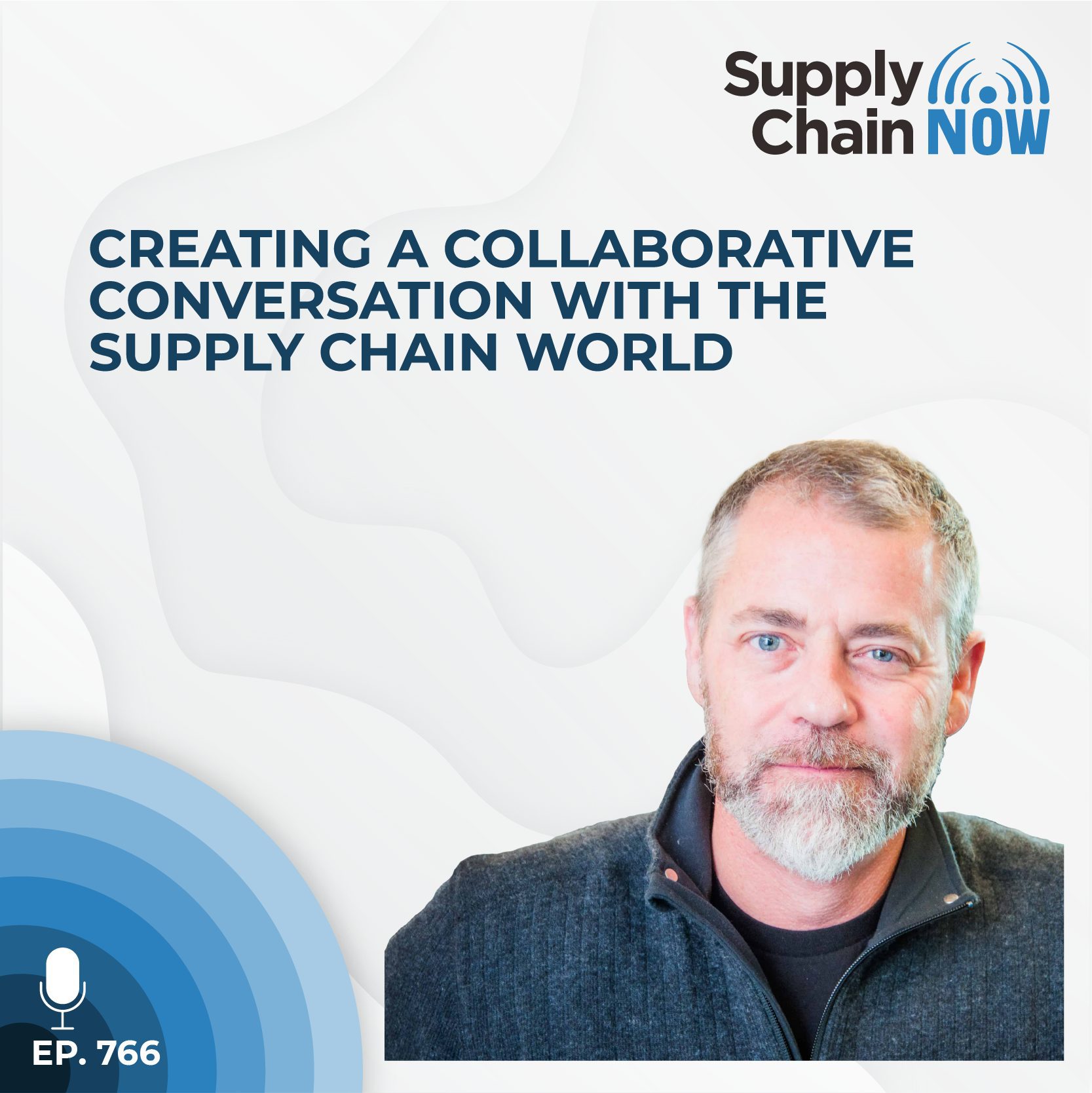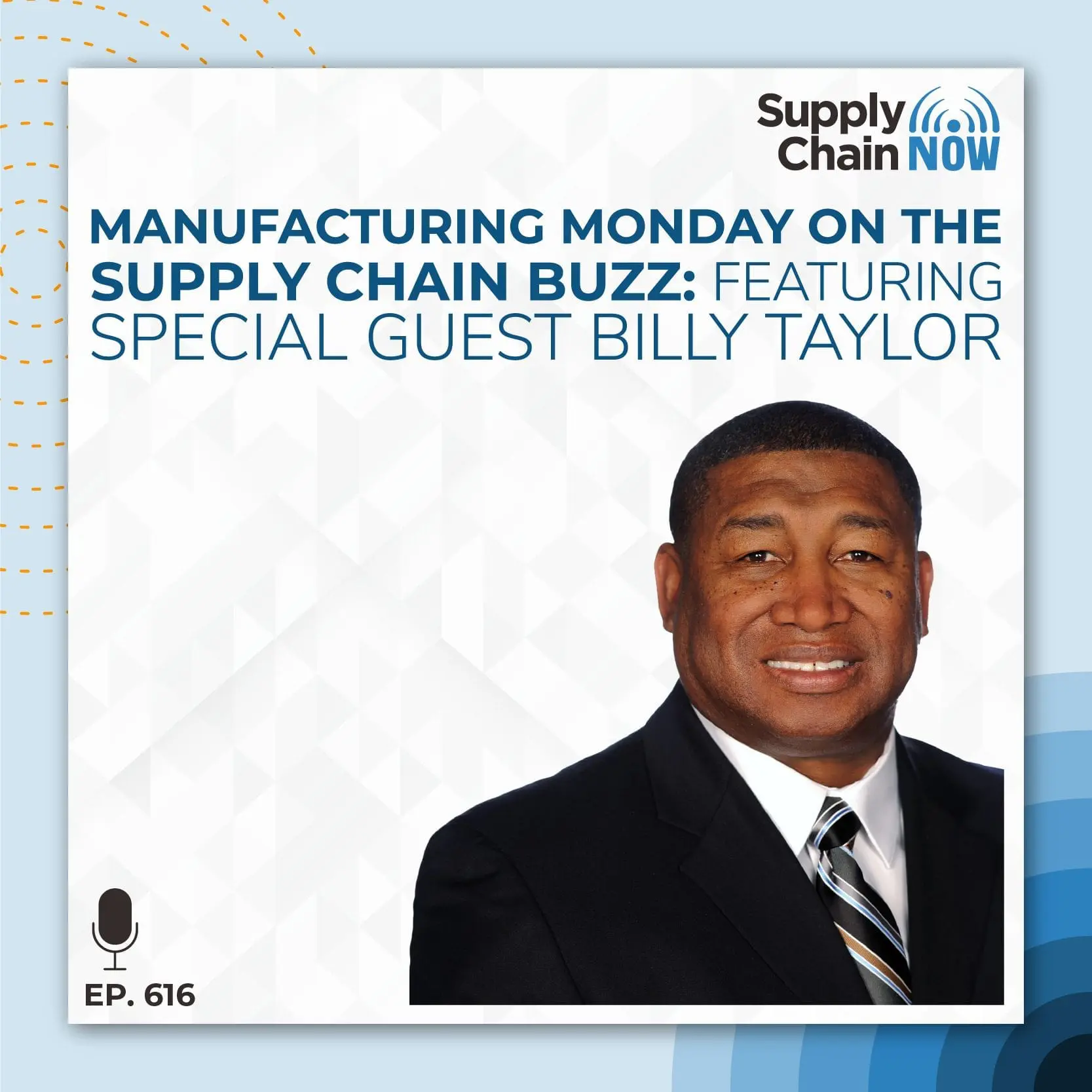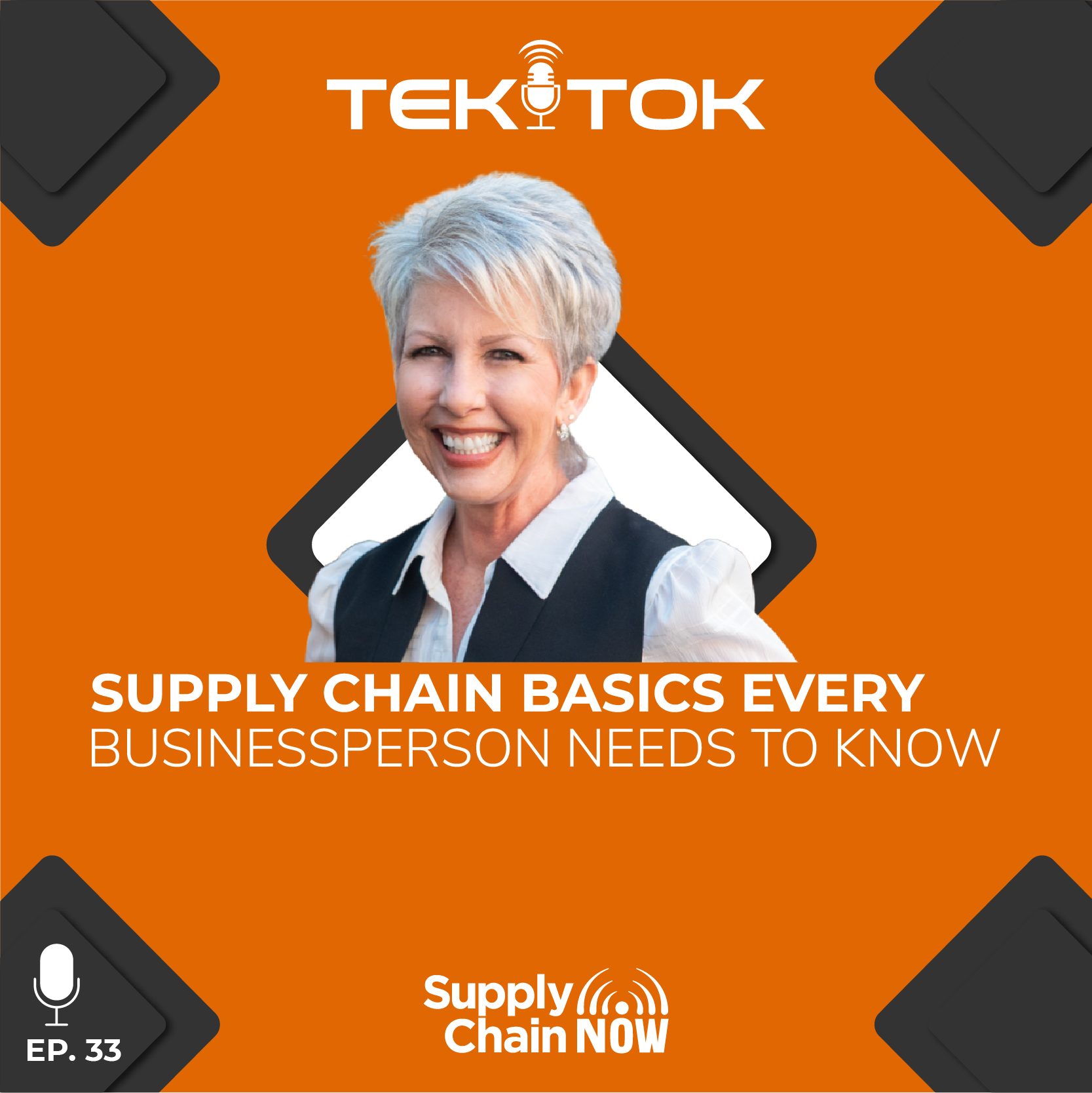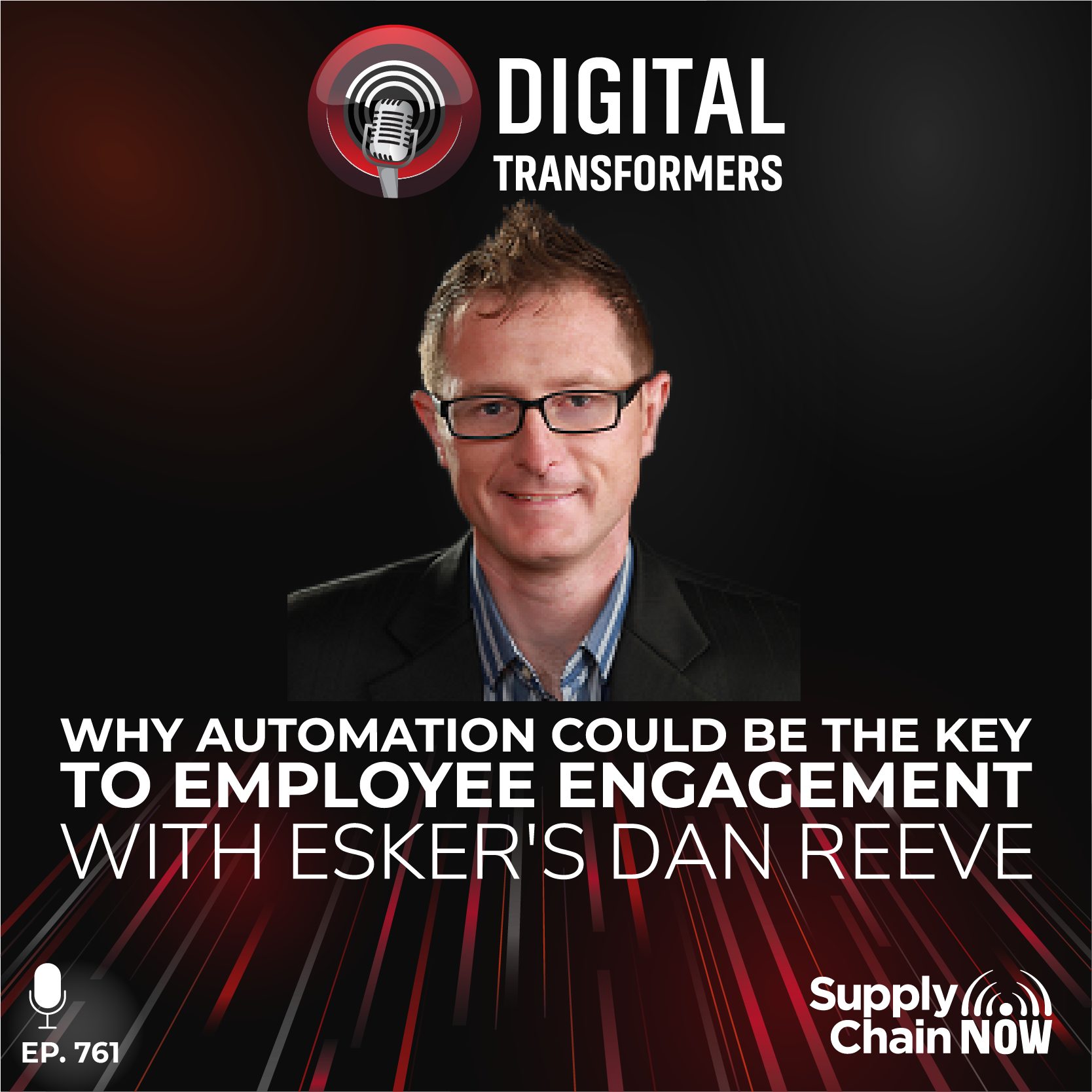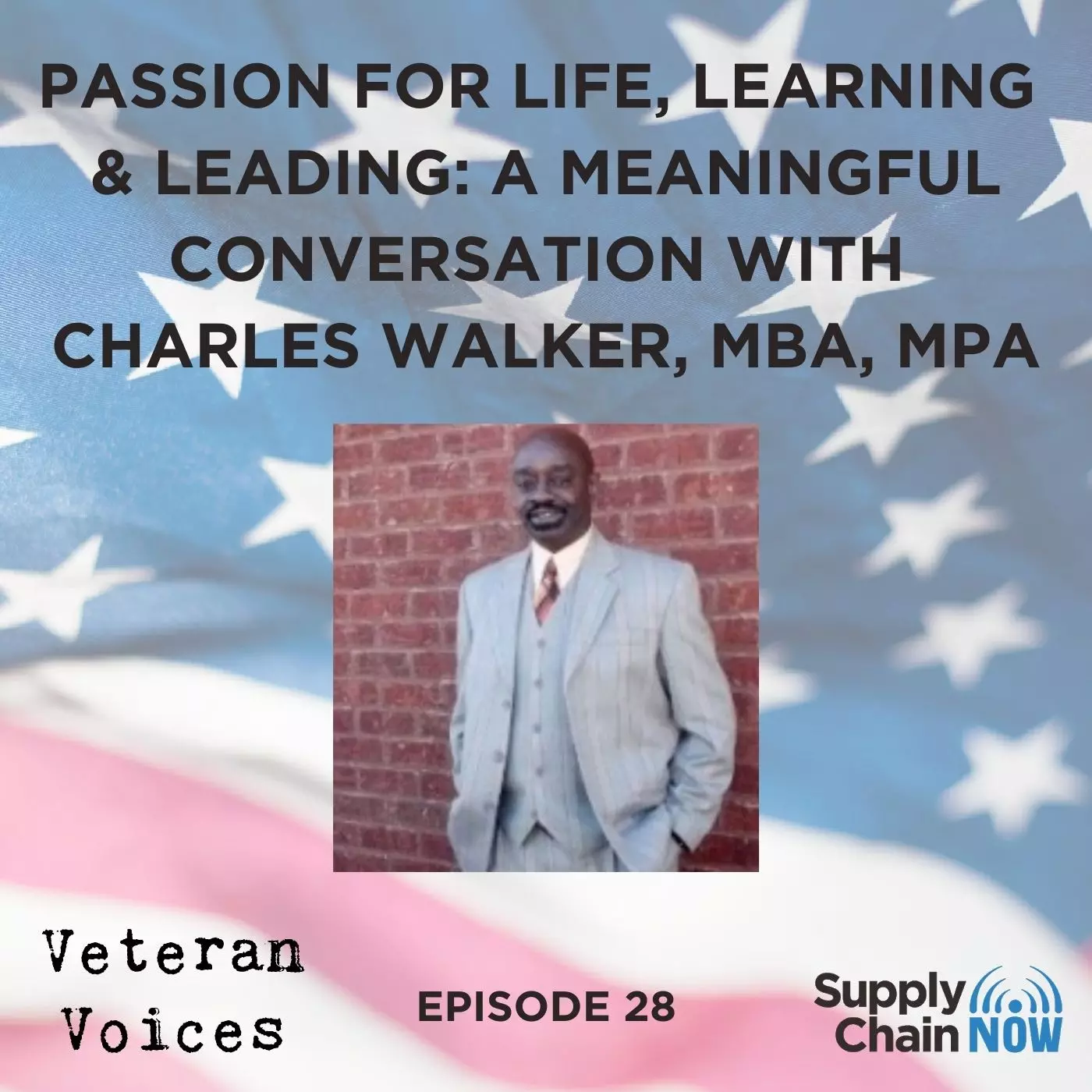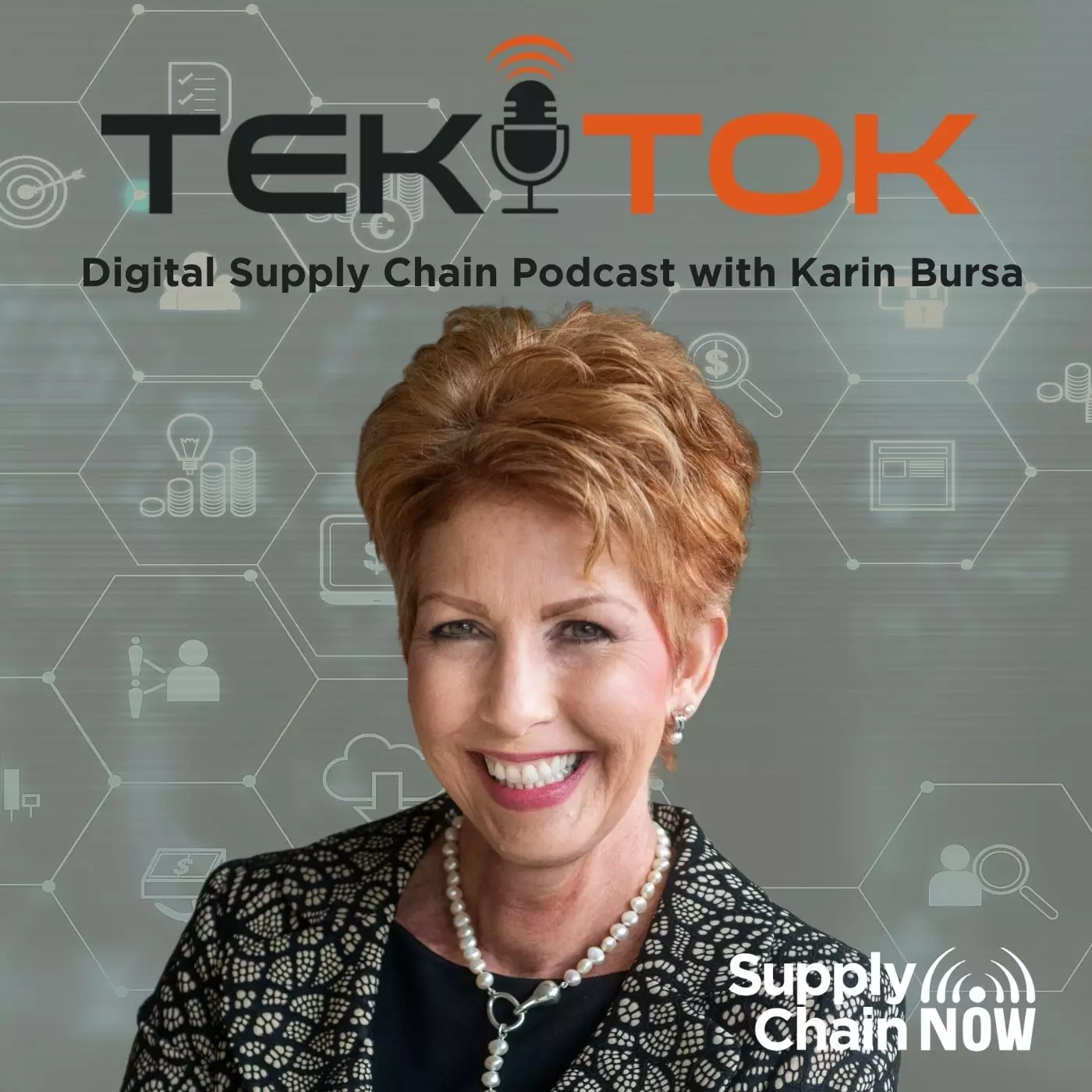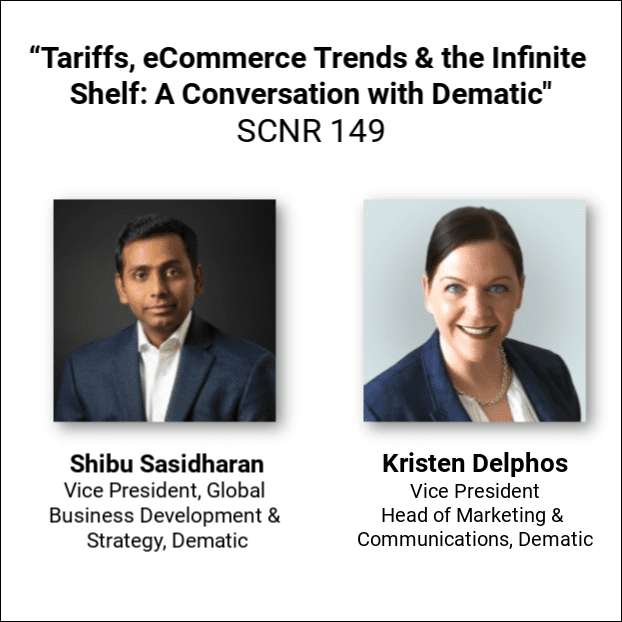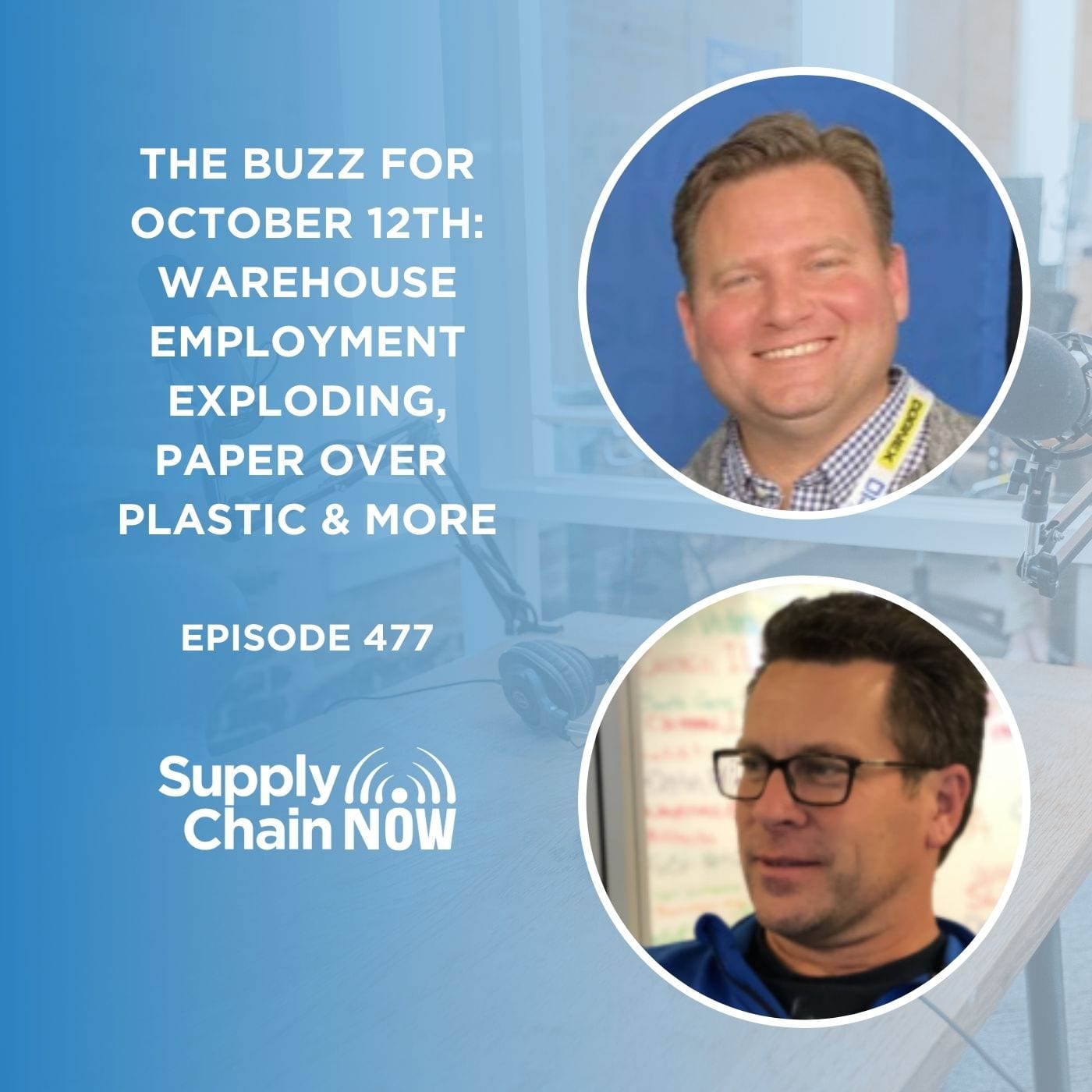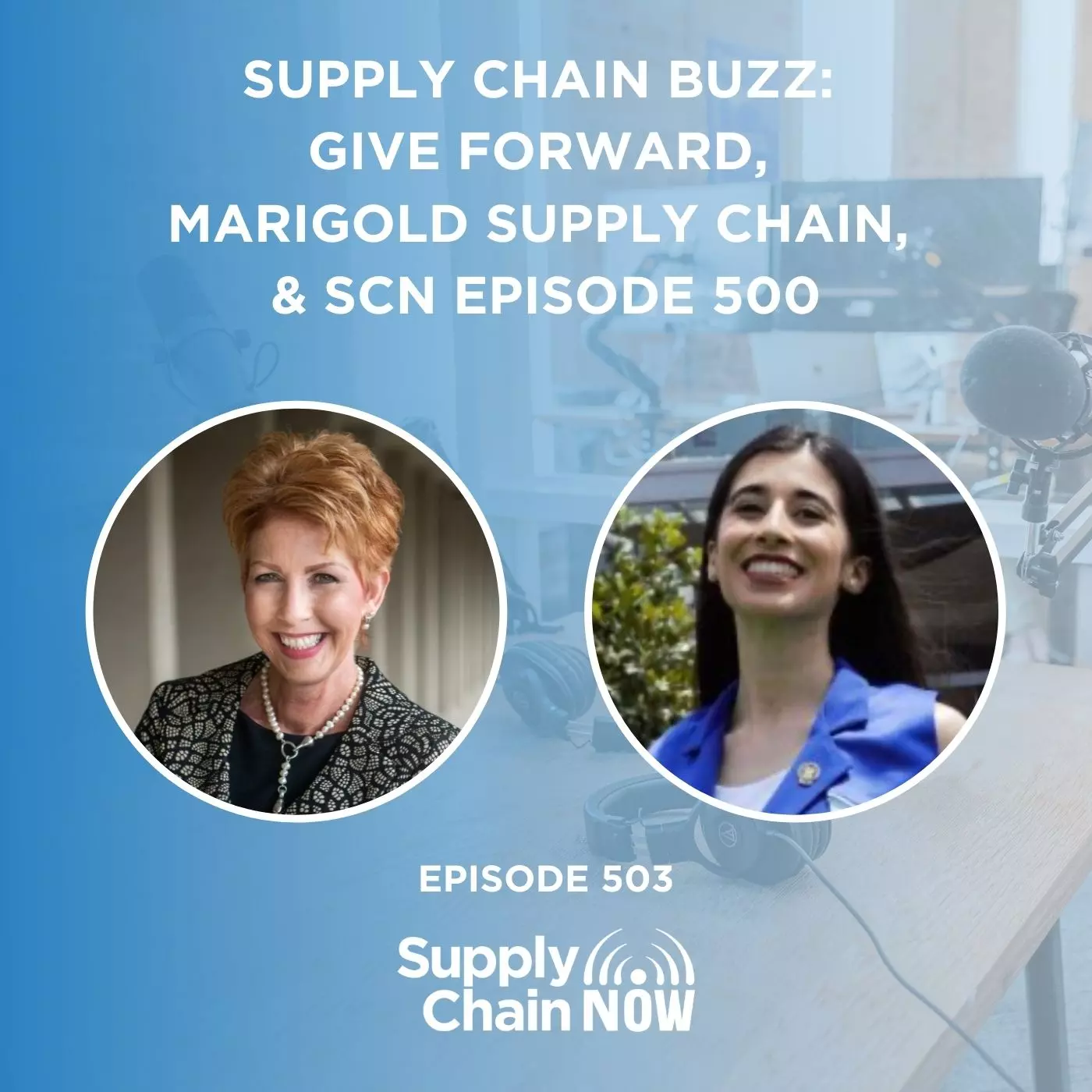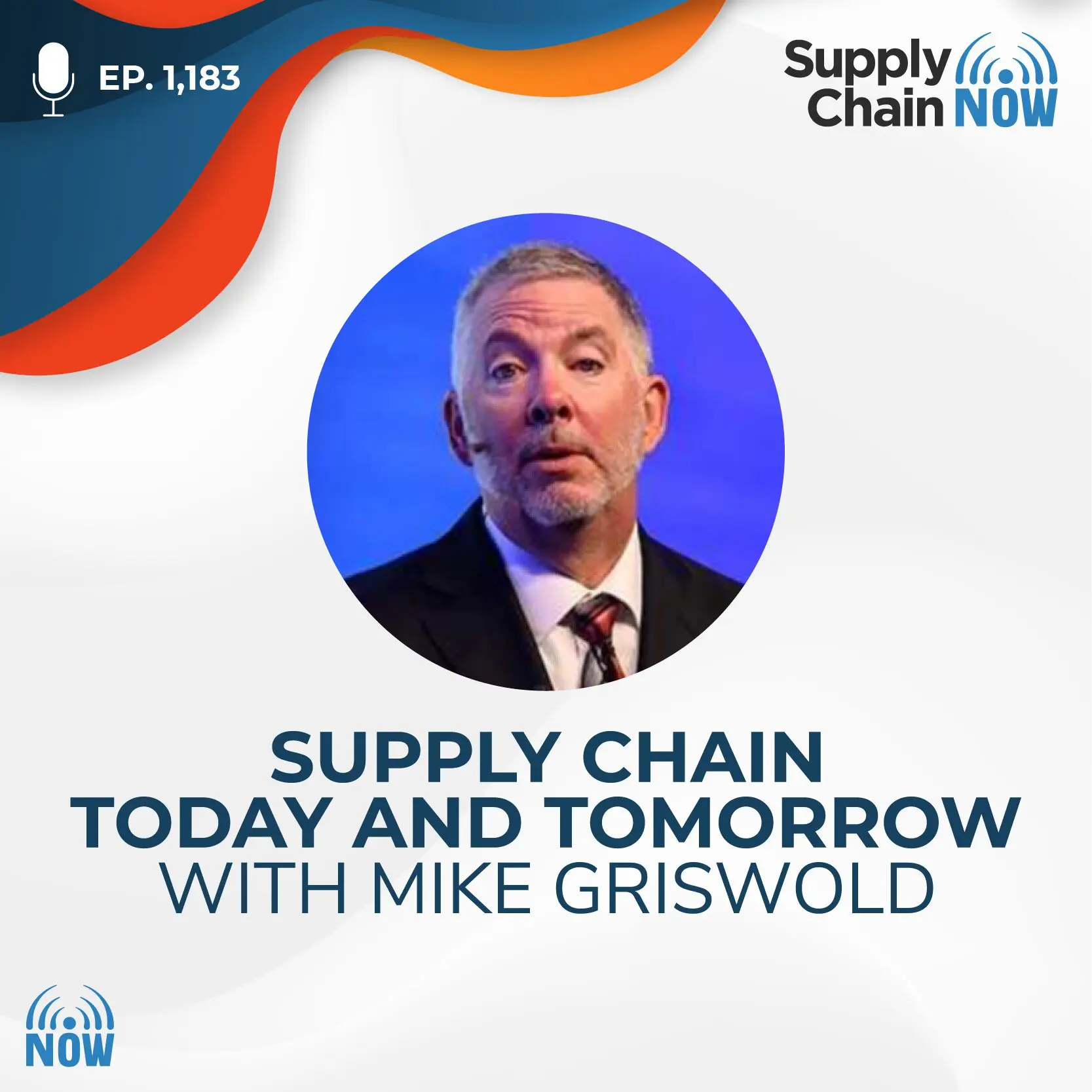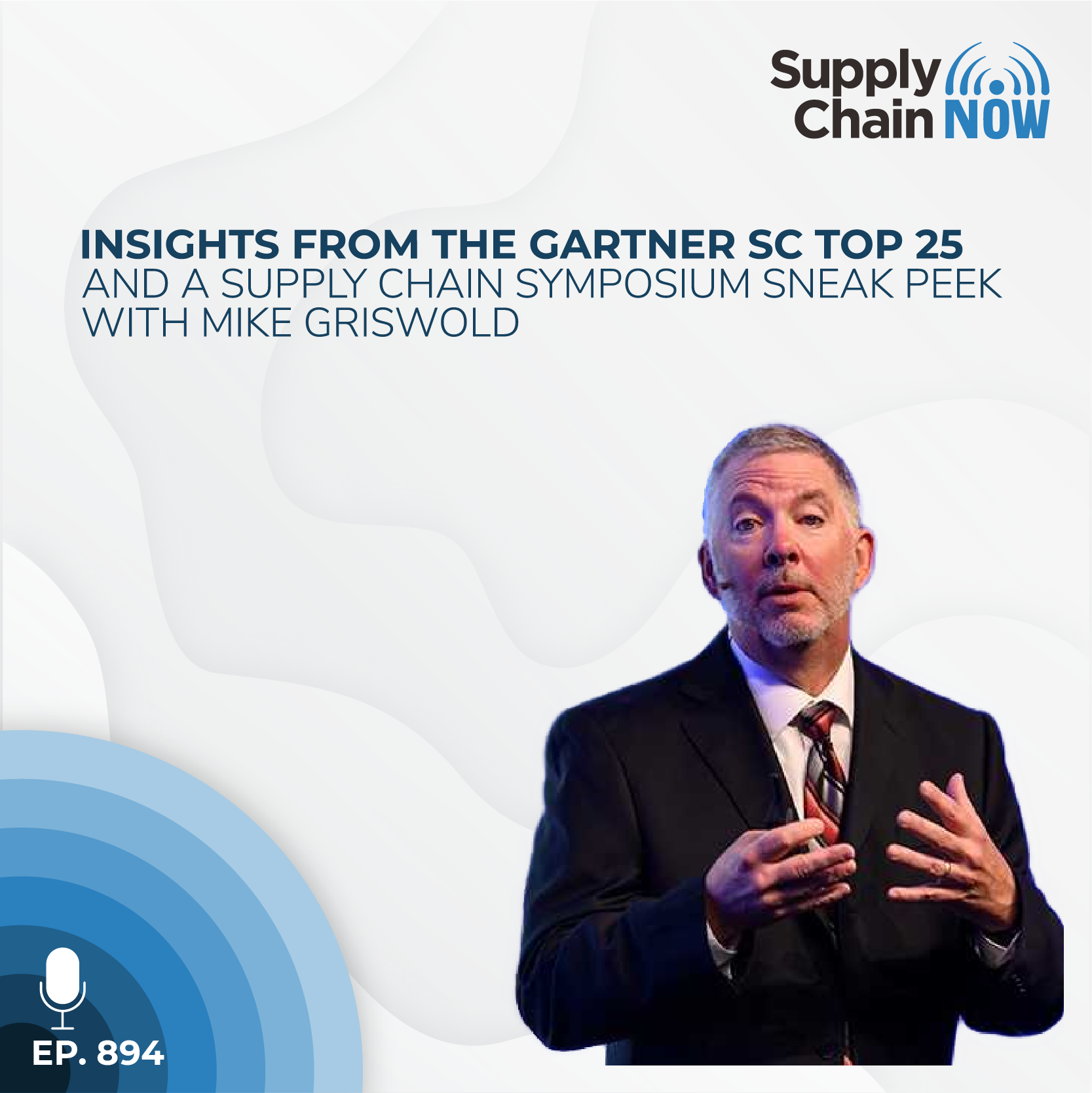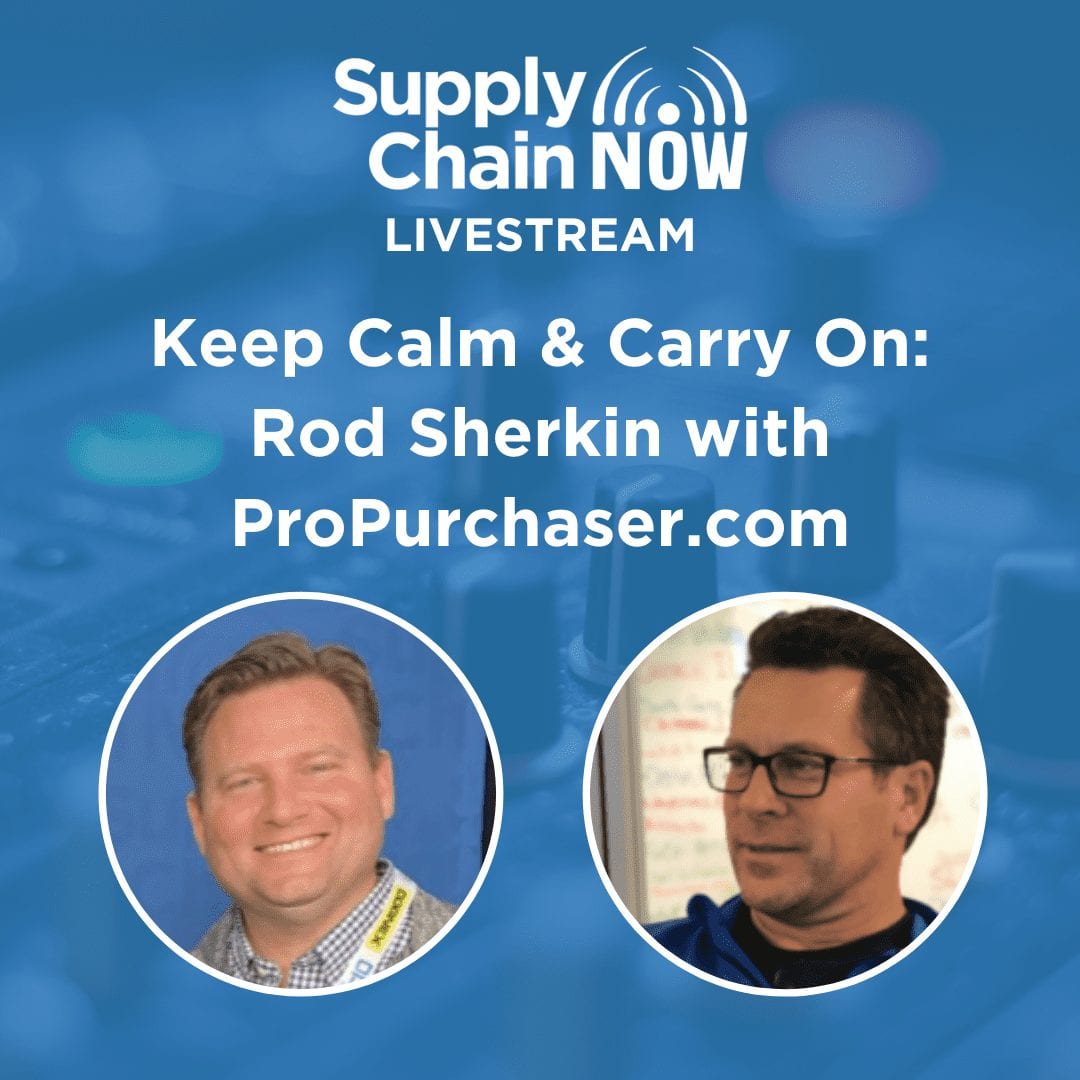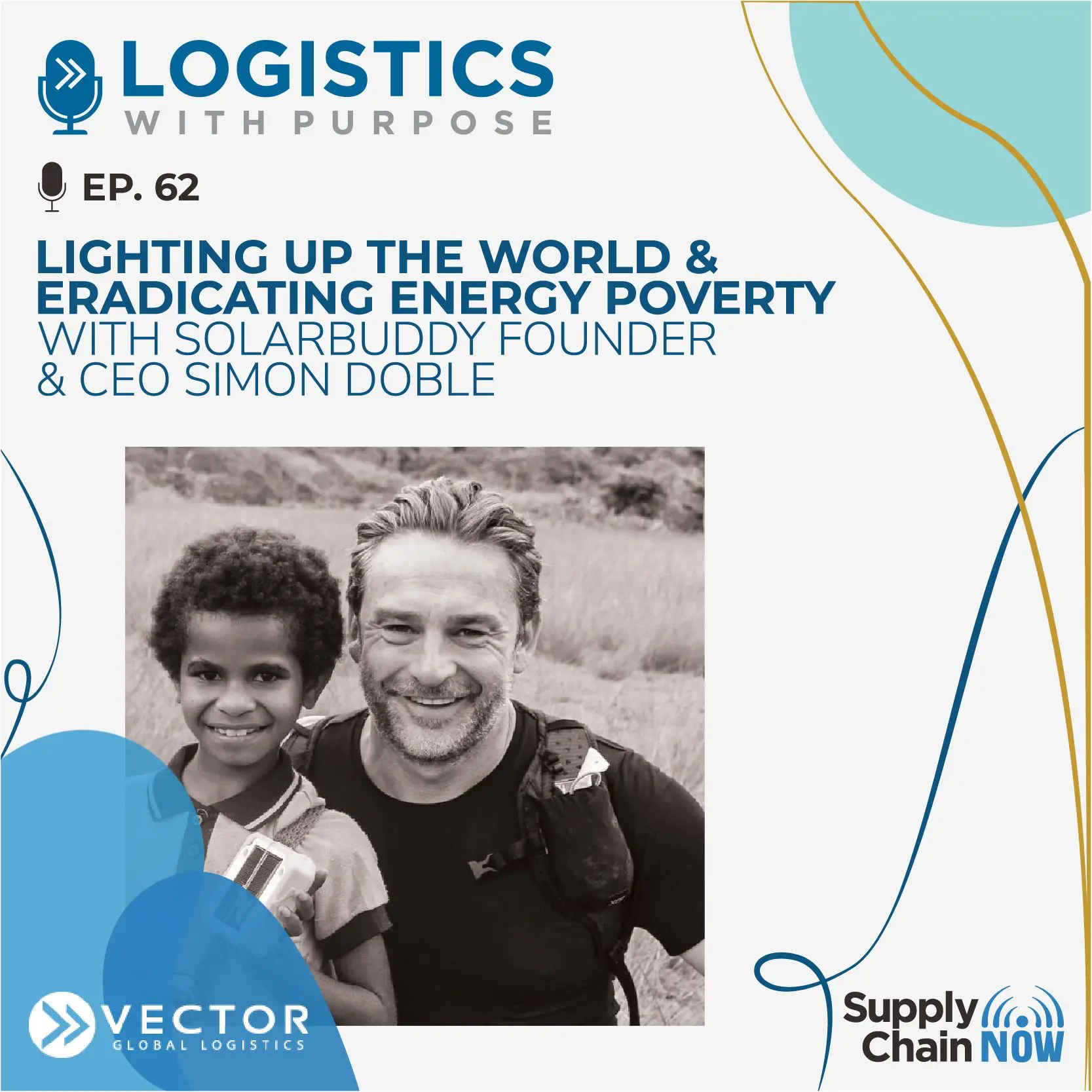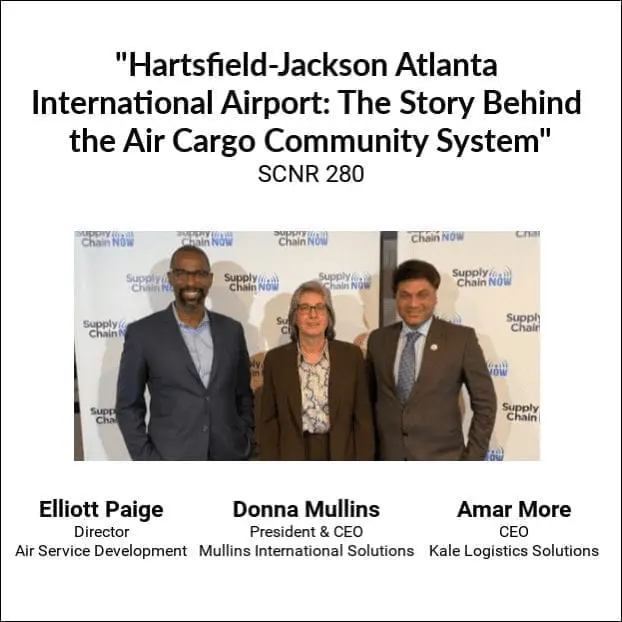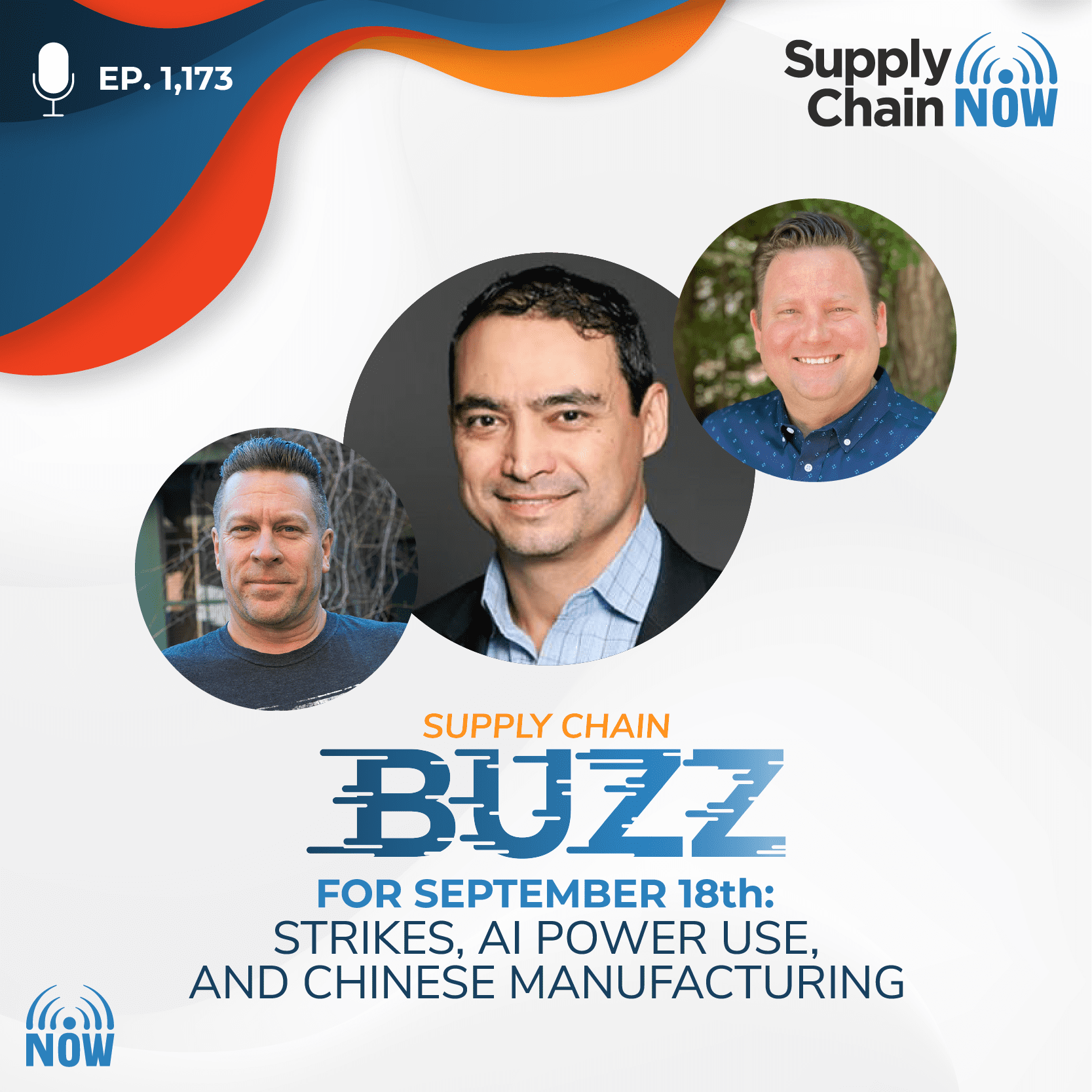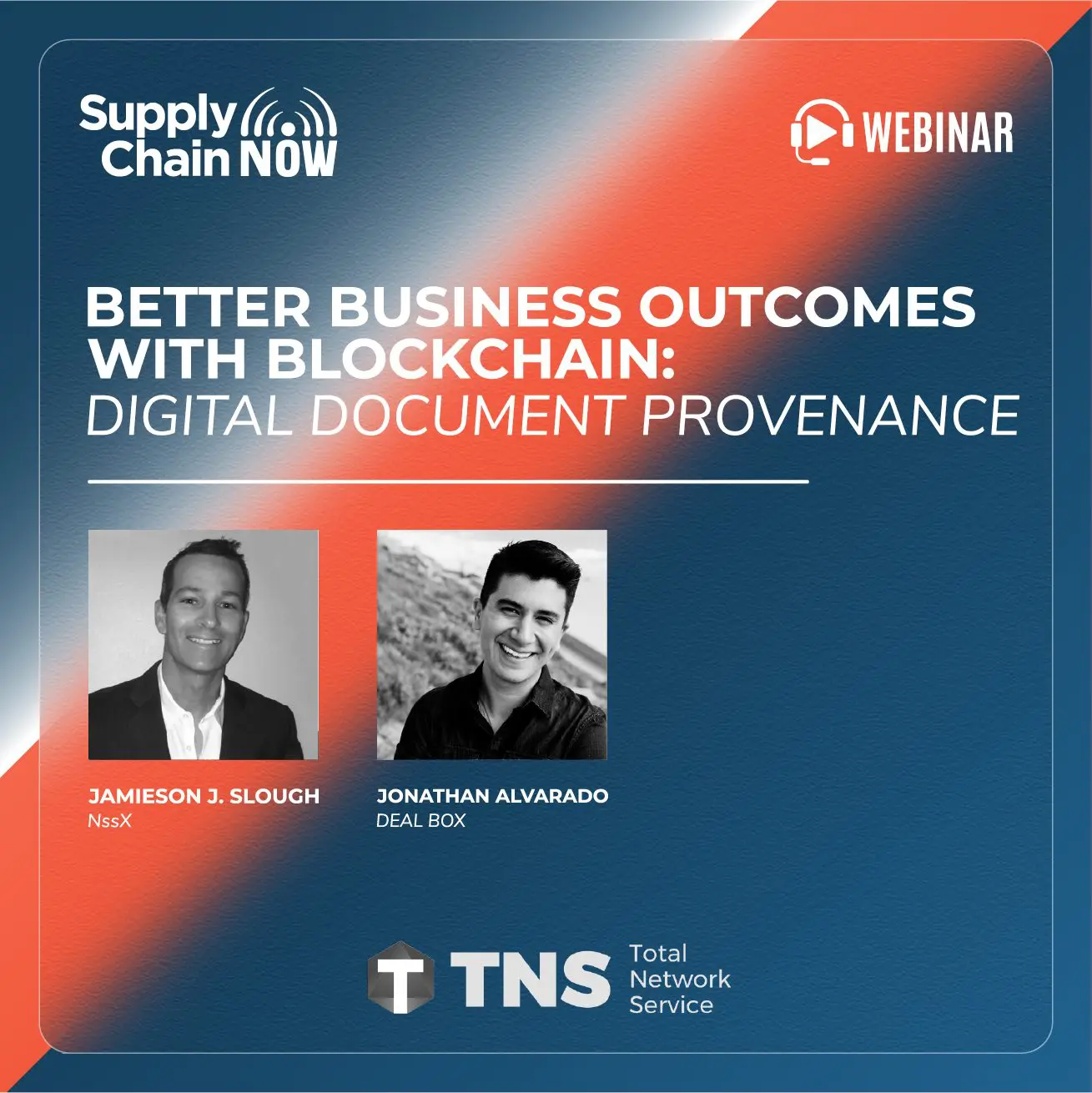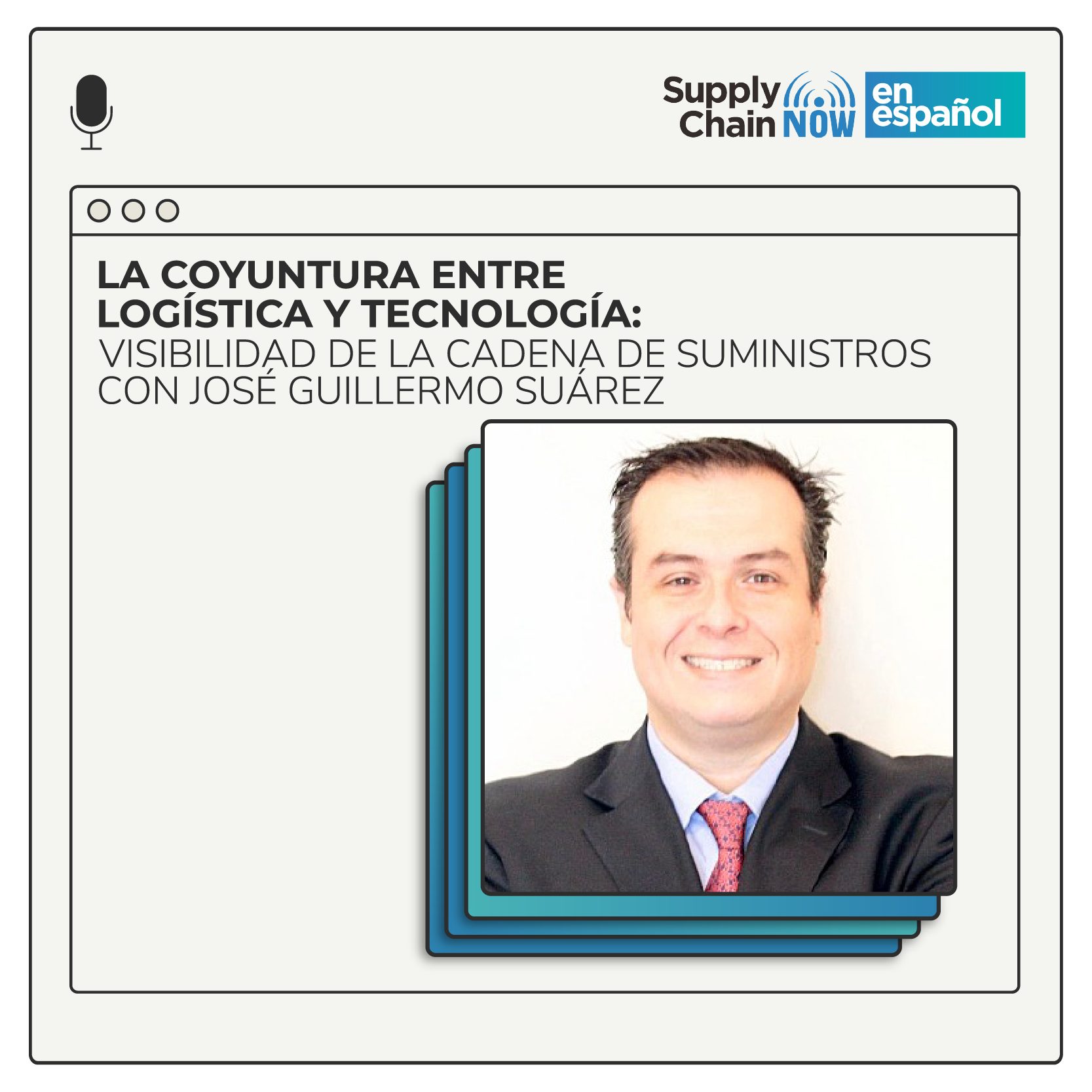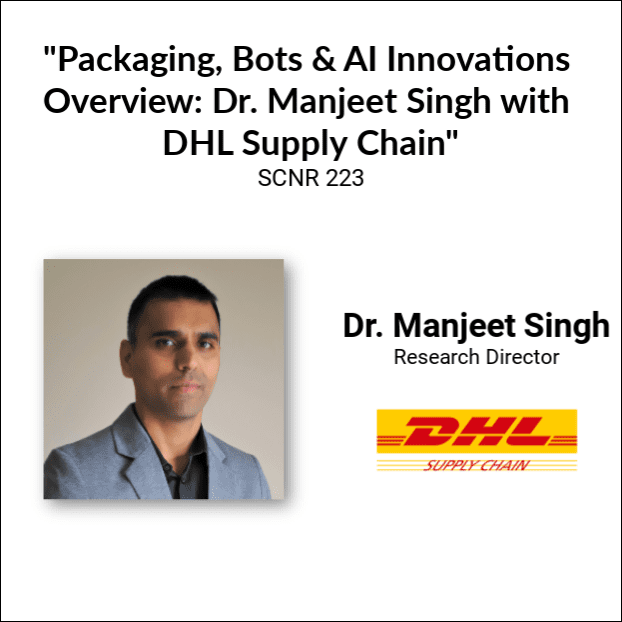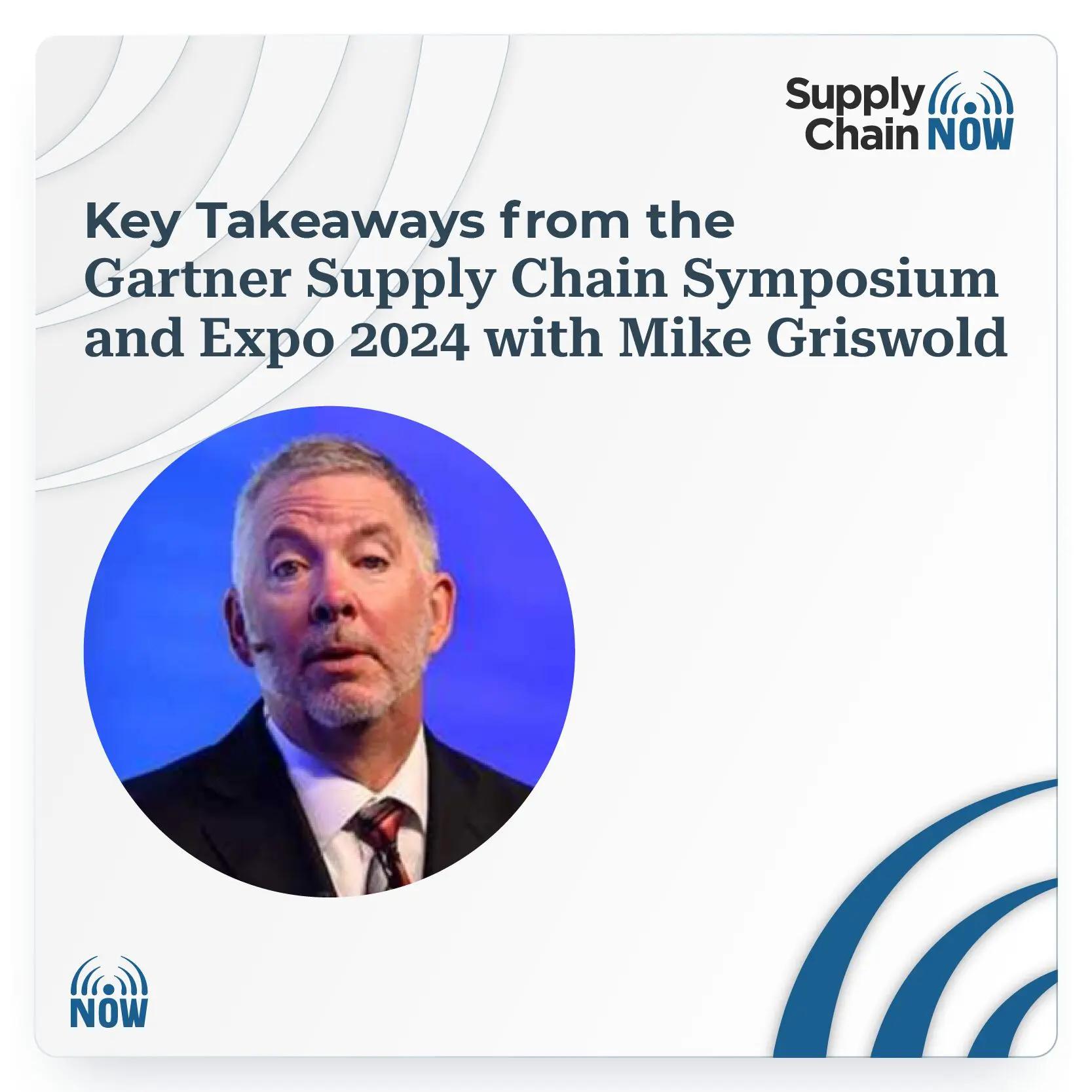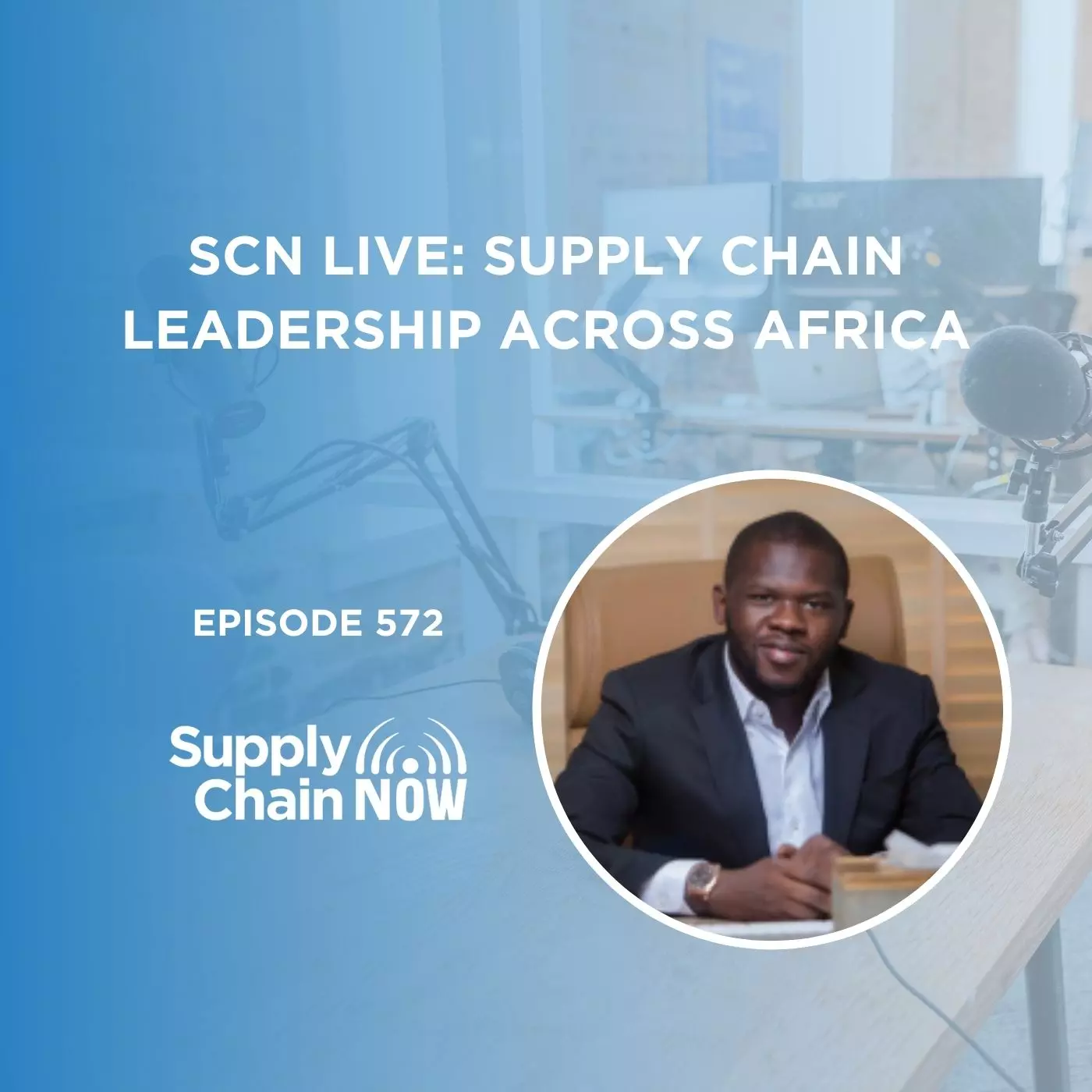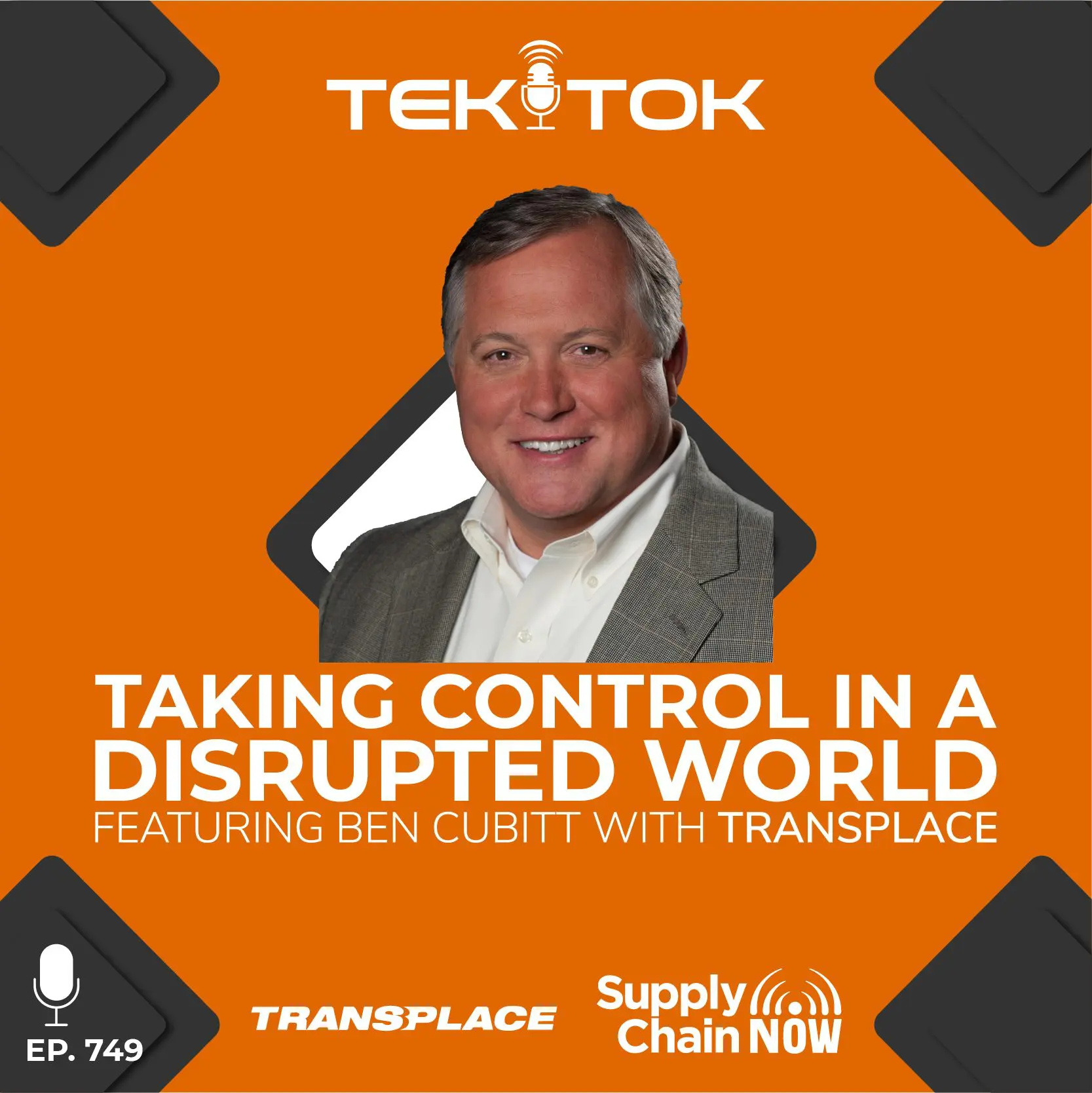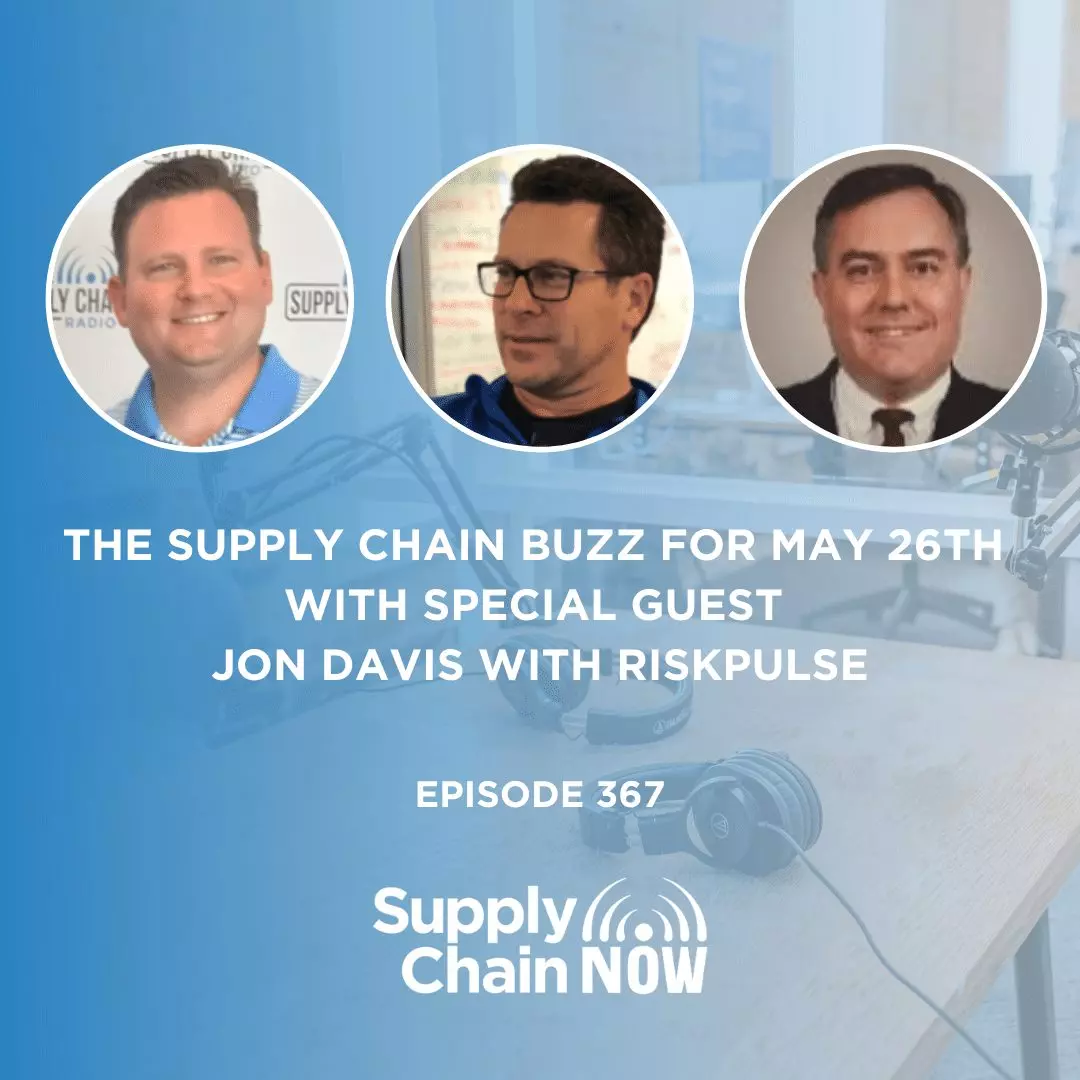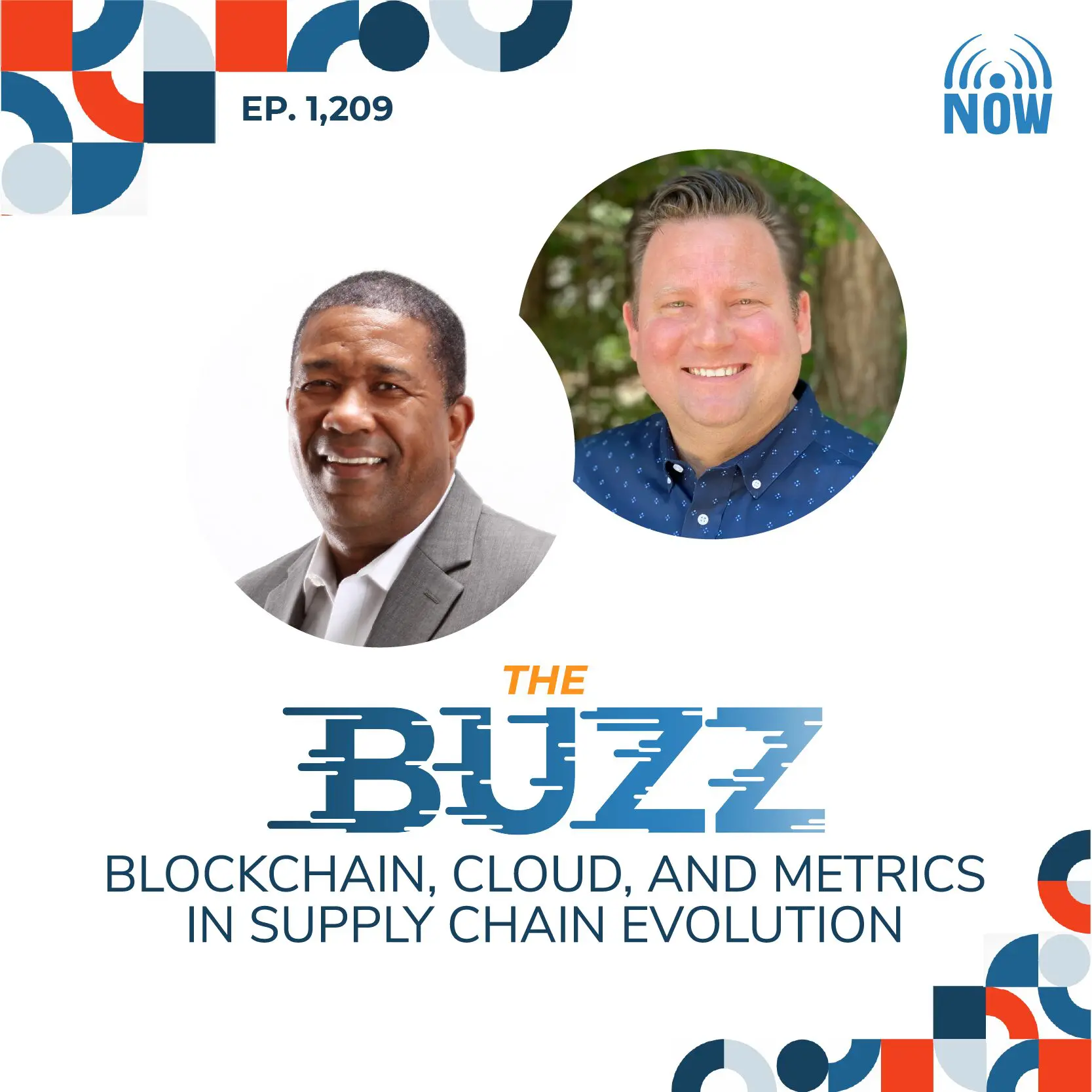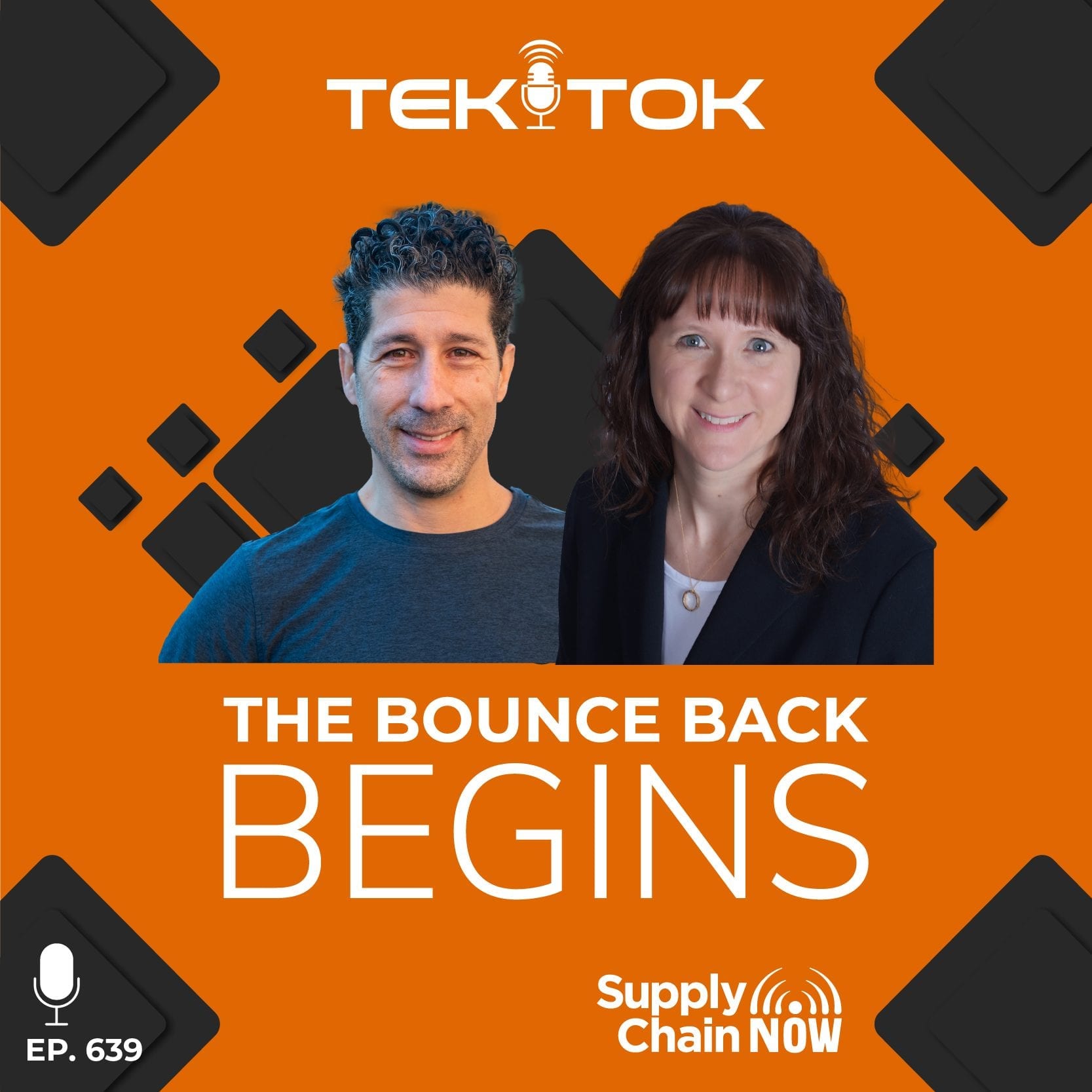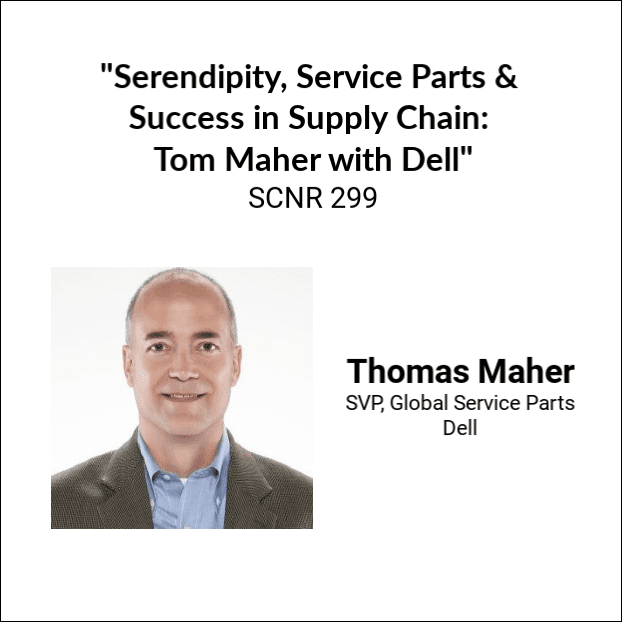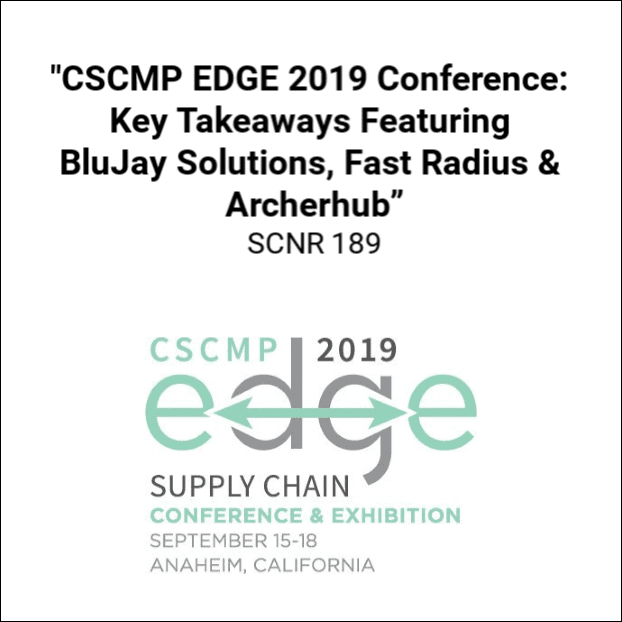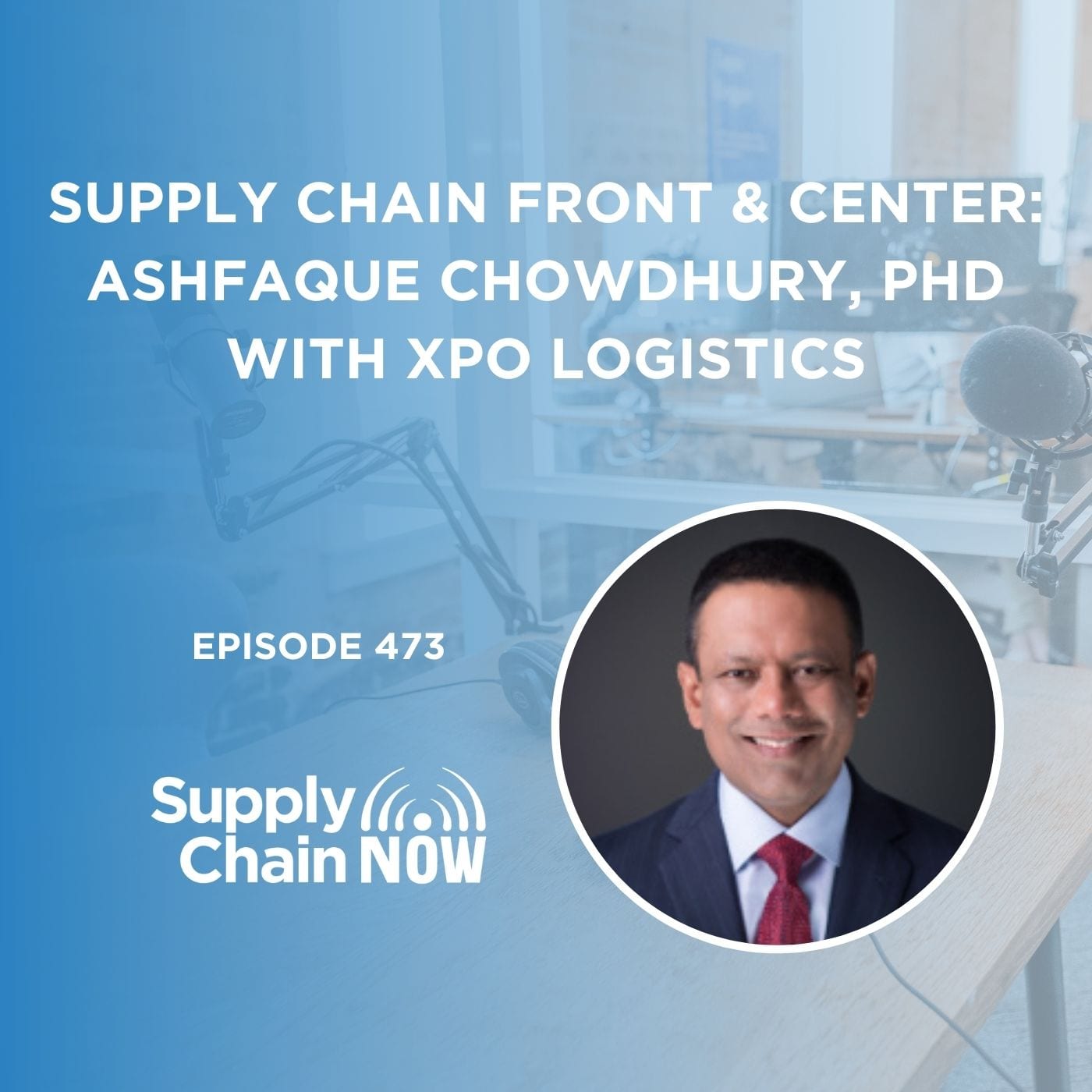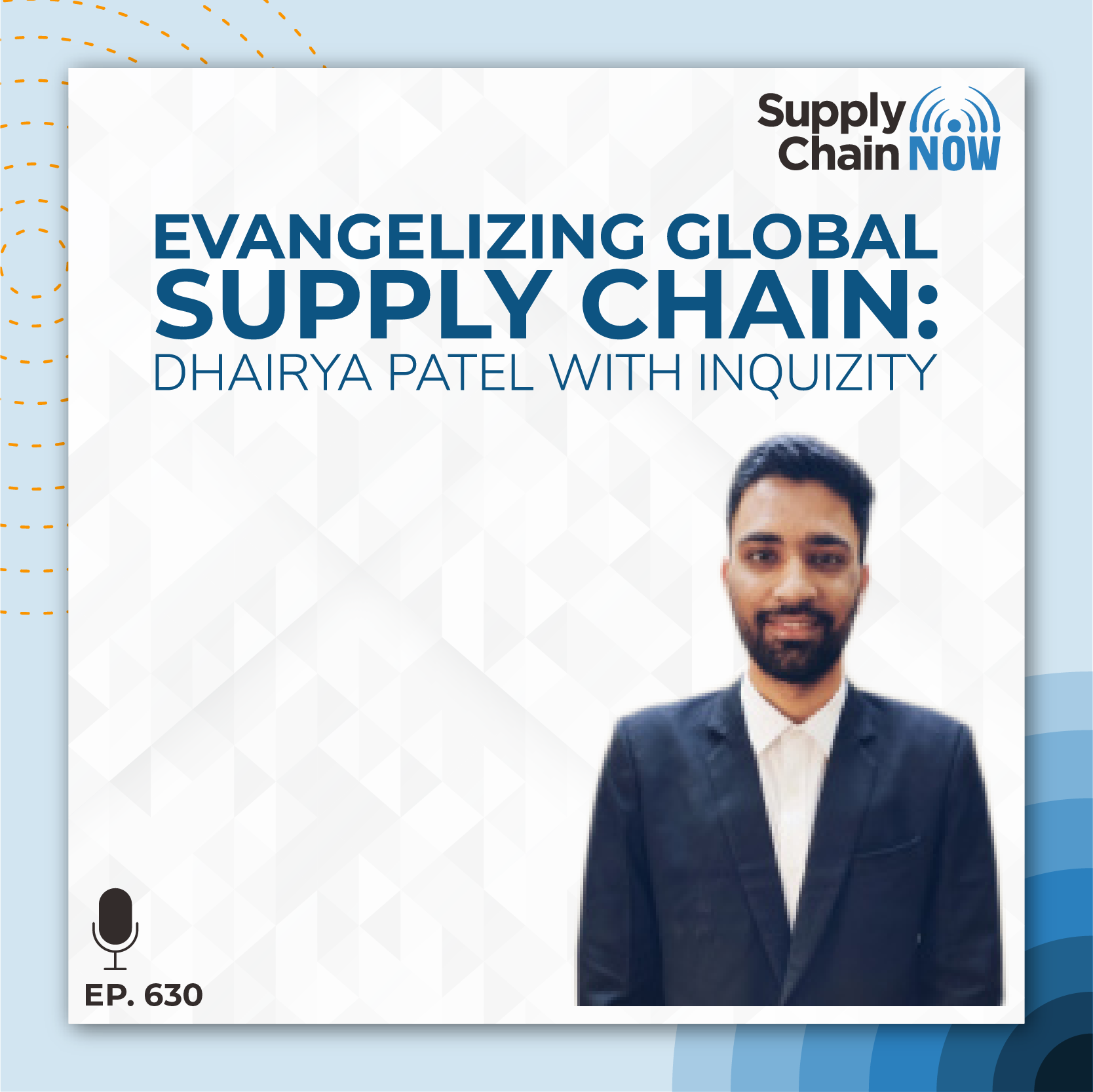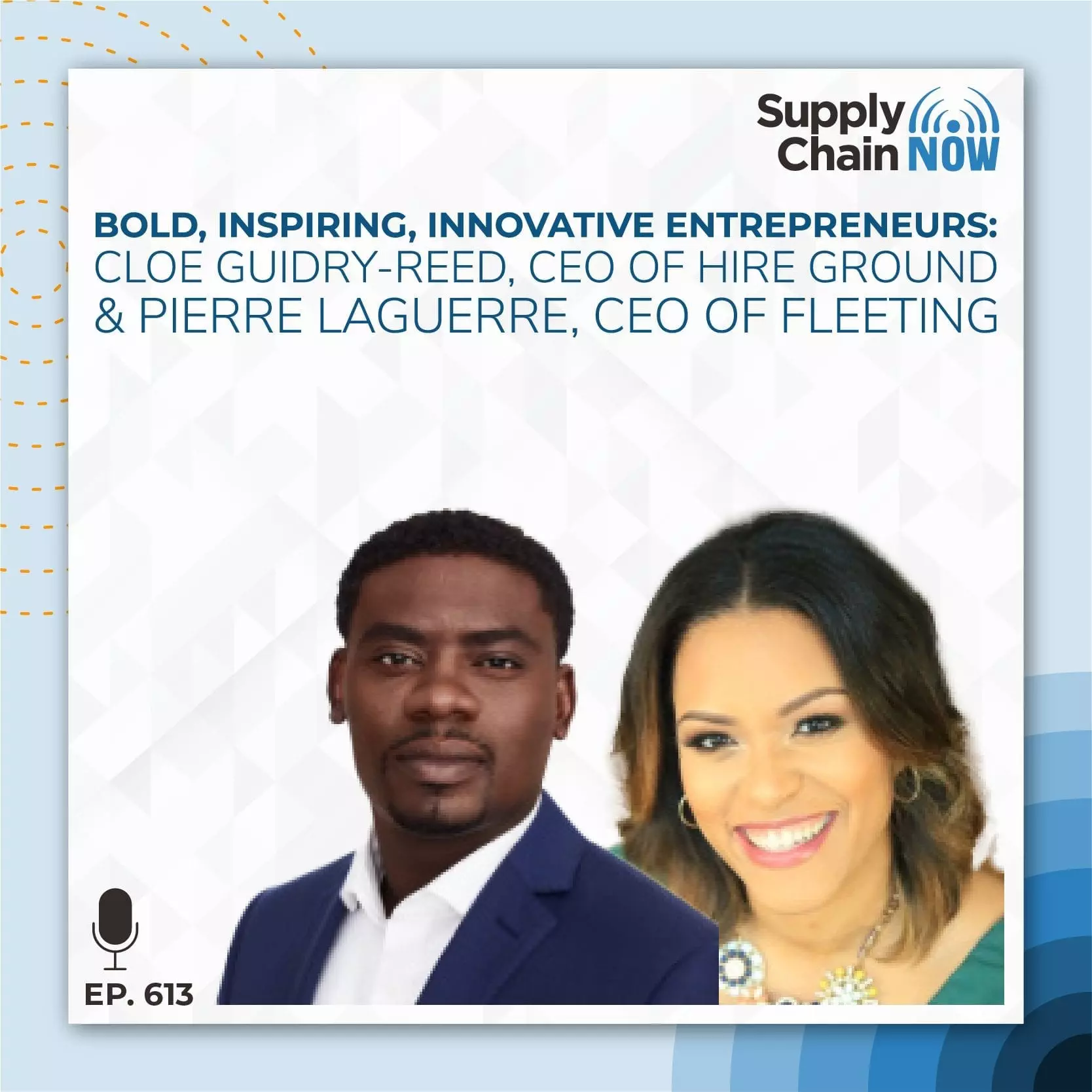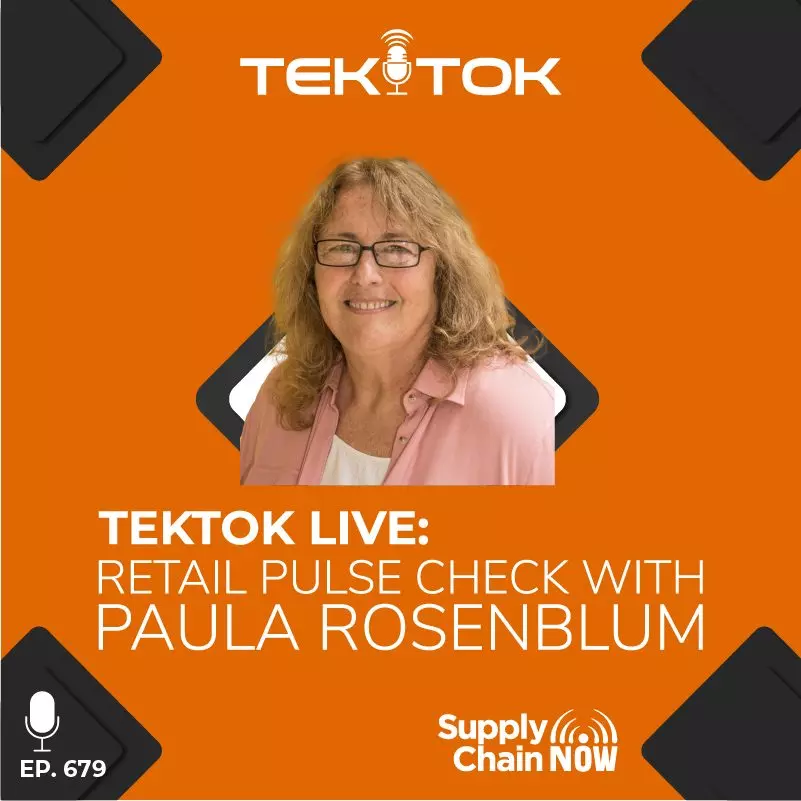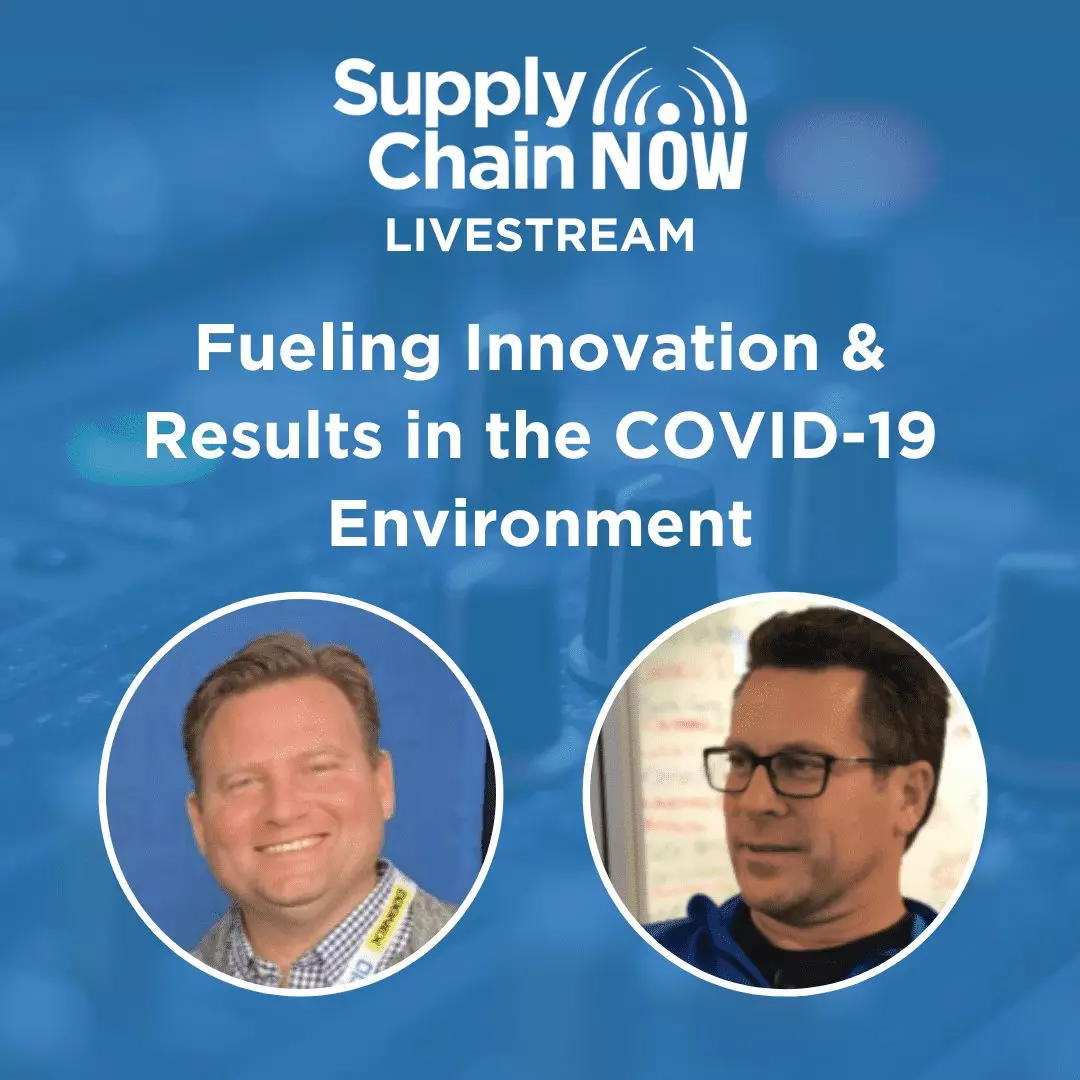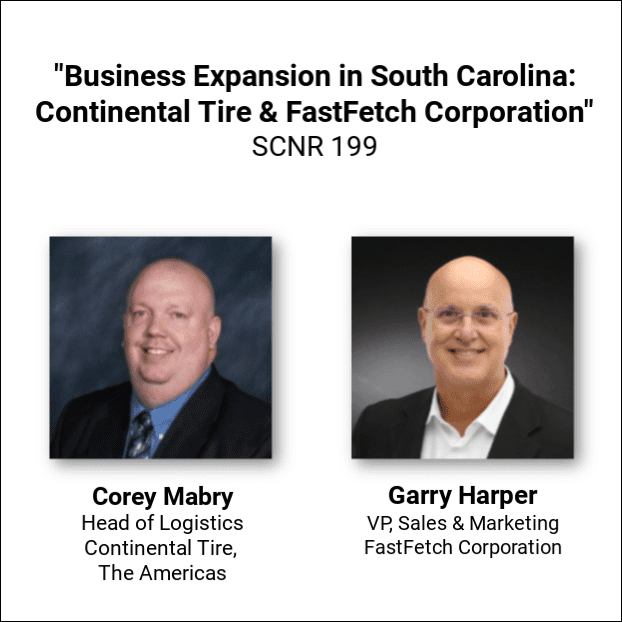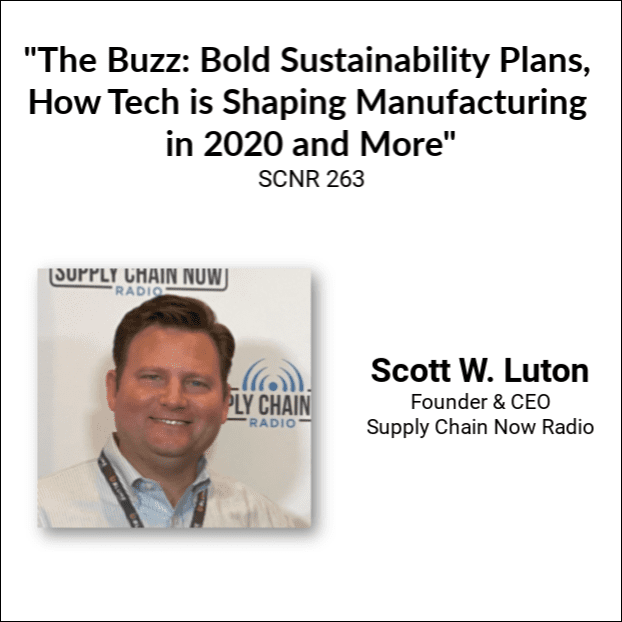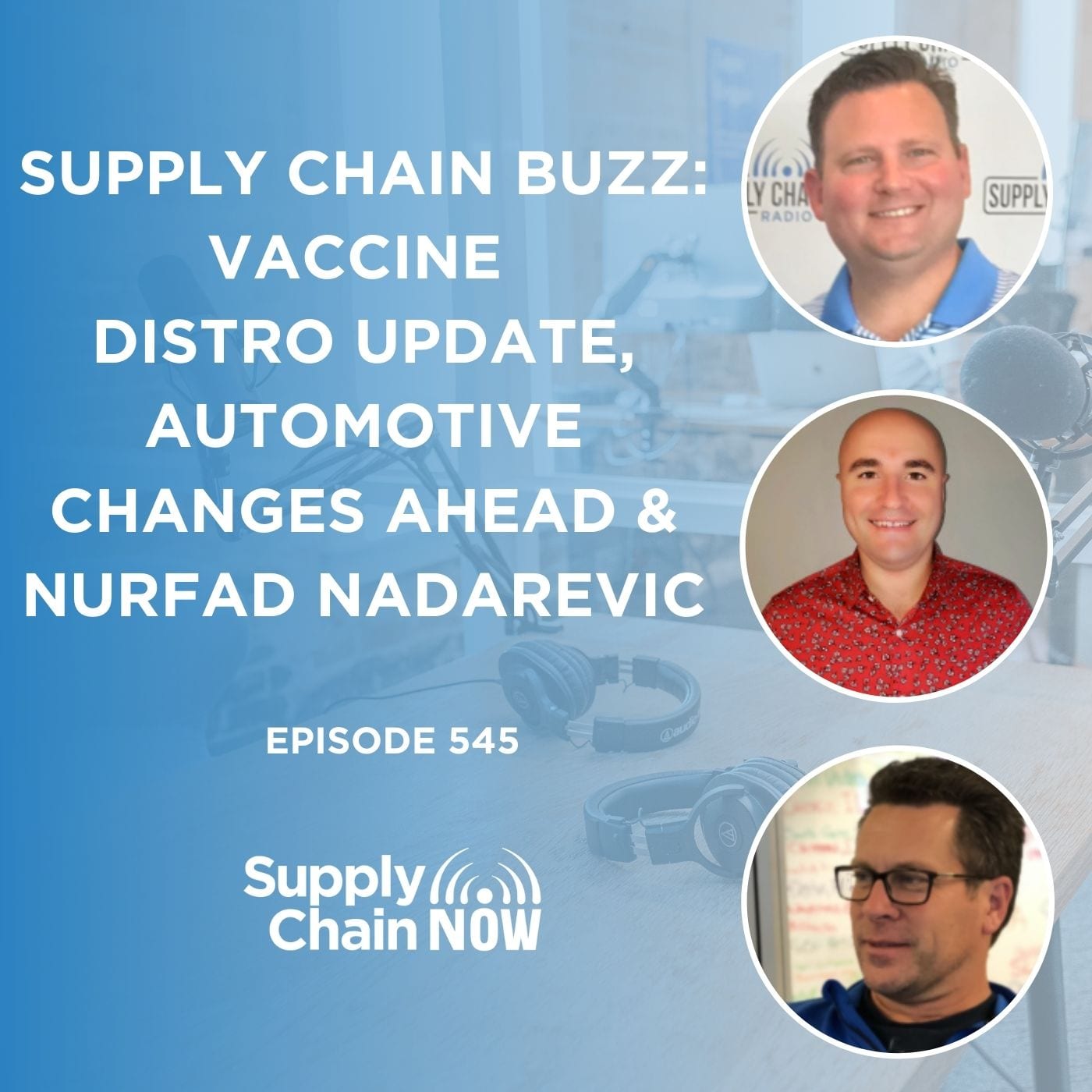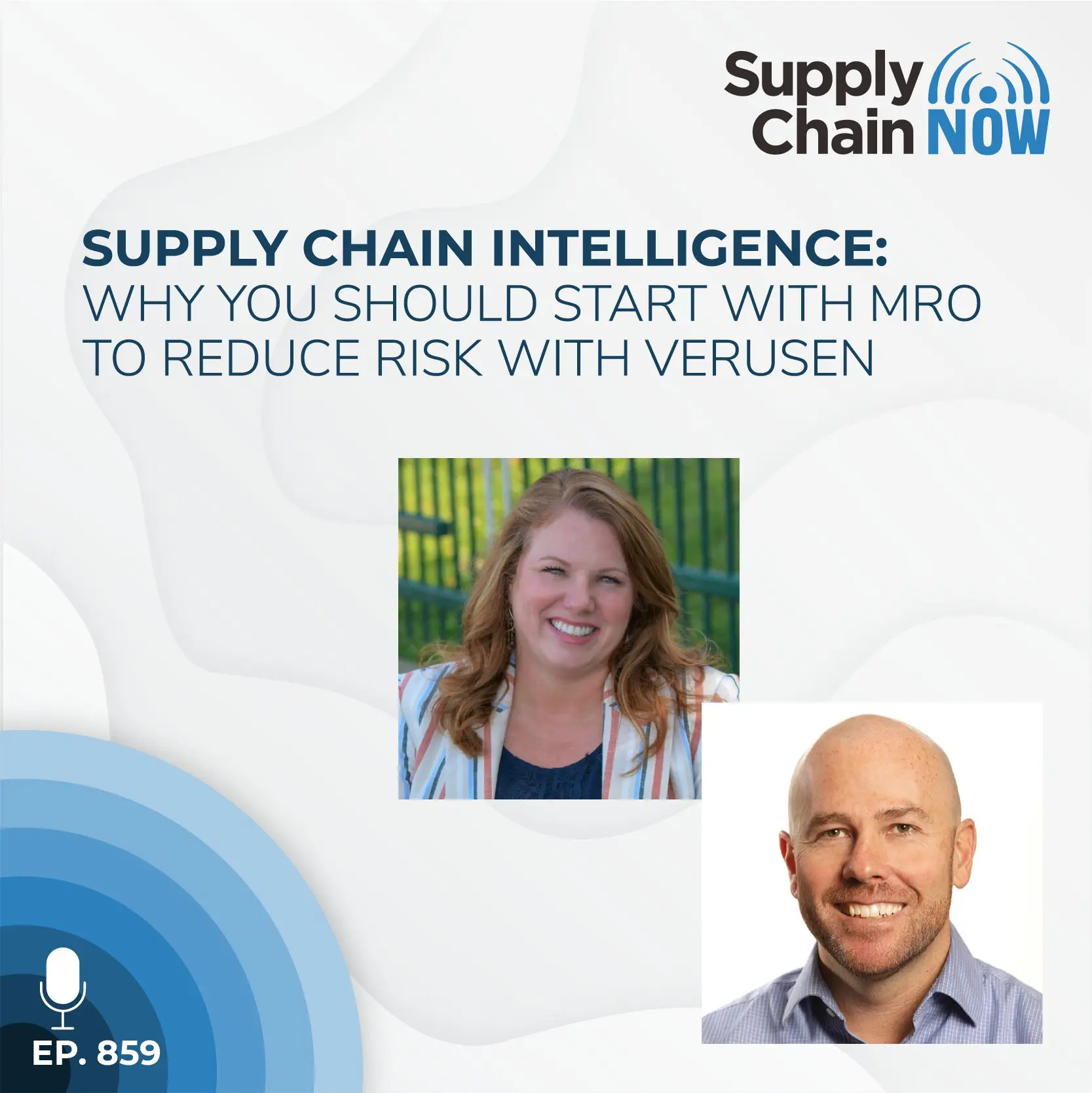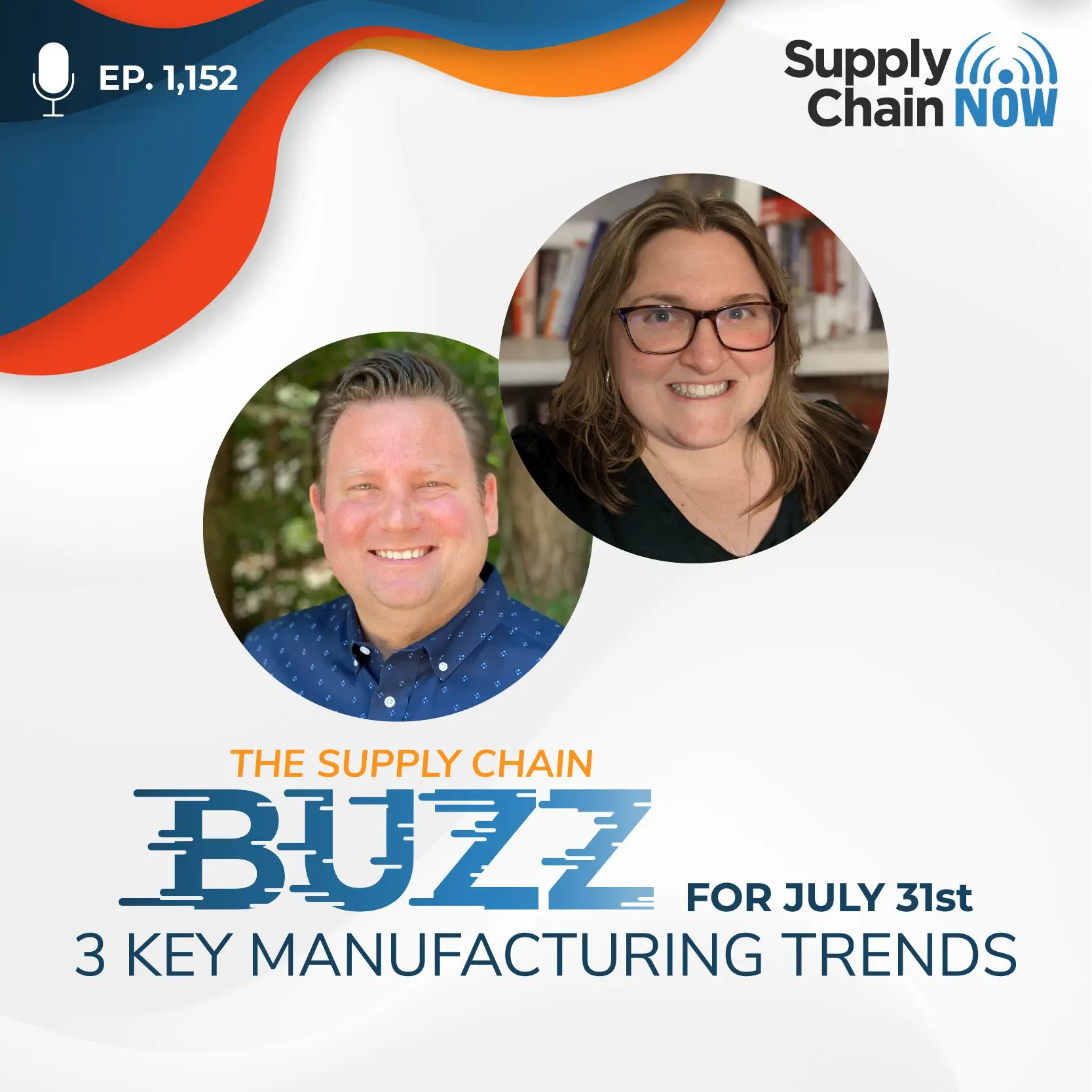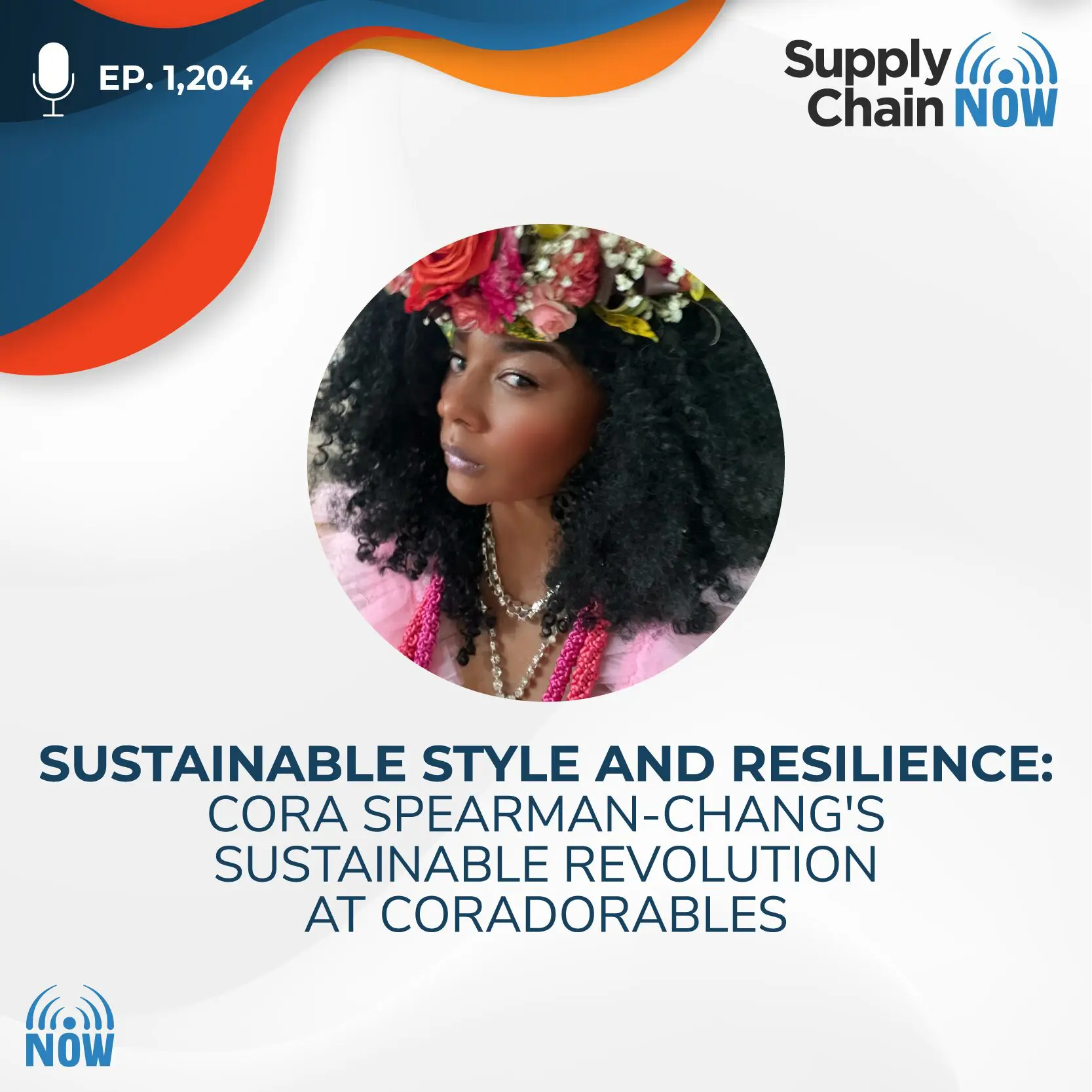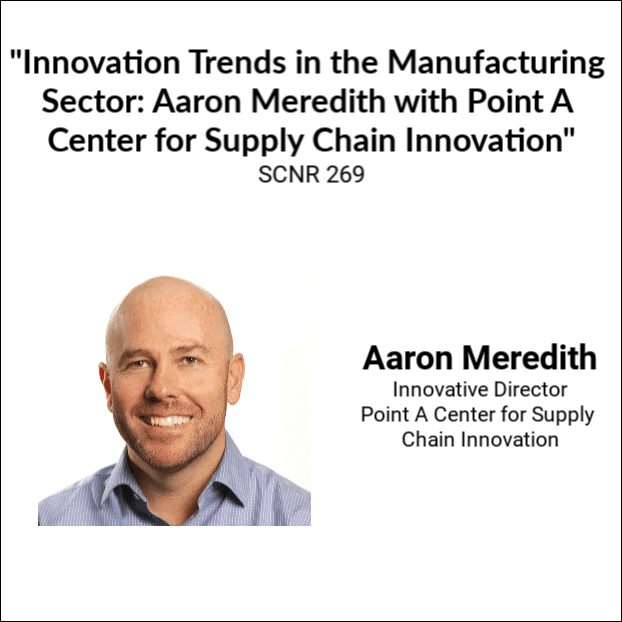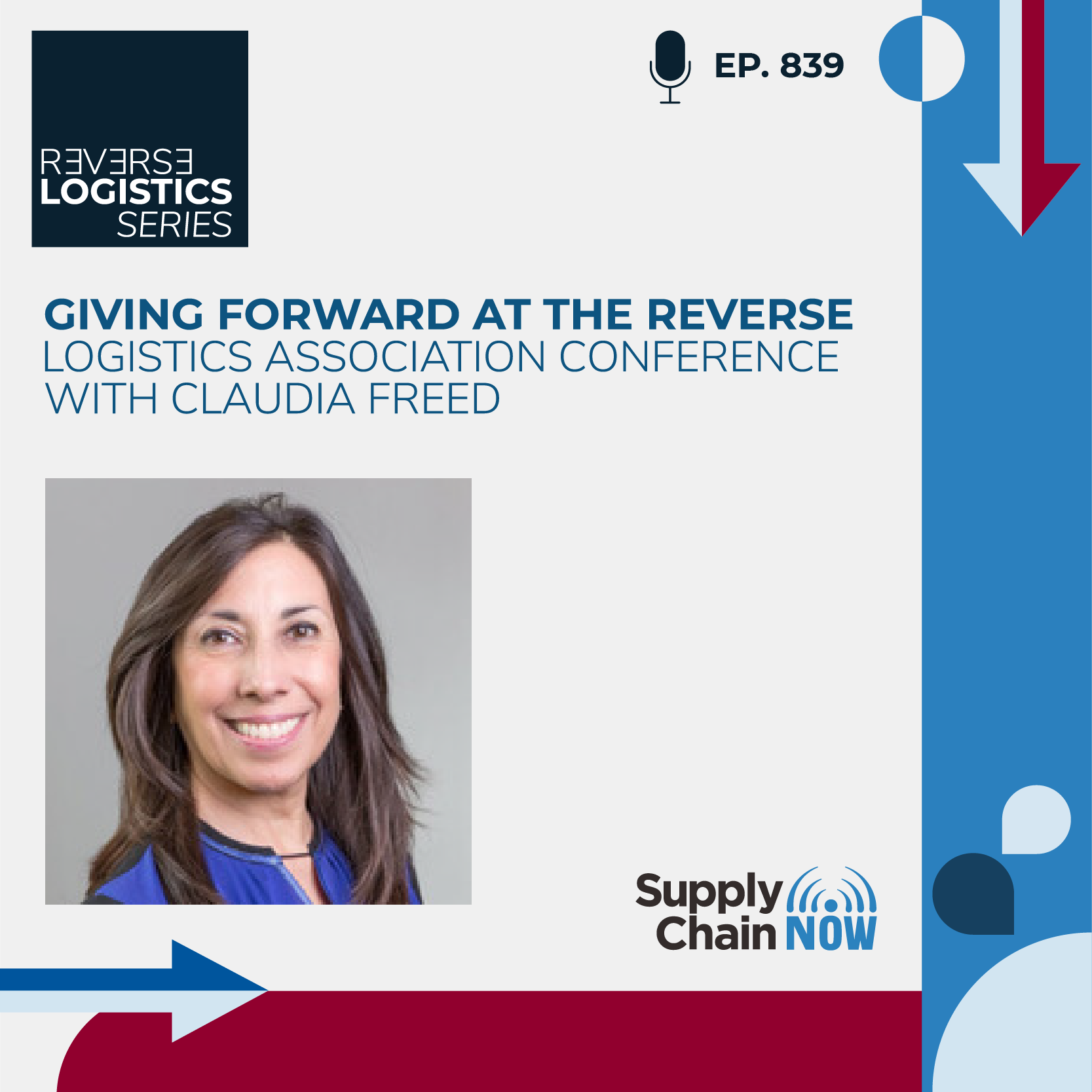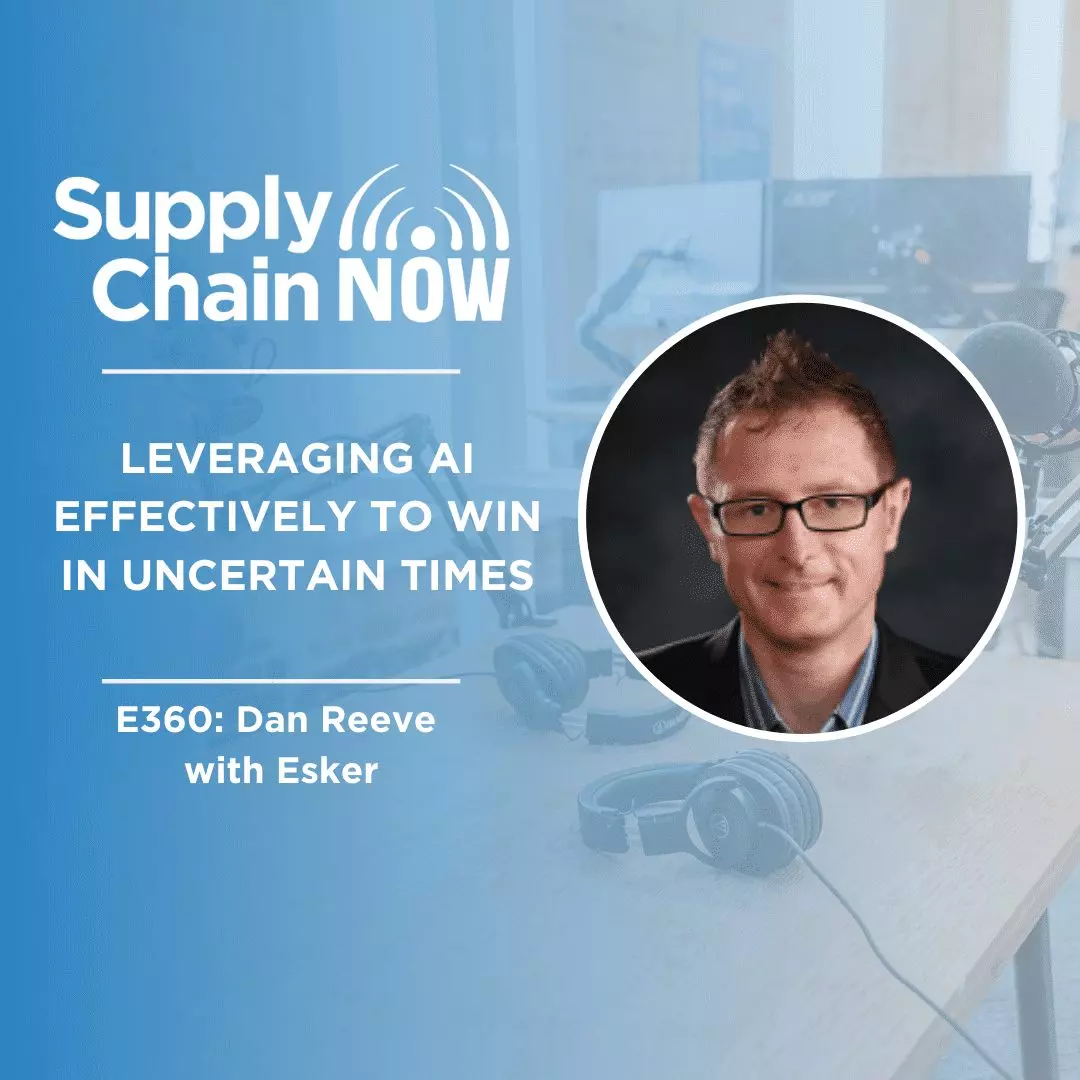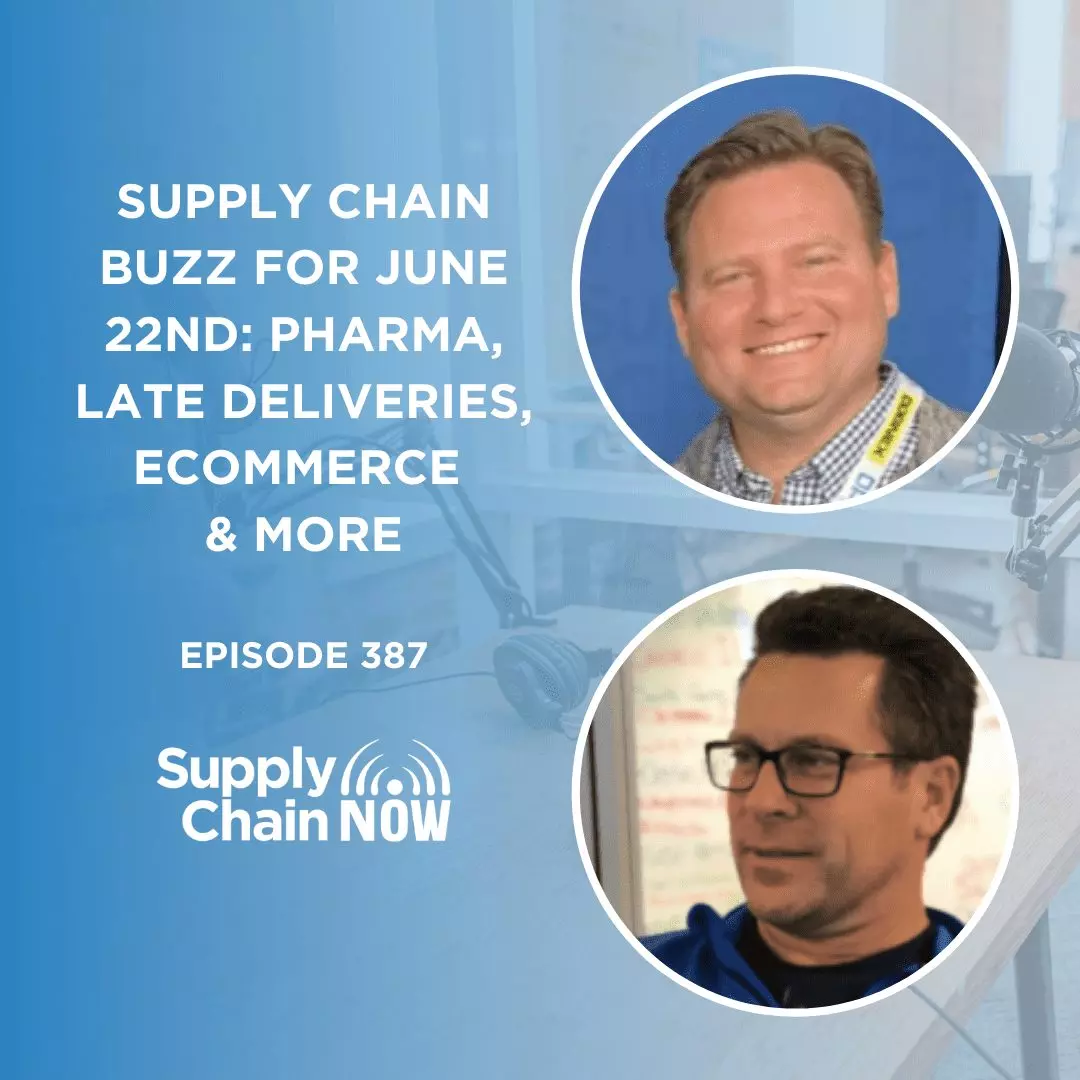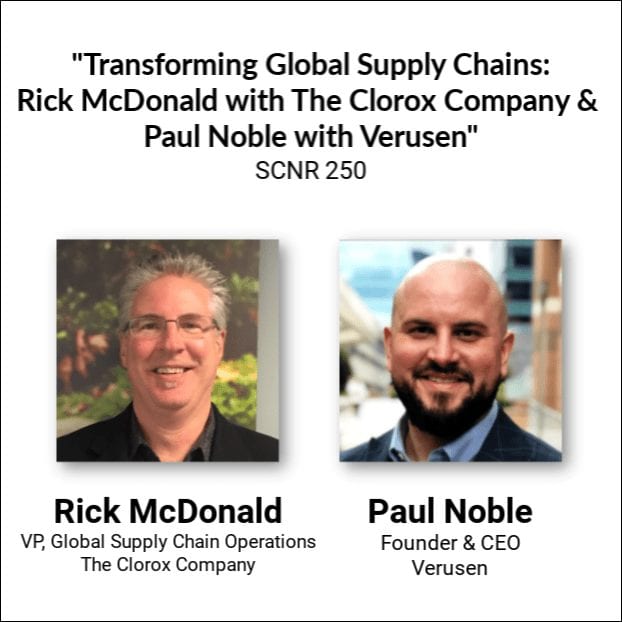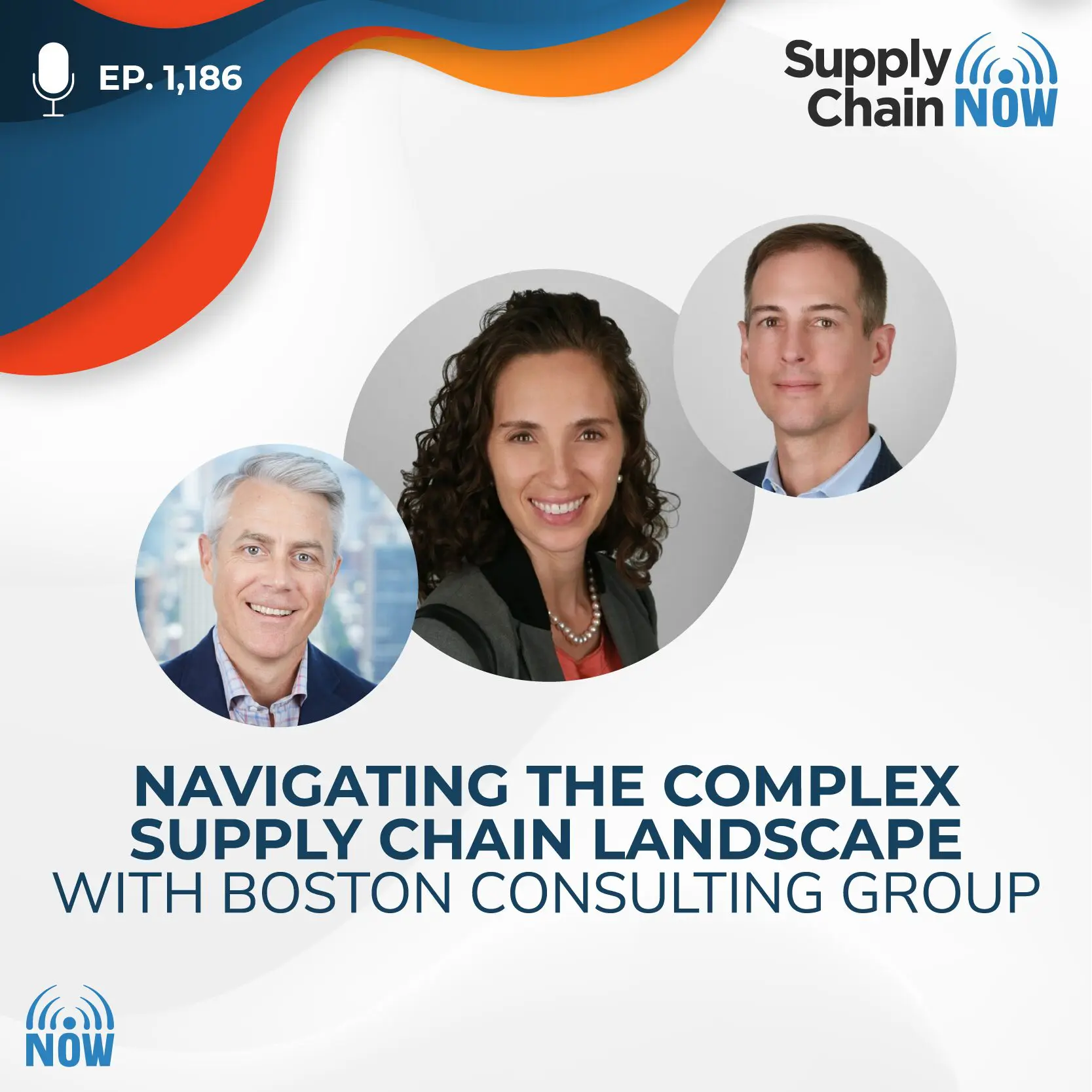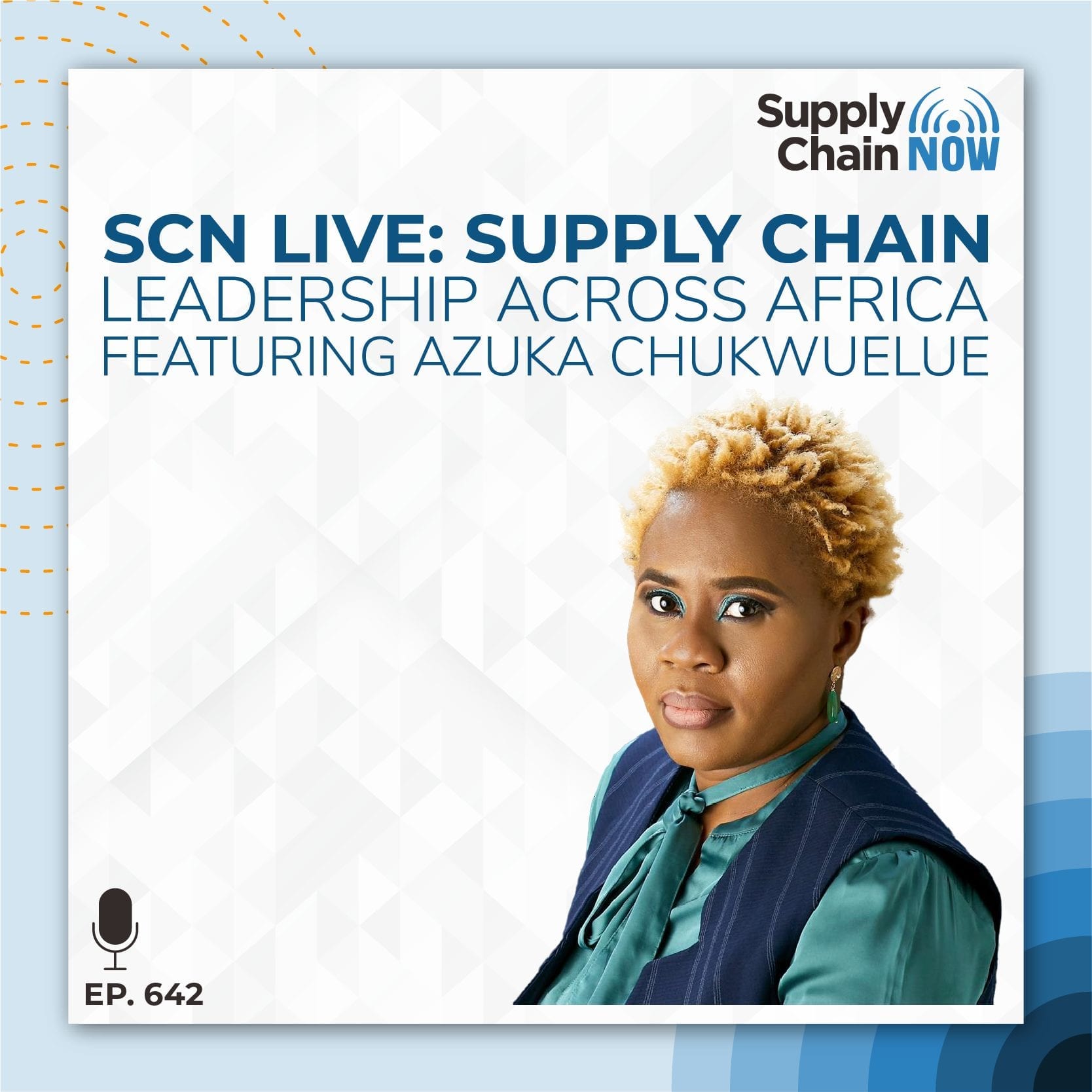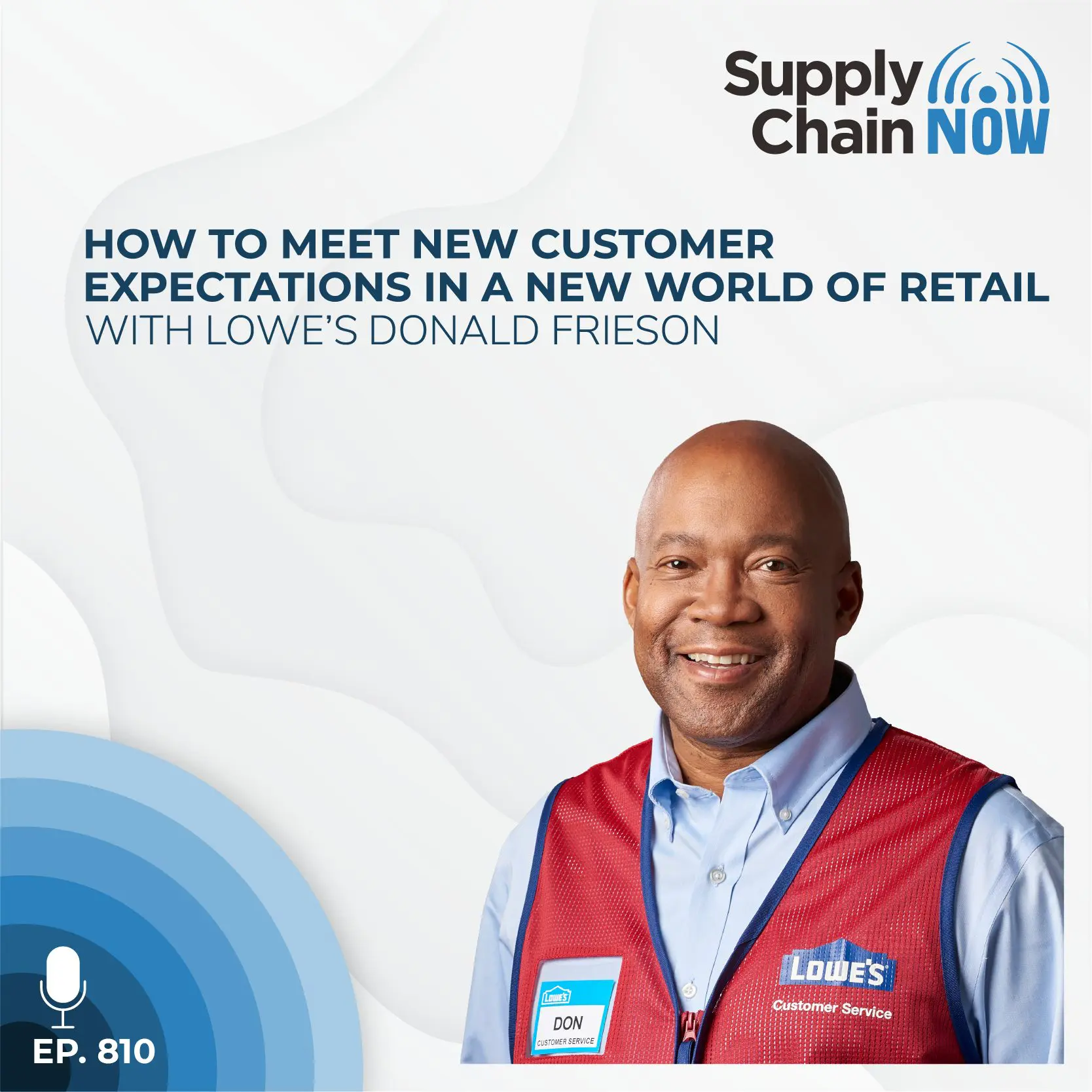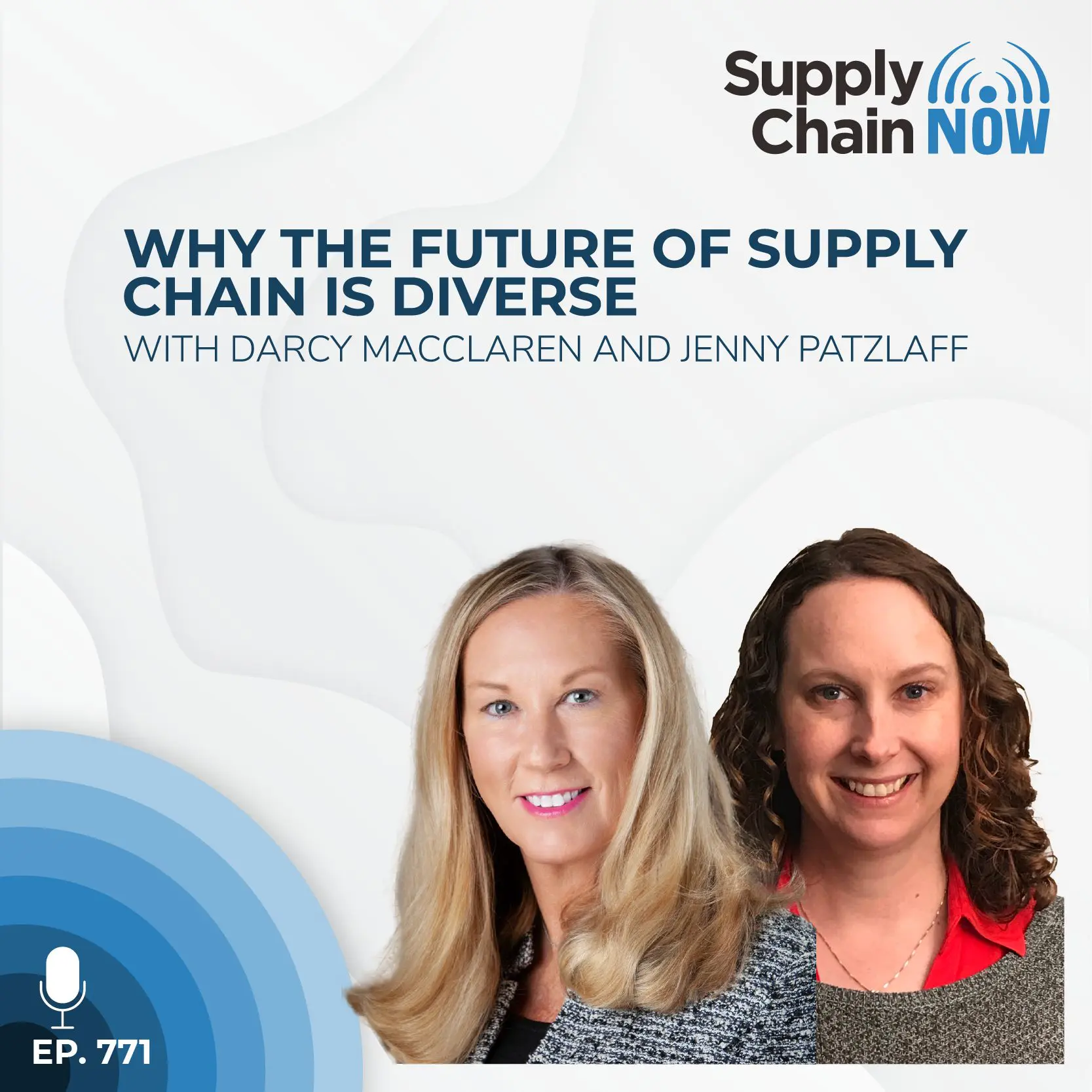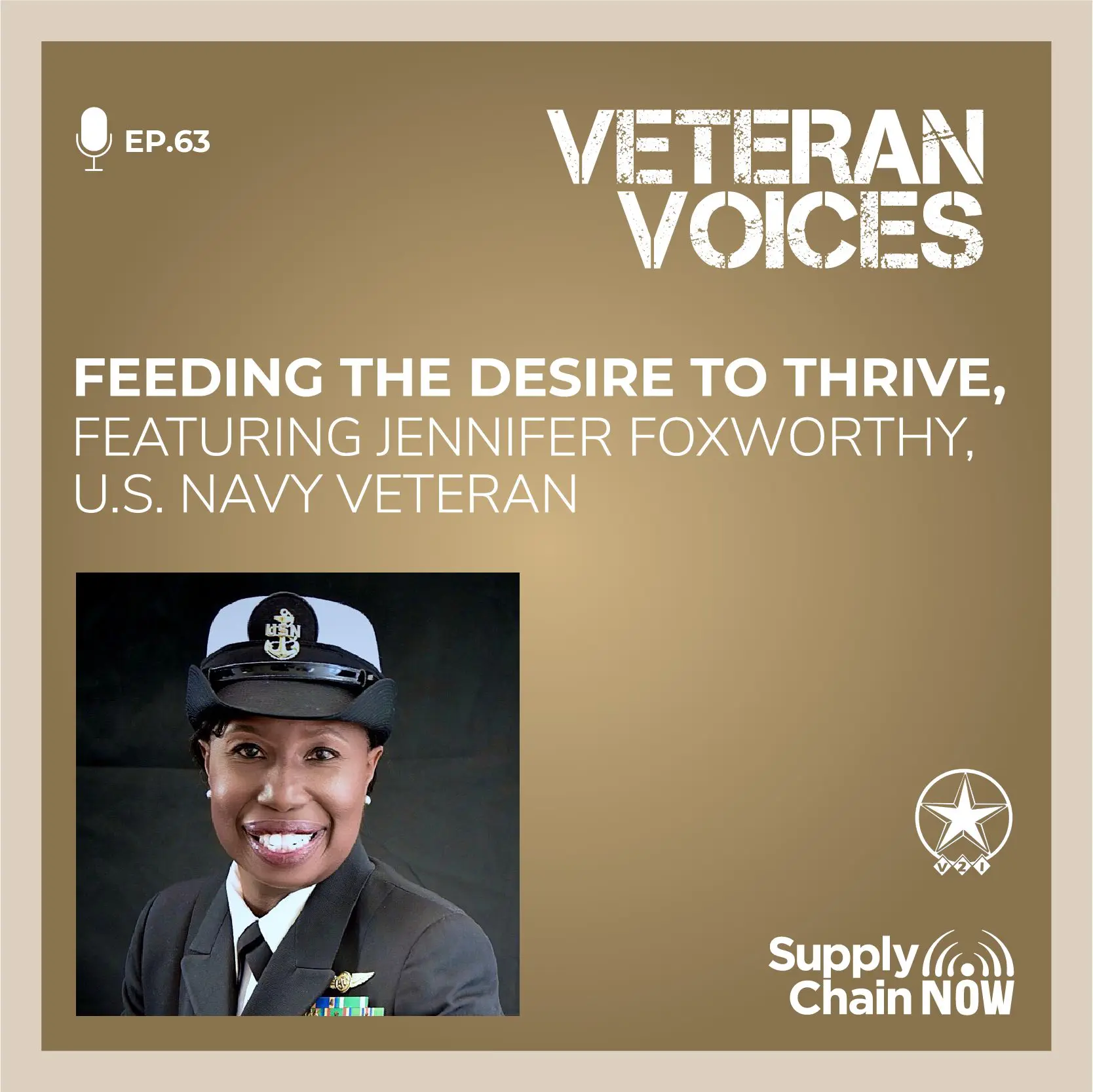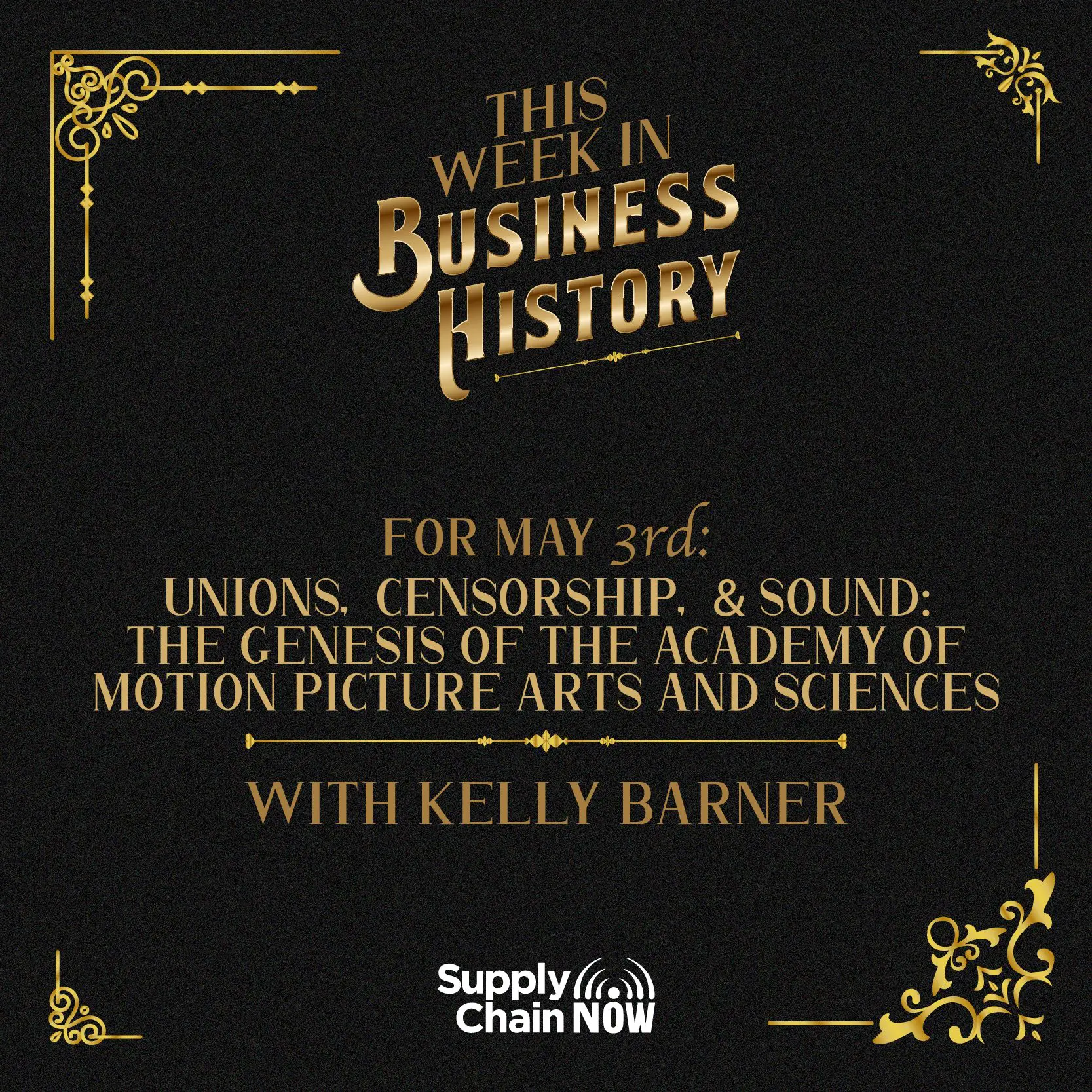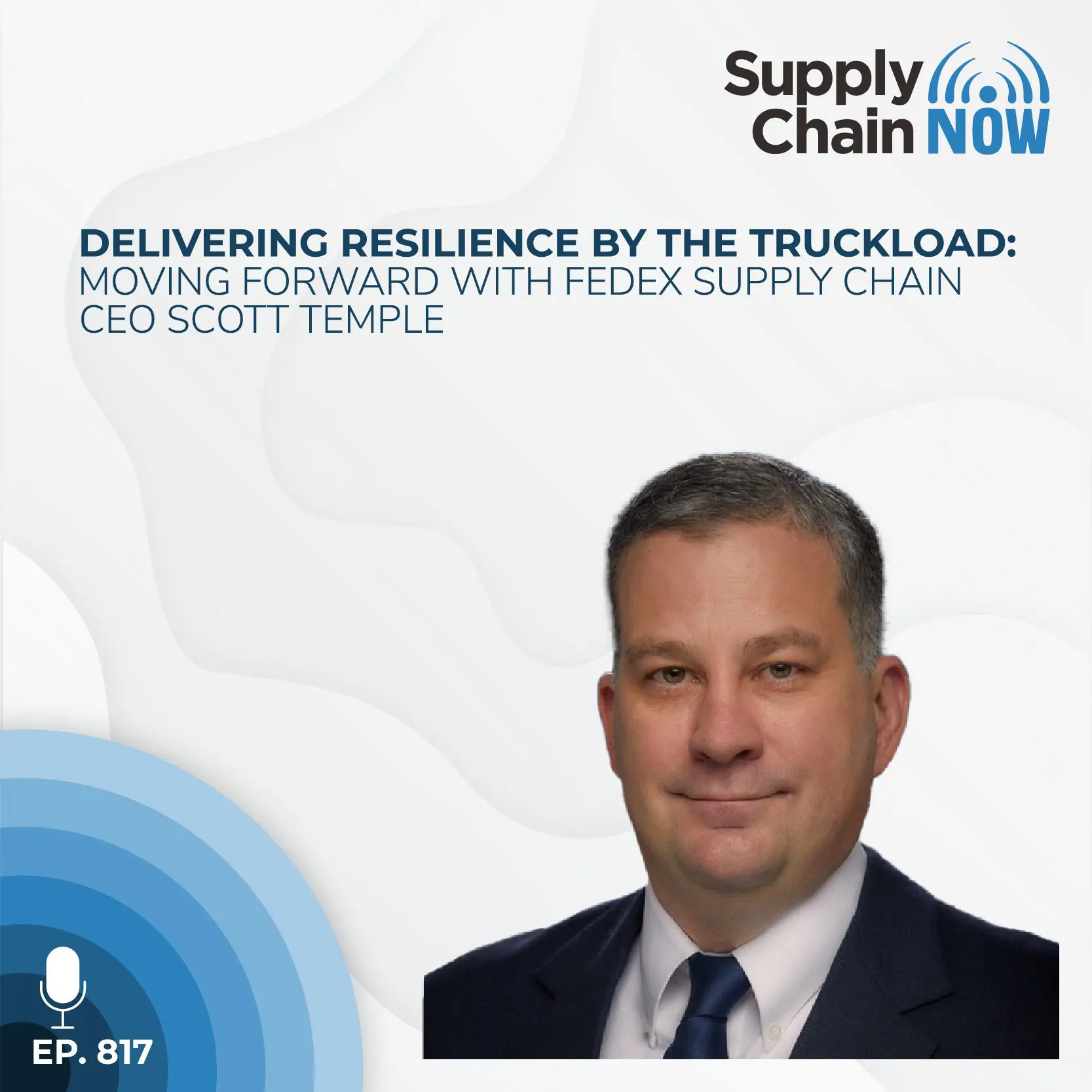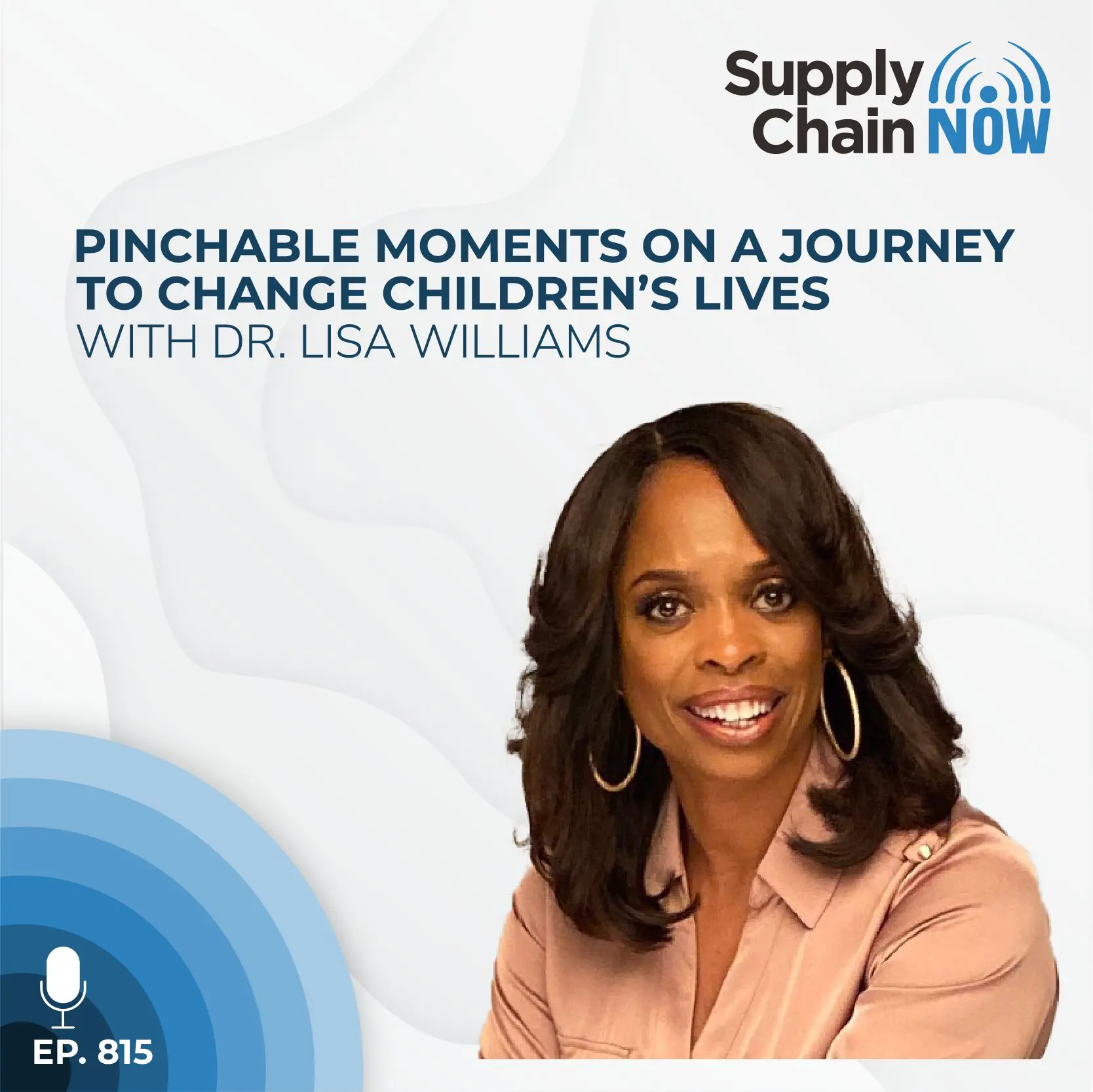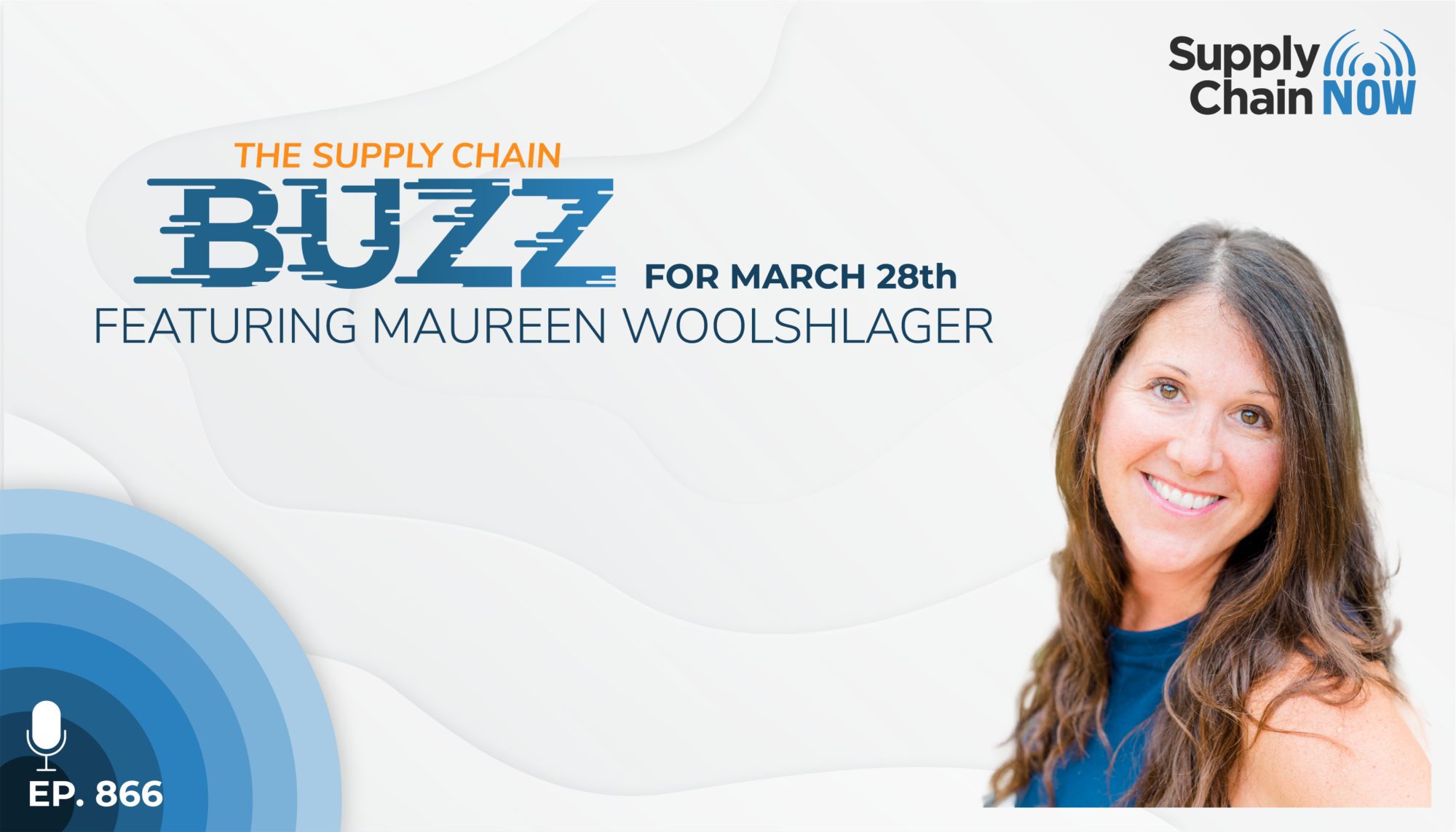
Let's get preemptive and preventative in supply chain, not just responsive. I think blockchain and the transparency and the accountability that it can deliver in the supply chain are the ultimate preventative measure. We don't have to be constantly putting out fires.
- Greg White
Episode Summary
The Supply Chain Buzz is Supply Chain Now’s regular Monday livestream, held at 12n ET each week. This show focuses on some of the leading stories from global supply chain and global business, always with special guests – the most important of which is the live audience!
Although it is hard to pull our eyes away from the war in Ukraine, daily business continues to require our constant attention. In this episode of The Buzz, the team covers both. They share their perspective on a number of current news stories and also welcome in a special guest – Maureen Woolshlager, Director of Business Development at Vector Logistics – to talk about her team’s effort to coordinate the donation and transportation of much-needed goods to Ukraine.
In this session, created in collaboration with a live digital audience, Scott, Greg, and guest host Karin Bursa from Tek Tok, discuss:
- The current good news, bad news situation with fuel prices in the U.S.
- How the omnichannel trend, created and matured in retail, is now starting to appear in B2B supply chains
- Why, even with large organizations like the Federal government and Red Cross mobilizing to help the people of Ukraine, there are still ways to help
Episode Transcript
Intro/Outro (00:00:03):
Welcome to supply chain. Now the voice of global supply chain supply chain now focuses on the best in the business for our worldwide audience, the people, the technologies, the best practices, and today’s critical issues. The challenges and entities Stay tuned to hear from those making global business happen right here on supply chain now.
Scott Luton (00:00:30):
Hey, good morning, Scott Luton, Greg white and Corrin. Be with you here on supply chain. Now. Welcome to today’s live stream, Greg Corrin. How we doing?
Karin Bursa (00:00:40):
Doing great.
Greg White (00:00:41):
Yeah, very well. Thank you.
Scott Luton (00:00:43):
It is so good to see you both, uh, big weekend this weekend, we were talking, we’re talking about the whole team prior to going live about all the comings and goings, uh, this week, we’re not gonna offer up any post Oscar Monday morning quarterbacking. We’ll leave that to the hall Hollywood pros, but as Greg’s reaction, just now his massive hour roll, it was something yesterday. Uh, Greg and Corrine. Uh, we’re not, we’re gonna leave all that alone, right?
Greg White (00:01:14):
Well, I, I never watch award shows. First of all, they’re huge waste of time where people who are already so accomplished self congratulate, um, and boring for the most part, but apparently we all actually missed something. I’m just gonna say that. Let, just go search will Smith.
Scott Luton (00:01:32):
That’s right. Uh,
Karin Bursa (00:01:34):
Life life’s imitating art or art imitating life,
Greg White (00:01:37):
Right? I mean, which is it? Yeah,
Scott Luton (00:01:39):
I know. You know, uh, I don’t know, but what I do know is as folks we’ve got a great and full, uh, uh, supply chain buzz with you here today, we go live every Monday at 12. In the Eastern time, we walk through some of the biggest issues, uh, and news developments across global business. And we’ve got a, uh, chalk full show here today. We’ve got, uh, beyond Corrine and Greg, and we’re gonna tackle some of the things that they’ve got their on the pulse of, but we’ve got Maureen wooer with this, uh, from vector global logistics, joining us about 1230 Eastern time. She’s gonna share information around the Ukraine aid initiative that we, uh, have gratefully partnered with the vector, uh, global logistics team loan and really the whole, um, uh, global supply chain ecosystem. As we look into really get what’s needed, um, bonafide needs, uh, via vetted partners to, uh, Europe. So more come on that about 1230, but folks, everyone that’s showing up in the cheap seats, uh, the sky boxes we wanna hear from you too. So we, uh, get ready to share your comments, your take you’re POV as we work through over their, uh, variety of topics over the next hour. Okay. So Greg and Karen, we ready to do a little housekeeping before we say hello to folks.
Karin Bursa (00:02:55):
Absolutely.
Scott Luton (00:02:56):
Let’s do that. So folks we’ve been touting this for a couple months now, Greg and Corrin, the 2022 coming supply chain and procurement awards coming up, the nomination deadline, Greg, the nomination deadline, April 1st, just three days away, right? Throw the, throw the gauntlet down and challenge folks to act with these three days go
Greg White (00:03:17):
It’s April 1st. And that is no joke. So you got only
Greg White (00:03:24):
I’m on a roll. Forget it. I’m rolling. It’s this it’s this Hollywood lighting, right? I’ve got the thing going theatrical. Yeah, of course. Uh, nominate those, those, uh, companies and people who are doing amazing things in supply chain. There are all kinds of categories, including human interest and, um, ESG goodness. And, and of course, strong performance in supply chain and man, if for no other reason, let, uh, the rest of us know is doing really, really good work and performing really well in supply chain right now. I think we could all use that good news.
Scott Luton (00:04:07):
Absolutely. And there’s lots of it if we go looking for it. Right.
Karin Bursa (00:04:11):
Absolutely. Absolutely. You know, there, there was a statement probably 10 years ago by one of the research groups that said supply chain saves the world. And I believe that that’s never been more true than it is today. Yeah. Um, and that all of our community here has the power really to make an impact for, for good, um, with their daily activities, as well as applying their skill sets to problem solving.
Scott Luton (00:04:36):
Yep. Agreed. Agreed. So thank y’all for both of your comments folks take in action. Uh, supply chain procurement awards.com is easy to nominate there’s it doesn’t require 27 pages of background information. We’ve got two or three, uh, questions of criteria per category. And Hey, the nomination fee goes to a great cause. Hope for justice, which is a nonprofit doing great work, uh, fighting modern slavery and human trafficking. So join us for that. Uh, let’s see here also, Greg, Greg and Kevin L. Jackson are headed up the road to the upstate of South Carolina for the upcoming global upstate conference on international business and foreign affairs. Greg, what’s going on there,
Greg White (00:05:15):
Scott? I think we ought start with, since you’re a South Carolina native, we ought to start with explain to people what the upstate versus the rest of the state thing is.
Scott Luton (00:05:26):
That’s a great, that’s a great question. And, and briefly put, uh, the upstate refers to the gr really mainly the Greenville Spartanburg metropolitan area, right? Uh, there’s a lot of international manufacturing and, and, and supply chain organizations up there. There’s lots of educational and academia in the upstate part of South Carolina. Of course, Clemson university happens to be part there. You officially of the upstate. So how how’d how’d. I do great.
Greg White (00:05:50):
You did, you did very well as a, as a new resident of the low country, which is the Southern and coastal part of South Carolina. I really appreciate the distinction. Um, but Hey, seriously, good point on that. And particularly, uh, as to who is participating in this, so we have military generals, we have ambassadors, we have the former president of BMW, um, for production, one of their big divisions, um, and a ton of business persons near astronauts and fighter pilots like Kevin L. Jackson and other people who are both have both an eye on supply chain and business and technology and international affairs and the confluence of all of things in our incredibly complex and interconnected world today. So it’s gonna be a really interesting discussion. In fact, uh, I forgot to tell you, Scott, I have a hard stop. Okay. At one o’clock. Cause I gotta, I gotta go
Scott Luton (00:06:51):
Well with that said folks, I think you better get too, right. I think we can still register. So 29th through the 31st this week. Yeah. Greenville and Spartanburg and the link is in the comments. Uh, all right. Uh, Karin tech talk, digital supply chain podcasts continues to grow and grow and we’re hear, we’re hearing a lot, both, um, anecdotally and just the consumption numbers themselves. So you published this really cool episode supply chain basics. Every a business person needs to know a week or two ago, I believe. Uh, talk about that or, or what else is going on at tech talk?
Karin Bursa (00:07:25):
Yeah. So, um, that published last Wednesday and, um, I have to tell you, I’ve been really surprised. It is an episode that, uh, has generated a lot of feedback. I’ve had a lot of, um, emails, a couple of text messages, um, of just people kind of appreciating the topic. I have to tell you, Scott, I was a little nervous. I thought it might be too basic for our tech talk audience, but they’re using it to share with their coworkers. And even some of ’em are sharing it with their family members to help describe what they do day in and day out. So I wanna encourage you just take a quick, listen, you may have a few people, uh, that you wanna share that with, but, uh, it was a lot of fun. And in the feedback I’ve actually had, uh, additional topics that have been recommended in that kind of basic genre format. So we’ll do some more of it in the future. So
Greg White (00:08:18):
I will be a C equal. It
Karin Bursa (00:08:20):
Will be a sequel. Thank you for the, uh, movie. I have to get my lighting down like yours though. Good.
Greg White (00:08:26):
I need that. I, I got, I’ve gotta get this fixed. This is driving me crazy. It was a neat theatrical effect for about five seconds, but I feel like I’m only like half here. Uh, but Hey, first of all, I love the graphics of tech talk and I think that looks fantastic. And second Corin spill the beans just a little bit. Just give us one basic that you’re gonna share with folks in this, Joe.
Karin Bursa (00:08:49):
Yeah. So one basic and, and there’s a number of them out there, but just what is encompassed in supply chain? Everything Greg from forecasting to inventory optimization to what is supply and production planning. How does that come together? Uh, from a sales and operations planning process. So, um, just some basic kind of background things, you know, inherently and have done for, for decades, but even in, um, you know, a typical business role, every business person needs to understand. Yeah.
Greg White (00:09:25):
Agreed. Agreed. And I think you’re right. You can’t be too basic. We often, as practitioners take so much for granted, we forget. It’s kinda like you get how to learn, how to learn a language or to help someone learn a language because you’ve been speaking it so long and supply chain is a lot like that.
Scott Luton (00:09:43):
Agree. Yeah.
Karin Bursa (00:09:43):
Good point.
Scott Luton (00:09:44):
So y’all check that out. Take talk wherever you get your podcast from. We’re gonna talk about one other episode as we get into blockchain, which I think our second and third story here today, but, uh, a lot of good stuff. Uh, a new episode every week on, uh, Wednesdays Karin every
Karin Bursa (00:10:00):
Other
Scott Luton (00:10:00):
Week, every other week, every
Karin Bursa (00:10:01):
Other week, every, every other Wednesday is when tech talk
Scott Luton (00:10:05):
Drops. See, Y I was, I was going to demand planning cause the demand for it is weekly, if not daily, but it’s every other Wednesday, you y’all check that out wherever you get your podcast from subscribe. So don’t gonna a single thing. Um, right. One last note forward, say hello to a few folks is I mentioned this, uh, leveraging logistics for Ukraine on the front end. Um, Mon um, I want, I almost said Monica, uh, I don’t wanna get my legs broken, will be joining us here about 1230. Uh, she is one of the leaders of this, uh, initiative and we’re having a working session today at 3:00 PM Eastern time. Uh, it’s gonna be a weekly working session as we, as we facilitate, um, resources for these vetted needs. And it’s open for everybody, whether you’re in logistics in supply chain, or if you just want to get more informed and maybe, you know, find a way to help.
Scott Luton (00:10:53):
Y’all join us at 3:00 PM today, uh, in the link for that is in the comments as well. Okay. So Greg and Corrine, where are we starting here today? Let’s see here. We’re gonna start as we get into two or three stories before, uh, uh, Marine joins us. I wanna start with, uh, diesel diesel prices. Ooh. Okay. So, uh, the good news, there’s always some, the good news is, uh, diesel gas prices have come down just a smidge in the last week or so from five, $5 and 25 cents per gallon. The week of March 14th, according to the wall street journal to $5 and 13 cents per gallon last week. But the bad news that on average across the country, almost two more dollars per gallon, more than it was a year ago. And also, you know, we’re all seeing surcharges and, and, um, you know, a lot of larger companies have little extra margin or, or little extra installation against these, um, these gas prices. And they have some options that some of the smaller players don’t have, but the smaller carriers are really having to make some tough decisions from as, as the article here speaks to from adjusting the business that they’re willing to accept to creatively finding ways to reducing speed or, or idling times, but it’s really challenging times and right on time, yes, clay diesel, diesel prices, diesel of course, is, uh, our nickname for, uh, clay Phillips here. Cause his engine is always running, but,
Greg White (00:12:28):
But we’re gonna have to change that at least for the time being, or we won’t be able to afford him.
Scott Luton (00:12:32):
That’s right. That’s really quick before we get into our next story, uh, on diesel prizes and kind of the ripple effect, Greg, any key key thought there?
Greg White (00:12:42):
Yeah. I mean, they’ve been all over the place of late and LAR and some of it is manipulation that the good and bad news is with China on lockdown. The, the demand for diesel and, and, um, and crude oil generally has gone down dramatically. So, but I, I mean, crude oil has plus a barrel as low as $94 a barrel. In fact, I just read an article last week that said crude oil is in a barrel market because it had dropped 20 per percent in five days and now it’s kind of fluctuating in a range. So, uh, we’re gonna see it. This is the time when a lot of opportunists take advantage of the fluctuation in prices and, and prices have gone up. I have to tell you regarding not diesel particularly, but gasoline. Um, I saw the prices spike pretty high and, and come back, uh, fairly dramatically down 15% or so.
Greg White (00:13:41):
So I think a lot of it has to do with, um, who you frequent. My suggestion is take a good look at some of the big, uh, convenience store chains who are really, really good at Ford buying few. And I hate to name any, but there are a couple of the usual suspects that, that are very, very good at it. And of course, Costco, right? I mean, the lines couldn’t be any longer at Costco. So what does it hurt to mention them? They’re very, very good about that. You have to be a Costco member, but
Scott Luton (00:14:12):
Join today. Uh, so cor well, would you add to that?
Karin Bursa (00:14:18):
Yeah. Hey, uh, Greg, nice job working in a couple of supply chain terms there, like forward buying. Maybe that’s another one we’ll have to
Greg White (00:14:24):
Cover. Oh my gosh. Yeah. That’s right.
Karin Bursa (00:14:26):
Supply chain basics.
Greg White (00:14:28):
Put that on the basic list. Yeah.
Karin Bursa (00:14:29):
Yeah. Um, so I, I agree with, with what you both said, I think we’re just in this period of extreme ball and, you know, combined with inflation where it is today, um, it it’s gonna be, um, challenging, especially for those smaller carriers, Scott, it really will be.
Scott Luton (00:14:48):
Yep. Agreed. Uh, in fact, um, you know, some of ’em are choosing the partner vehicles, uh, is what, uh, the wall street journals are reporting. And then also on the larger side, one of the company, uh, presence they spoke to, they were, they had been using a 70,000 gallon reserve tank of diesel, but they just uped that to a 500,000. They just tapped it off. Um, I think a week or two before Russia invaded Ukraine. So, um, you know, we’ll, we’ll, we’re gonna keep our finger on the pulse and, uh, talk about it here on the buzz. Uh, cause it is some wild and crazy times and challenging times and never, it never seemed to end, but nevertheless, um, I wanna switch gears. Um, I wanna switch gears over to omnichannel. You know, it’s been such a, uh, a fascinating time, uh, to, to really, to be a consumer, but also to be in retail and, and certainly to be in supply chain, uh, these last few years, it’s, it’s, it’s nothing short of amazing to see what retailers have done to meet. Um, maybe not, not, not necessarily across the, but many of the leading retailers, what they’ve done to really meet the consumer where they are Corrine. Talk to us about this McKenzie article. Um, and tell us about, is omnichannel here to stay.
Karin Bursa (00:16:04):
Yeah. So you’ve got the blockchain graphic up. Um, but the omnichannel, what was interesting about this from McKenzie and company is that, um, and, and this is not retail. This is business to business. Mm. And, and that’s what is so fascinating because I think we, as consumers have, have believed for years, omnichannel is here to stay, and this is the way we wanna engage. But what this research shows is it’s here to stay in business to business relationships, and it is almost equally split as far as in person direct or in person remote human interaction and self service. Yep. And, and that is a big, big shift, especially if you’re willing to place an order for $500,000, or they even had some examples of 5 million orders that are being placed in this virtual growth forum. Um, and I think that’s just fascinating to me, but there are some expectations that go along with that.
Scott Luton (00:17:11):
So, uh, now that I’ve got the right graph pick up there, you know, folks, hopefully y’all can and very colorful. I think hopefully y’all y’all can relate on a Monday. I can be talking to something and, and having a completely wrong visual on there. We’re all certainly human, but Karen, we’ve got, speaking of those things, I think I’ve got the graphic for, you know, some of what these top expectations are. So speak to this a little a bit.
Karin Bursa (00:17:35):
Yeah. Yeah. So, absolutely that just shows everybody, this is right. We’re, we’re that there’s musts that businesses have to have to really master as a part of being effective in this business to business omnichannel world. And the first and foremost of that was 78% said that performance guarantees is, is gotta be there. And that means all of us that means I’ve gotta be willing to do a full refund. Um, and then 74% is product availability as shown online. Now, Greg, you know how hard that is, right? Because those inventory levels at distribution centers calculating lead times available to promise et cetera. So that I think is gonna be one of the more challenging elements and then three areas at 72%, which is the ability to purchase from anywhere, same price, same promotions, et cetera, real time, always available customer service, even if I’m making a purchase at 2:00 AM local time. Wow. And then 72% also consistent ex experience across channels. And I think that’s one thing that even as consumers we’ve been pushing those retailers, uh, to do as well.
Scott Luton (00:18:59):
Yep. Excellent point, Greg, I’m gonna come to you. And then in, in a minute, you know, I’m gonna bring in some comments from the sky boxes, Greg, what are you hearing and what are you seeing?
Greg White (00:19:09):
Well, I think it’s about time, um, that, you know, the companies that, I mean, if you think about it, who has had technology longer than, than most consumers companies and that they, that it’s time for them to update and enable technology that allows them to do the things that that consumer facing entities are doing. I’m surpris, frankly, that it’s taken this long, well, Corrin, you know, at the same time surprised, maybe frustrated more than surprised, but not surprised as well, because we’ve seen so many companies, so many, uh, practitioners cling to the ways of the past because it’s uncomfortable, disruptive and, and, you know, um, it’s, it’s change and, uh, people hate change. Right? So, uh, but I, I think it’s it’s time and it’s good to see that the expectations are out there and that they’re clear and that they’re so aligned with what consumers are expecting. It makes the model a lot easier to apply.
Scott Luton (00:20:14):
Excellent. Excellent. Excellent. Let me get to, uh, so Greg Andre, I appreciate both of your, uh, your perspectives here. Yeah. It just dawned on me. Uh, and this is just, uh, it must be the end of the month. Uh, maybe I’m losing my mind. We didn’t say hello to anybody. So we’re gonna, we’re gonna take a moment. We’re gonna say some folks, but we’re all also gonna get some comments based on this omnichannel discussion. Uh, so bear with me as we play catch a bit, uh, we gotta, we gotta top off the tank and, uh, full speed ahead. Peter Bole all night and all day is with us here today. What an Oscars, the slap heard around the world. Peter, we weren’t mentioning that. We weren’t gonna mention that, but I hope you’re doing well. And yeah, we all agree with you. I think Mohe is with us and hello, Corrin Bura. After a long time, he says, uh,
Greg White (00:21:00):
That’s true. I mean, we need to acknowledge that. It’s great to, I was thinking about that while we were in the green room. It is great to have you back on the agreed,
Karin Bursa (00:21:09):
Agreed, and, and, or professor it’s good to see you too, or at least see a picture Sean in here.
Scott Luton (00:21:14):
Yeah. Uh, cigar is tuned in, uh, from India via LinkedIn. Great to see you here. It looks like he’s a fellow practitioner supply chain manager. Looking forward to your perspective. As we mentioned, the diesel is here with us, uh, clay Phillips, upstate ack, as we were talking about, uh, what the upstate is, uh, divine is back with us, uh, divine sports and mentorship. I think, uh, they’re out of Texas, I believe. Great to see you here. Jason T. Hopkins, Greg he’s back
Greg White (00:21:43):
There he is.
Scott Luton (00:21:44):
Uh, now he’s a, he’s a, uh, cor I wanna break your heart, but he is a Bama fan that hails from DC, but he’s doing some really cool things in supply chain space. So at least we can be kindred spirits there. Right?
Karin Bursa (00:21:57):
Absolutely. Absolutely. As long as it’s not football season. We’re
Scott Luton (00:22:01):
Good. Right. Yeah. Now, uh, it’s just, I’ll tell you, it’s been a challenging day, I think on the front end. Uh, I mentioned that, uh, the working session focused on Ukraine hosted by our friends at vector global logistics was today. No, it’s Wednesday at 3:00 PM. Wednesday at 3:00 PM. Uh, we talked about
Greg White (00:22:22):
God. Well, I wanna, I think we should all hear about your, that has you in such a,
Scott Luton (00:22:28):
You know, it has been, it has been a whirlwind. Uh, and to be fair though, we, we talked last time about moving the date, uh, to earlier in the week. And my, I, I think I made the wrong assumption, but it’s Wednesday at 3:00 PM, which, Hey, it gives you more time to join us. So, uh, check that out. Uh, Justin Wilson and tuned in from Buffalo, New York, Corin, and Greg have y’all ever been to Buffalo, New York and actually had wings at the anchor bar
Karin Bursa (00:22:58):
I have not been to, but I have been to Buffalo.
Scott Luton (00:23:02):
Okay. And Greg you’ve, you’ve had the infamous wings at the anchor bar
Greg White (00:23:06):
I have. And, um, Yeah, they first,
Scott Luton (00:23:12):
Right. Okay. Enough said, uh, read between the lines, Justin, regardless, welcome in from Buffalo via LinkedIn. Uh, great. See you,
Greg White (00:23:21):
Buffalo is a beautiful city com highly, highly underrated. It is, uh, mostly because it’s covered in snow nine months a year, but beautiful city.
Scott Luton (00:23:30):
Uh, great to have you just, and Mohe is talking about those diesel prizes. He says, uh, I should have bought some diesel stocks on March 21st when the price was less than two and a half bucks per gallon. I could have been rich today and joined supply chain now from The Bahamas. Uh, so
Greg White (00:23:51):
He’s not gonna stop working and go to The Bahamas. We know that
Scott Luton (00:23:53):
Right. Uh, Jason is playing up my visual area. I, I like blockchain to understand this process. You have to reimagine the virtual warehouse to meet some of these omnichannel, uh, demands. Excellent point there, Jason and welcome. Everybody know we couldn’t hit, hit everybody, but welcome. Welcome in. Okay. So, uh, we just touched on blockchain, Greg. I think I said that correctly. Blockchain. You did. I thinking warm up was, uh, tongue tied saying blockchain. It’s not blockchain. So, uh, but let’s talk about how blockchain is driving compare, uh, transparency in the supply chain via this article from the right one from supply chain, dive, Greg, what say you?
Greg White (00:24:37):
Yeah. Well, I mean, I think, you know, one of the things we have to acknowledge as regards blockchain is there, I can’t believe there still are, but there are a lot of people see it as kind of smoke and mirrors. There are some companies who’ve tried and struggled or even failed, um, and, and, um, have kind of lost their, uh, uh, enthusiasm for blockchain. But the truth is it is simply this, it is an imutable ledger of and validation that can never be changed once approved. So let’s just leave that. Let’s just leave that description out there and think about what that means to the supply chain. Yep. Right. There are of course ways to use SERT, of course, in supply chain we’ve beening chain of custody stuff falling off the back of trucks, cigarettes, and, and transactions for, for centuries, literally for centuries. Um, but there are also additional technologies.
Greg White (00:25:38):
I don’t want to complicate things by gaining into those that can, that can create the verifiability of blockchain. And, and, um, you know, the, the, that what blockchain can do is identify you. It can identify me, it can identify our interactions with one another. It can identify the products and verify their authenticity, their sourcing, right? The, the componentry that goes into it, the, even the identity of those who contribute to it, be they good or bad actors, um, creates this incredible transparency in supply chain. That is an absolute necessity these days. What’s the number one question in supply chain today, Scott Luton,
Scott Luton (00:26:19):
Uh, you in the front, where’s my stuff. Where’s my stuff. Yes, exactly.
Greg White (00:26:23):
Where’s my stuff. That’s what everyone wants to know. And, and Karen, you just point that out. Not only do consumers demand it. Yeah. But now B2B companies are demanding it. They wanna know that you’ve got their stuff before they even order it. And they wanna know once they’ve ordered it, where that stuff is. And when, and with what likelihood that stuff is to get to them. So,
Scott Luton (00:26:47):
Greg, I’m glad, uh, between the geography quiz and now the industry quiz, I’m glad I was on my toes today. Greg, maybe not. Well,
Greg White (00:26:58):
I placed a lot of faith in you, Scott, because I knew that you would come through because it is, that is the question we hear this over and over. It doesn’t matter whether we are talking to someone on the shipping dock or we’re talking to the chief supply chain officer of various companies. Every one of them asks the same question. Where’s my stuff. And, and every consumer is asking that question. They’re asking that question before they make the transaction. After they make the trans I being the obsessive compulsive that I am and watching it during the transaction. Right. I am, I have to tell you, I mean, there are things, there are things that supply chain or, or that blockchain can fix. I hate it when somebody has something on sale and, and it appears, or they even state one screen that they have it in stock. And then when you go to check out, or even this has even happened to me, which is unfathomable in this day and age after you place the transaction, then they tell you they don’t have it. That happened with a new pair of jams for me, from a very famous brand, which should be better. And they are not at the beginning. They’re at lands. OK.
Scott Luton (00:28:11):
Um, well, so we gotta point out Greg, we gotta point out because I loved, you know, I stole this article from your Monday, Wednesday, Friday, supply chain commentary. And I think we’ve got the link to where you dive a little bit deeper into this article, and we’re gonna drop that link in the, in the comments, but folks you gotta follow or connect with Greg white. So you catch, and I promise you through a few things are as thought provoking as an untethered Gregory S. White. So, uh, take that for what it is, but you want, you want, you don’t, you wanna catch up, you wanna catch that every Monday, Wednesday, Friday, and engage in the comments, Corrin, respond to what Greg is sharing and, and any additional thoughts about blockchain here.
Karin Bursa (00:28:54):
That totally agree with everything that Greg said. I may not deliver it as passionately as he does, but
Greg White (00:29:01):
You’re getting there.
Karin Bursa (00:29:02):
It is part of the future and the future is now. So if, uh, if you haven’t put blockchain on your priority list, it’s time for that. In fact, I had an interview with the one in only Kevin L. Jackson, our resident blockchain expert, and the host of digital transformers. And I asked Kevin to take us through some blockchain basics. So 10 things you need to know. And I would encourage our listeners, uh, just to, to listen to that episode of tech talk, if this is new to you, but Greg hit many of the value propositions there, not only where’s my stuff. Where did it come from? So if you are in a branded company and you wanna protect that brand equity, blockchain needs to be a part of, of your practice, as well
Scott Luton (00:29:52):
As Greg said at the top of this commentary that from this article, blockchain is a killer at, for supply chain there. I said it, I said it, and then you’ll have to, to read the rest in the link that we’ve got in the comments, but Greg, uh, I love it. Keep, keep the good stuff I know you will, because you don’t know, it’s always Frank and to the bone with your commentary. And it really is intriguing to read and to digest and to, uh, to, to, to, um, to respond to. So Greg, your, your last thought on blockchain, and then we’re gonna segue cause we’ve got Maureen coming in hot, too. Greg, your last thought
Greg White (00:30:29):
Let’s get preemptive and preventative in supply chain, not just re responsive. And when we have Mike Griswold on here, he frequently says that in supply chain, we reward our, we congratulate ourselves for putting in out fires, right? But it’s usually fire of our own making. And I think blockchain and the transparency that it delivers and the accountability that it can deliver in supply chain is the ultimate preventative measure. So we don’t have to be constantly putting out fires
Scott Luton (00:30:57):
Well said, well said we look forward to Mike Griswold joining us, um, next week I believe. Uh, so stay tuned for that. Yes.
Greg White (00:31:04):
Wednesday,
Scott Luton (00:31:05):
Wednesday. That’s right. Uh, really quick, uh, Rajesh, welcome to the buzz from India via LinkedIn. So great to have you here today. Uh, Justin, we’ll try to circle back on your smart contracts question. Uh, later in the second half of the show, uh, Jason says, I think the transparency is that it we’ll show you as KNS manager, how you can improve. It hurts, but it’s true. So he agrees with you, Greg. True. It’s like the old TV show unearth with, I think it’s on discovery channel or maybe a and E he, Jason says, imagine your supply chain unearthed. That’s, that’s quite a visual, quite a, um, is an
Greg White (00:31:44):
Eliminating blind spots in the supply chain, right? That surety of, of the performance we can expect is so
Scott Luton (00:31:51):
Important. Mohe. They might also want to know when their stuff will be in LA port. Uh, interesting volume to see what, uh, I just saw some recent recently released, uh, volumes from 2020. One’s amazing. And what they, uh, have had to tackle there on the west coast. Josh says that’s happened with some of my one off orders they’re showing in stock on their website. Their service rep says it’s in stock moment, that orders placed. I get an email from customer service saying that it’s outta stock for the next two months. Hey, even omnichannel, uh, certainly has its issues. So Josh, thanks for we’re sharing and hope this finds you well there in Seattle. Okay. I gotta leave the omnichannel and the blockchain there because we’ve got a home run guest, uh, that, you know, really a long time friend of the show. Uh, one of our earliest supporters, Greg and Corrin, and just all around all uni uniform, all universe, wonderful person and supply chain practitioner. I wanna welcome in Maureen wooer with vector global logistics. Hey, how you doing?
Maureen Woolshlager (00:32:56):
Hi.
Scott Luton (00:32:57):
It is so good to see, you know, um, thank you. When we got our first, uh, in person studio, you know, we were knocking out shows as you were making supply chain happen in the same facility for stretches there. And we will never forget those days. And, and certainly a lot of the good things that you and the vector team are up to, but Hey, to level set and set the table, I gotta share this from Ts squared, T squared who holds down the Fort for on YouTube. This is good nourishment here. Yes. The first 30 minutes was, but just wait. It’s about to get a lot better with that said, Maureen. Uh, I wanna start with, um, I, we, we talked about the working session, the weekly working session that launched last week. Um, and we corrected that it’s Wednesdays at 3:00 PM and the link is in the, in the comments, but let’s talk about your why and the vectors teams, why, if I got all those possessives right. Uh, for leading it’s
Maureen Woolshlager (00:33:52):
Monday, don’t worry.
Scott Luton (00:33:54):
I’ve shown that to be the case. We’ve proved that, but your why what’s your why for leading this and what’s vector’s w for making it happen.
Maureen Woolshlager (00:34:05):
All right. Thanks. I’m honored to be on the show now that you guys are big and famous. Now I’m working from, from the, the, the old office. So thanks for, including me in your call today. Um,
Speaker 6 (00:34:16):
The dining table in the office. Yeah.
Maureen Woolshlager (00:34:18):
You could hear everybody in the background buzzing
Scott Luton (00:34:21):
Loved it
Maureen Woolshlager (00:34:22):
Long way. It’s exciting. Um, thanks for having me and let me, uh, talk a little bit about vector, um, our, our why and why we’re doing this, why I’m helping kind of lead this internally is that if you think about we’re a logistics company and we work with people all over the world, right. And you know, part of a, our mission statement is logistics with purpose. Some of you more frequent visitors, supply chain now have, you know, heard about us, worked with, uh, Greg and Scott and, and their team. And it’s almost like why wouldn’t we participate in taking the lead in the initiative in matching up needs, um, and with people who want to help with those needs. So we are in a perfect place to marry up people, looking for information, looking for avenues to how do I, I have this stuff I wanna donate, but I don’t know who to donate it to, or I have this stuff that I want to donate, and I have this passion for helping others, but I don’t know how to do it or who to give it to, or who can I talk to?
Maureen Woolshlager (00:35:27):
So, you know, we’re in a place where we have visibility to all of those different pieces of the puzzle, and we’re trying to match it up. So we’re helping with the shipping. We’re helping just with information and marrying up advice and, and people, and, and that’s really kind of what the goal is too, for our Wednesday calls is it’s not vector leading it so we can be in control of it. It’s us leading it to open up, uh, lines of community we’re playing, you know, um, aid matchmaker here, right. Uh, to, to help collaborate. Um, and that’s, and that’s a purpose. There’s no lines drawn with, you’re a shipper or you’re donating, or you are paying or whatever. It’s just really to bring everybody together. And we’re in a position to do that. And, and
Scott Luton (00:36:16):
Maureen let, and let me, uh, clarify for what of folks, you know, the handful that may be new to vector cause Greg, you and I have known vector global logistics for a long time. This isn’t their first rodeo in terms of getting, uh, not just shipments, but aid to where it’s gotta go to folks in need. I mean, they’ve got, as Marine mentioned that logistics with per one, one of the reasons why all of us here are such big fans is because, you know, whether it’s healthcare supplies, whether it’s books to Africa, whether it’s, uh, I wear to families in south America that don’t cannot afford, I wear for their kids, you name it, the list goes on and on Greg
Greg White (00:36:55):
Equitable supply chains in the, in the coffee industry, right. We’ve seen a lot of good causes supported by vector. And that’s their, you know, as Maureen, as you said, that’s the prime mission, right. First do good. So, you know, that’s where this is where I coined the phrase give forward, instead of give, give back. Right. We, we
Maureen Woolshlager (00:37:17):
Always wanna do the right thing. You know,
Greg White (00:37:19):
Just seeing that as an out front purpose for a company. Yeah.
Scott Luton (00:37:23):
So, uh, really quick and Greg you’re right. They epitomize it. And that’s probably, that’s probably what helped conjure that phrase, which we have, uh, is been a part of who we are, uh, based on while those experiences, uh, Jason supply chains, CNN, they, you, Jason, I, I appreciate that. Uh, it sometimes feels like that late breaking news and do, uh, movers and shakers as, uh, cor talks about on tech talk, Peter Bole, Hey, thanks for your feedback. That means Aton. Peter’s been in, oh, it’s Peter, uh, uh, the procurement space for, uh, almost almost 30 years with air Canada. I think I got that. Right. And he knows what he’s talking about. So that is wonderful, uh, feedback there. Um,
Greg White (00:38:05):
Technically retired. Yes.
Scott Luton (00:38:07):
Technically retired, I guess,
Greg White (00:38:08):
Peter, but never not working. Right. He’s like, um, what’s that? Oh my God. I can’t
Scott Luton (00:38:14):
All night, all day, Peter Bo that’s just,
Greg White (00:38:16):
Yeah, never not
Scott Luton (00:38:18):
That’s right. Um, right. So Maureen, back to let, let’s talk a little more, well, hold on sec, Corrine, uh, you know, you’re with what you have done throughout your career. I know you’re on the board for a local nonprofit. That’s doing some great things in Atlanta. You know, you’re not new to these types of efforts. What’s your reaction to what Marine has shared there?
Karin Bursa (00:38:39):
Uh, I’m, I’m back to that statement. Supply chain saves the world. And, um, I love that this is, this is a huge part of the vector global logistics, why, right? This is what they, they are preparing their business to do and make these connections. And there is an incredible humanitarian crisis. We’ve got 6 million, 6.3 million people who have been displaced, um, based off of this invasion into Ukraine. And, um, I, I love the fact that they’re using their business skills and networks to make these connections, to get, um, product and resources to help these people. I mean, it’s, it is a humanitarian effort. So thank you so much, Maureen, to you and the vector team for taking this on and, and you’re not alone, right? The, the goal here is to invite our community, to participate in the effort
Maureen Woolshlager (00:39:39):
Is right. Yeah, for sure. I mean, and you think about it, there’s enormous organizations already involved. I mean, you know, the, the government’s involved and then we have like the American red cross and other, these other large conglomerates that already have the resources and logistics set up to, to be immediately on the ground. But we don’t want those who still wanna help and are smaller to be excluded from that process because every little bit helps. And so we have some customers who have one or two or three pallets of product that would be useful in Ukraine or the surrounding countries as humanitarian aid, but they don’t have the leverage to buy a full container or work, you know, Airship. And they just say, we wanna do our part and contribute. And we’re like, okay, well, we’re gonna work with you and you, and you, we’re gonna combine it and we’re gonna help get it there. And we’re gonna figure it out. Um, we don’t want anyone to be excluded, um, because there’s, there’s no limit to what you can do, um, when you wanna help others. And that’s why we were trying to just collaborate and open the lines of communication and introduce, and, and actually move things for them.
Scott Luton (00:40:50):
Agreed. As Jenny Fu says, like to say one of our favorite acronyms team to, uh, together, everyone achieves more. I I’ve heard Jenny say that once I’ve heard it a thousand times. We love Jenny from, um, okay. I want to speaking of, you know, so we had the first working session last week, um, and Monica and Enrique and Christy, all the vector team had different parts there. We had great turnout, especially for our very first working session, but we wanna spike the football folks. You know, don’t even have to be in supply chain if you don’t participate. Right. If you, if you want to, again, gather Intel and also maybe, um, ideate and, and just kind of figure out where you can help, you know, we’d welcome. You, you know, this is, this is a, um, this is a, um, it takes a village type of, of opportunity.
Scott Luton (00:41:36):
So again, Wednesday 3:00 PM Eastern time, the link is in the comments. Um, Maureen, uh, last week we also had Evelyn Asher join us. And Evelyn traces her family roots all the way back to ki, uh, in Ukraine. And she surprised us, uh, a little bit. Um, she brought a poem to the conversation. If you remember this moment and, you know, um, uh, I’m not gonna, I’m not gonna do it justice, but she, as we started to close, she shared that with, uh, with the fan with, um, well, the online zoom family. And it really, I don’t know about you Marine, I’d love to get your reaction, but for me it almost, it, it personalized the why it really brought it home to someone that we’ve interacted with a thousand times on LinkedIn never met in person, but it really was a powerful moment on the tail end of the, that working session. Your thoughts, Marine.
Maureen Woolshlager (00:42:32):
Yeah, I would that she closed the meeting with a very familial aspect because we were all there and we’re sharing information and, you know, people are chatting. Like I can’t make this every Wednesday. Can I get a, a script of what this is or what’s next steps. So was, we were all there really trying to walk away with some tangible, like the, is what we’re gonna have done by next week. I don’t think that we left with as many of those concrete things, cuz everyone just was so excited about the idea. Right. And when Evelyn concluded with her poem, I think it was just a very good, we all focused on her and we were reminded of the mission and while we’re there and it was just very humbling to see somebody talk about something that’s so personal. Um, because the, the purpose of the call was that people weren’t getting on sharing personal stories. Uh, I know this person or that it was right. We have stuff. How do we get it there? And the way that she, I wanna say United everybody towards the end, uh, was with, with the poem. So it was very moving and, um, I think it helped kind of close everything out and reminded of the why or her personal, why as well. Yeah.
Scott Luton (00:43:42):
Yeah. And, and never again was the, uh, title of that. So I appreciate your thoughts there, Maureen, Greg, I wanna circle back to you, uh, and, and we’re gonna use a, we can do what we want here, cause it’s our show and we wanted to use this 30 seconds or 30 minute blocks. Uh, you know, if there’s anything that if there’s anything worth dedicating, uh, half a show to, or full show or maybe a whole series too, it’s helping folks that are in need, uh, that have been impacted by, uh, just, uh, a blood thirsty Russian invasion of Ukraine, you know, and, and, and then the impact not only is on Ukraine, but you know, as we’ve had folks join us from Poland and what they’re doing there, you know, they’re trying to absorb as many folks, you know, two, 2 million plus people, uh, uh, refugees coming into Poland. And of course everyone’s impacted. It’s just, it’s amazing. And it’s heartbreaking to see the domino effect. Um, and, and, you know, we’re all praying for a ceasefire soon, but Greg, uh, with that as a backdrop, uh, I love how you challenge folks to, you know, give from where they are, you know, and, and I wanna revisit that once again here. Cause I think it’s, you know, it’s important to kind that gone down.
Greg White (00:44:51):
Well, I think we, you know, I think we saw a little bit of that last week when we talked with, uh, Dominique and da David, ADA from who is in Poland. Yep. And essentially shut down his business to support, uh, people and to route goods. Some of what, uh, Maureen and the folks at vector is, uh, are, are moving, are going to, or through David to those in need. Um, and, and I think it’s important to, to acknowledge that this impacts not just Ukraine, not just Poland, but Romania, Moldova, a country, most people have never heard of and, and Hungary where the, the, uh, multitudes are, are going to, and that these are not wealthy countries, Poland by far one of the most wealthy countries in Eastern Europe. But, um, these are not wealthy countries with the means to support a, an influx of, of people that in some cases nearly doubles the population of the country.
Greg White (00:45:51):
So, um, it’s important to give it’s necessary to give frankly Ukraine will not be worth going back to for years to come at this point. Right. I, I, I was, I mean, when I saw military facilities and that sort of thing being bombed, I thought, okay, you know, they’re trying to take out the end infrastructure when I saw them starting to bomb the cities and municipal and residential areas, they are trying to take out Ukrainians. So, um, and they’ve largely done it and they’ve largely done it with the infrastructure. So this is a long term problem. There is, regardless of an instantaneous ceasefire we’ll need to support or provide to these people for nearly a decade is my, is my feeling excellent point. Um, and, and, you know, when you talk about the ripple effect, Scott Luton, the ripple effect comes to all of us because this is an illegal illegitimate dictator, a desperate who is testing the world’s stage on behalf of China to determine how people will respond to this kind of aggression and whether they can continue to proliferate their bad actions into the future of the world.
Greg White (00:47:05):
They are testing us as to whether we will absorb this and merely just protest, or whether we’ll take action as Marine. And so many others on and off the European continent are doing today and, and not just support the people of Ukraine and the people otherwise impacted by this, but also to counteract this aggression, um, and put this rabid dog down in figurative sense. Um, and, and ultimately reclaim the stability, not just of Ukraine, not just of Eastern Europe, not just of Europe, but of the entire world. Hmm. And to send a signal to other despots ging, I’m talking to you who are using this to determine what their next bad actions will be. So all of that said, sorry, I, to say that Scott, for those people who haven’t read my summary today, it goes directly to that point.
Scott Luton (00:48:03):
Yeah. It’s, it’s kinda like that.
Greg White (00:48:05):
Um, but to that point, you can easily and simply and quickly contribute. Dominique simply started ordering stuff from, um, Amazon, Poland, I think, and, and having it shipped right to, uh, to David’s house, which in, even in these times was kind of funny when she sent him, what did she send him, Scott, a hundred, a hundred mattresses or cos, or
Scott Luton (00:48:30):
For kids, kids had nos right.
Greg White (00:48:33):
To his house, but look, do what Dominique did do what Maureen and the folks at vector are facilitating. And, and when you and CR do what, what you and I have talked about in previous shows, if you want to give, give small, give simple and give now
Scott Luton (00:48:53):
Well said, well said, uh, really quick, Damien is tuned in from Poland, uh, via LinkedIn. So, uh, you know, the beautiful people of Poland have stepped up and, and are continuing to step up. So Damien, our heart goes out to you and your, uh, your fellow citizen, and there, it’s amazing what y’all have been doing. Um, and let’s see here, Jose Montoya is tuned in from Atlanta as I’m. I bet he’s at Nordex uh, this week. Oh, of
Karin Bursa (00:49:20):
Course. He’s Adex yeah.
Scott Luton (00:49:22):
Coast.
Greg White (00:49:22):
I, him, yeah. It’s so weird not to hear him say SoCal. Right,
Scott Luton (00:49:26):
Right. Um, and I gotta correct myself once again, the 17th time today. So Peter Bole did retire. He’s uh, I don’t wanna put any fake news out there on, on Peter Bo’s half. He retired from Eric Canada after 25 years, but now he is with Amma flex, a middle and industries company in sales, technical support, and customer service, man Amma flex hired quite a team member with a wealth of, uh, knowledge there. So Peter, we gotta get an update to see how that’s going,
Greg White (00:49:55):
Never not working
Scott Luton (00:49:56):
And never not working. That’s right. Um, okay. So Greg, I, I appreciate what you shared there. Uh, Karen, uh, Karen, I will give you one more chance to respond and then let’s make sure folks know how to connect with Marine and vector and the effort so Corin.
Karin Bursa (00:50:10):
Yeah, absolutely. I and Maureen, again, I, I just applaud the fact that, that you and the vector team stepped up, um, and brought this opportunity to us, uh, as part of the broader team here at supply chain now. So, um, really, really appreciate that Greg I’m with you. This is not, you know, a week long, 10 month long, this is gonna be 10 years or more where the people of Ukraine are gonna continue to feel the impact of these events. And, you know, and we’re talking, Maslow’s hierarchy of need food, shelter, medical care, um, you know, this, this is really basic, um, day to day survival for many of these families. And these countries have opened their doors to bring in these refugees and, and help to take care of them. So, um, my heart just breaks every time I turn the news on and, and see what’s happening, um, of believe that, you know, that, that we can impact a and bring some relief to the region no matter where we are in this world. So thank you,
Scott Luton (00:51:17):
Cor undoubtedly well said, uh, I really appreciate that. And, and U echo that, I mean, you know, global supply chain, and again, whether you’re in or not, you’re more than welcome. We want you to be part of these working sessions, but global supply chain is in a unique position to address, uh, the biggest issues of our day, uh, for sure. And that’s exactly what Maureen and the vector team are flexing your muscles do. Uh, as Damien says, very proud of his fellow citizens of Poland. We are too, man. It’s remarkable. It’s remarkable there, Damien.
Maureen Woolshlager (00:51:47):
I hope you join us on Wednesday. So it would be great to have some more people, you know, that are, that are closer to the conflict that that can provide their perspective.
Scott Luton (00:51:56):
Maureen well said, so, and Damien, that’s a personal invitation from our entire team here, right? To join us. We’d and, and Hey, you, don’t Maureen, what’s important. I think for folks to know especi in this day and age where there’s so much going, even, even without, including, uh, what’s going on in Ukraine, just for folks getting their jobs done, you know, zoom meeting after zoom meeting, the beautiful thing here is y’all can just show up, turn your camera off and just sit back and, and gather the Intel and then pick and choose your moments when you do wanna participate. Maybe, maybe it’s you wanna wait. And maybe when we’ll get a taste of what’s the working session’s like, and then get involved the next week, but whatever Maureen, how can let’s make sure folks know how to connect with you and the vector team?
Maureen Woolshlager (00:52:40):
Okay. So there’s so many ways nowadays, right? So I’m gonna stick with LinkedIn is probably one of the easiest ones. If you type in vector are global logistics, you’ll find us, and you’ll see our logo at the bottom of, uh, Scott’s screen right here. That’s how you know, it’s us. Um, on there, you’ll be able to see how you can register for the session. On Wednesday afternoon. You could go to our website, which is vector.com. And on there, we have a hold to have called vector global giving, and you could click on there. And there’s an email address at the bottom. My name is very long and everybody always spells it wrong. So I won’t tell anybody my email address. If you can find me, you can reach me directly, um, either on LinkedIn or through our, our portal on, on, um, our website. But, um, information’s there. I’m sure there’s a link or comments here that I can’t see, but everybody else can, that has the way, cause I don’t know what I can see you
Scott Luton (00:53:41):
Of us today. Evidently
Maureen Woolshlager (00:53:45):
You know, I’m like if I put this in the chat, I’m not sure. Does everybody see that or not? So, um, it went in doubt. If you Google vector global logistics, you’ll find us on all the things, Instagram, Twitter, all of those places. I’m not very, I’ll be AC I’m not very active on Instagram. I don’t even have a Twitter account. Can’t figure it all. That’s I know I’m behind.
Scott Luton (00:54:08):
Hey, you’re doing
Greg White (00:54:08):
A good one
Scott Luton (00:54:09):
Now. That’s right.
Maureen Woolshlager (00:54:11):
It’s like, Enrique’s gonna send me some email that I need to get a Twitter account. I’ll have my 10 year old figure
Scott Luton (00:54:17):
You, there you go. Uh, you’re gonna have a pseudo account. I bet after today’s session, maybe, uh, the fake ser, but no
Maureen Woolshlager (00:54:25):
Be like Minecraft updates. And then it’s gonna be like a link to Ukraine or some days I let my 10 year old do it.
Scott Luton (00:54:31):
But, um, you know, I love that we all, and all of us have kids here. We can definitely relate there. The, the, the digital natives for sure that, uh, I go to for any coding issues or technical needs, but kidding us aside, folks would love to have you be a part of this. Again, you can be, be an active part and jump in and kind of figure out where, where you know, where your role is or join us and kind of just take it in, you know, in the background and, and, and, you know, ask questions afterwards, whatever, whatever works for you
Maureen Woolshlager (00:54:59):
And good point, Scott, you don’t have to be, uh, on video. You can be on audio. So for those of you are, feel like 30 or 40 minutes or hours a long time, you know, you can be multitasking and listening and not you don’t
Greg White (00:55:12):
Or if your bandwidth challenged. Yeah.
Maureen Woolshlager (00:55:16):
Or that,
Scott Luton (00:55:17):
Um, folks, the links are in the comments. It’s so one click to take you to the zoom where you can, you know, register for the session for Wednesday 3:00 PM. You Eastern time connect with Maureen. She is a dynamo. She, she is, uh, salt of earth, right? This is just, again, this is par for the course for what the team does. Well, Hey, we mean it. Am
Maureen Woolshlager (00:55:38):
I bless you here?
Scott Luton (00:55:39):
Well, Hey, Greg and I, I mean, we’ve been a we’ve we’ve seen y’all in action for a couple years now. Uh, this is what you do. Uh, this is, this is, is the way as I’ve learned from, uh, that Disney show. Um, right. So Maureen, thank you so much. I look forward to seeing you on Wednesday afternoon and hope you have a wonderful rest of your day.
Maureen Woolshlager (00:56:00):
Yes. Thank you for having me. Y’all have a
Greg White (00:56:02):
Great day. Thanks, Maureen.
Scott Luton (00:56:05):
Okay. So if that doesn’t give you some purpose to add to what you’re gonna tackle this, this, um, this week. I don’t know. What does speaking of Greg and Karen? So, yes. Uh, I think my, my weekend activities where I went up to Akron, Ohio, we knocked out a couple shows with the one only Billy Taylor on Saturday. I think it’s, it’s set my brain behind today, but on a related note, one of my favorite parts about my interview, uh, with Billy of coach drew, Joyce, who has won seven state titles at St. Vincent St. Mary high school in Akron, partnered St. High school, LeBron James went to, uh, he, he coached, he kinda scouted and found LeBron as a 10 year old, as I recall, the story went and, and they went on to win a ton, including a Naty a national title, but the most humble, approachable, friendly, give the shirt off of yet.
Scott Luton (00:57:00):
And brilliant individual I’ve been around for in, in, in quite some time. But what I love Greg and cor talk about purpose and passion, and you know, that, that epiphany that we all have at some point after he spent 25 or so years with ConAgra, and I’ll say it kind of an UN unfulfilling, um, to him journey. He pulled into his driveway after, uh, a long day of work and he just sat there for a minute and he said, what have I really done today? That matters. And that moment, personal moment combined with, uh, some outstanding coaching by his wife, uh, and, and, and other, you know, folks that loved him is what propelled him a Chase’s passion and, and impact plenty of lives after, you know, more than two decades coaching basketball. I would apply that same moment to what, where we all are today with what we just heard from Maureen, right?
Scott Luton (00:57:57):
There’s a thousand things that when we depart his livestream, that Greg’s gonna do that, Corrine’s gonna do that. All of our wonderful listeners are gonna, uh, gonna do. Um, but if you just call time out and spend five minutes to register for that meeting, or 10 minutes to find a vetted Ukrainian, um, relief agency and, and give to Greg’s point, even give a little bit, give whatever you can, but those are the moments that have purpose, have meaning, and have impact. And that’s what it’s all about. Greg, I’d love for your thoughts and I’m coming to you next Corin.
Greg White (00:58:34):
Yeah. I mean, I think even if, even if all you do is just give to red cross or salvation army or something like that, that helps those are two of the best, most efficient agencies, eight agencies in the entire world. So if it’s as simple as that, do it, if you can commit time, time is much more valuable than money if you can. Absolutely do. But if you can’t give Scott, you say this so well, so often it’s give from what you have, right? If a hundred dollars is what you can give, give it if a dollar it, you can give, give it, it it’s, you know, it’s not only helpful. Every dollar does count because you know, a dollar will buy a remarkable amount of goods and medical equipment in Eastern Europe. Um, but it’s, I mean, it’s rewarding to you personally as well. And we all have to contribute to this cause we all are, if not the current, the future victims of this kind of aggression, if we don’t help to curtail it,
Scott Luton (00:59:36):
Excellent point there, Greg. And by the way, big, thanks to Peter Bole. He he’s jump he’s in the comments. He’s an answering some questions, providing some resources, Peter, you know, we love ya and, uh, appreciate what you do and, and all your feedback here. Um, I do wanna going back, some folks are asking for the link, the Wednesday sessions right here, uh, it’s in the comments, uh, and, and that comment is on all five social channels. You click on that, that Bitly link. It’ll take you to the landing page where you can sign up in two seconds for the meeting and, you know, and Colonel I’m coming to you next. But to, to piggyback on what Greg said, if you don’t have, if, if money’s not your thing, Hey, we’ll take some time and elbow grease. We’d love to have you share the meeting opportunity with your network, right? So we can grow the pool of folks that can show up. And, and, uh, you’re gonna leave this. You’re gonna leave that meeting if nothing else more aware of the needs and what’s going on there. So, uh, Corrine your thoughts.
Karin Bursa (01:00:32):
Yeah. I, I love what you just said because I, I think if you can at least amplify that into your network and get that message out each and every one of, you know, other people who have the same desire to help as well. And they may have a warehouse full of goods that need to move, or they may have other financial, uh, resources that are available to them. But, uh, it is that network power. And I would love to see the world come together to, um, to really help this region today that needs it so much. And, and, you know, could, could very well, you know, just be the start of other terrible things to come
Scott Luton (01:01:15):
Well said. Uh, Corrine and Greg really appreciate y’all’s Kindra spirits here today. Uh, all right, Mohe. Uh, all I got is dad J uh, dad jokes and dad church. That’s all I can bring to the table, but thank you for that. And I have, we’ve been on a little bit of a, of a weight loss journey to at the, at the beginning of the year.
Karin Bursa (01:01:35):
You look fantastic,
Scott Luton (01:01:36):
Scott, you’re too kind. Uh, I appreciate that, but Hey, we feel better, you know, and when you feel better, you can do more and you can take more along these lines that we’re all talking about. Uh, but I appreciate that. Um, and cool dad shirts. Is there anything else? Oh, well, wait a sec, Greg white doesn’t own any dad shirts. They’re all like, uh, you know, cool. Just like he is right, Greg.
Greg White (01:01:57):
I have em, I have em, and just for you, I will wear one I’m. I will one. So
Scott Luton (01:02:07):
Spoke to
Karin Bursa (01:02:07):
What you got there, Mr. White.
Scott Luton (01:02:08):
Uh, it’s funny. Hey,
Greg White (01:02:10):
Well, if you know, if all you wear is t-shirts, I guess, you know, t-shirts and quarter zips, anyone can look cool on t-shirt and quarter there, fashion secret reveal. That’s worth.
Karin Bursa (01:02:21):
I do have a question for you. Sure. When are you gonna publish part of that interview? You did. It sounds amazing.
Scott Luton (01:02:29):
It, it was, uh, yeah. Yeah. Thank you. Uh, so Billy Taylor, we’re launching a new podcast series here called the winning link. Uh, Billy, uh, y’all have to check out he’s. He’s
Karin Bursa (01:02:39):
Fantastic too.
Scott Luton (01:02:40):
He really is. Yeah. He’s basically the mayor of Aron as he was sharing me around. Everybody knew him and, and, uh, uh, he, he used to lead Goodyear. He was a C level leader for Goodyear. Right. I think that’s what brought him to Aron, um, uh, chief, um, uh, diversity, um, whatever he, he led manufacturing for.
Greg White (01:03:02):
It was like procurement and diversity or something like that, something
Scott Luton (01:03:04):
Like that. Yeah, that’s right. Yeah. Uh, but he’s, he’s, uh, joining us to kick off new series and also the winning. Link’s gonna be the title of his book. That’s publishing, uh, later this year, but we’re looking to launch his new series in April, and he’s already got a couple of, uh, shows that we’re, uh, producing and, and we’re gonna be leading with, and then we’ve got coach drew Joyce, uh, and we also have, um, Willie McGee and Romeo, Travis, who played with LeBron, but I don’t wanna put them in his shadow because they’ve done some really cool things. Um, since those, all those titles, Willie leads the athletic department at the school, uh, and also has a nonprofit that he’s leading, which doing, which is really cool. Romeo, Travis has got a lot of ventures going on. Uh, and he also spent 14 years playing professional basketball overseas, where he was, he was a starter for Mo and, and with plenty of, uh, trophies, uh, to go with that.
Scott Luton (01:03:57):
So, uh, April, so you’ll stay tuned. The winning link will be our latest and greatest podcast led by Billy Taylor. And you’re not gonna wanna miss it. So, um, okay. So we’re three minutes over, but we had so much, you get in here today, Maureen and the vector global logistics team doing big stuff. Y’all check out the link. Uh, Devon, thank you for that question. We’ve got that link for Wednesdays in the chat and, uh, we’d love, we’d welcome you to be part of that. Let’s also make sure that folks know how to connect with Greg and Corrine. So Corrine, I’ll start with you. How can folks connect with you and with tech talk?
Karin Bursa (01:04:31):
Yeah. So, Hey, LinkedIn is probably the best way, but, but drop me a note, love your feedback on some of the episodes that you’ve been able to watch and, um, and, uh, and follow the show,
Scott Luton (01:04:43):
Got to subscribe. So you’ll miss a single thing cause we’ve got a lot more good stuff coming. I love it. When
Greg White (01:04:48):
You say that. Um,
Scott Luton (01:04:50):
So Greg white,
Greg White (01:04:52):
Um, yes, sir.
Scott Luton (01:04:53):
We didn’t get an update on the, um, global Hilton head island, transportation, logistics, supply chain international index today, the but
Greg White (01:05:04):
Okay, well I’m in Atlanta today. So, um, so I, but I still could check it. I mean, I still have the means to check it. You’re right. I’m sorry. I should, should be checking out well diligently.
Scott Luton (01:05:14):
So more importantly, how can folks O other than the, uh, the conference this week, which kicks off tomorrow, where you and Kevin Jackson are keying, how else can folks connect with you and, and also digest your three, your twice a week, commentary,
Greg White (01:05:30):
LinkedIn is always the best place. Um, and if you, uh, you can, um, just follow me and if, when you follow me, you’ll get all of my, my, uh, posts mostly are, those are the three commentaries a week. Uh, occasionally I will comment on, on some other folks stuff. And if you’re really interested, if you think today was a rant, you should go check out my commentary for today. Um, where I take on the federal reserve and Putin.
Scott Luton (01:05:59):
Oh man. So, oh man. Um, Greg you’re, he’s on
Karin Bursa (01:06:03):
A roll. He’s on a roll. Let me just say,
Greg White (01:06:06):
And it’s
Karin Bursa (01:06:06):
Good. I mean, it’s, it’s, it’s worth your time to check it out.
Greg White (01:06:11):
It, you know, it’s not, I mean, it’s not meant to be, uh, it’s not meant to be controversial or anything like that. It’s just, I, I have the blessing of being able to say, I’m not trying to sell anybody anything. Right. I don’t work for a big conglomerate. Um, you know, where I have to, where I have to couch my words carefully. Thank you for that Scott Luton. And, um, and, and I believe, and I know some of these things because it’s, you know, Scott, I studied Soviet politics. I’ve known Putin for over 30 years, so, wow. Um, I, I understand what makes him tick. Um, and he is a ticking time bomb. Hmm. Um, but in, in any case, it, it gives me a, a certain perspective on, on both supply chain and on international affairs, which is really timely. And I think maybe subconsciously I’m tuning myself up for this event that starts this week to be more aware of, of how world events, impact supply chain and vice versa. And I see, I see both of those things impacting our long term future starting long before now, but definitely starting now. Yep.
Scott Luton (01:07:24):
Well, make sure you connect with Greg white and Corver on LinkedIn. That’s the easiest place you’ll find their episodes. You’ll find their commentary. You’ll be able to engage with them. Uh, you name it, uh, to wonderful folks, making things happen in global business folks, whatever you do. Uh, Greg city had a hard stop. We gotta, we gotta get Greg outta here. Um, but Hey, whatever you can do. And if it’s not the working sessions, we have that we’re, we’re joining forces with a vector to make happen along with Marine. Find, find whatever your deal is to help get into fray and, um, help others in need. We all can take action here today on the, that note on behalf of Greg white cor Bura, the whole team here, ATLO chain. Now Scott Luton signing off now challenging you to do good to give forward and to be the change that’s needed on that note. We next time, right back here. ATLO chain now. Thanks everybody.
Intro/Outro (01:08:14):
Thanks for being a part of our supply chain. Now, community check out all of our programming@supplychainnow.com and make sure you subscribe to supply chain. Now anywhere you listen to podcasts and follow us on Facebook, LinkedIn, Twitter, and Instagram. See you next time on supply chain. Now.
Featured Guests

Maureen Woolshlager started her career at McMaster-Carr’s Management Development Program working in sales, marketing, distribution operations, finance and accounting. After McMaster-Carr, she spent a year managing operations in one of Target Corporation’s warehouses before finding a role within a small management consulting company in Denver, Colorado. She worked on large projects for international food and restaurant companies and advised on account management, business development, operations management, warehouse operations, continuous improvement and distribution center operations, and procurement/supplier/inventory optimization. She has spent the last 9 years living in Belgium & Germany where her husband has been stationed as a US Army officer. Maureen has her B.A. from Emory University. She earned a certificate in Management & Marketing from the Wharton School at the University of Pennsylvania & her M.B.A. from the University of Phoenix. Learn more about Vector Global Logistics here: https://vectorgl.com/
